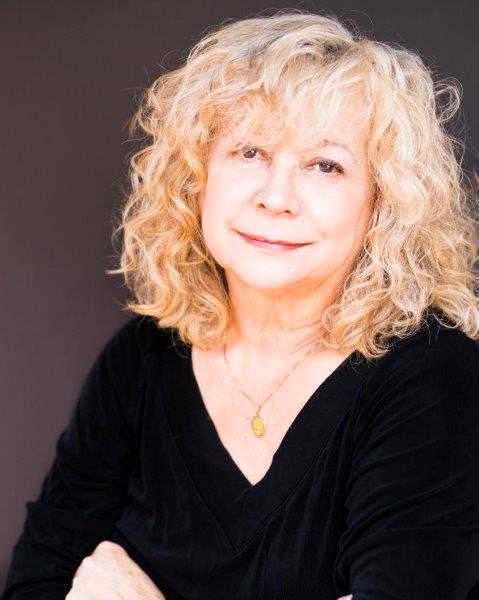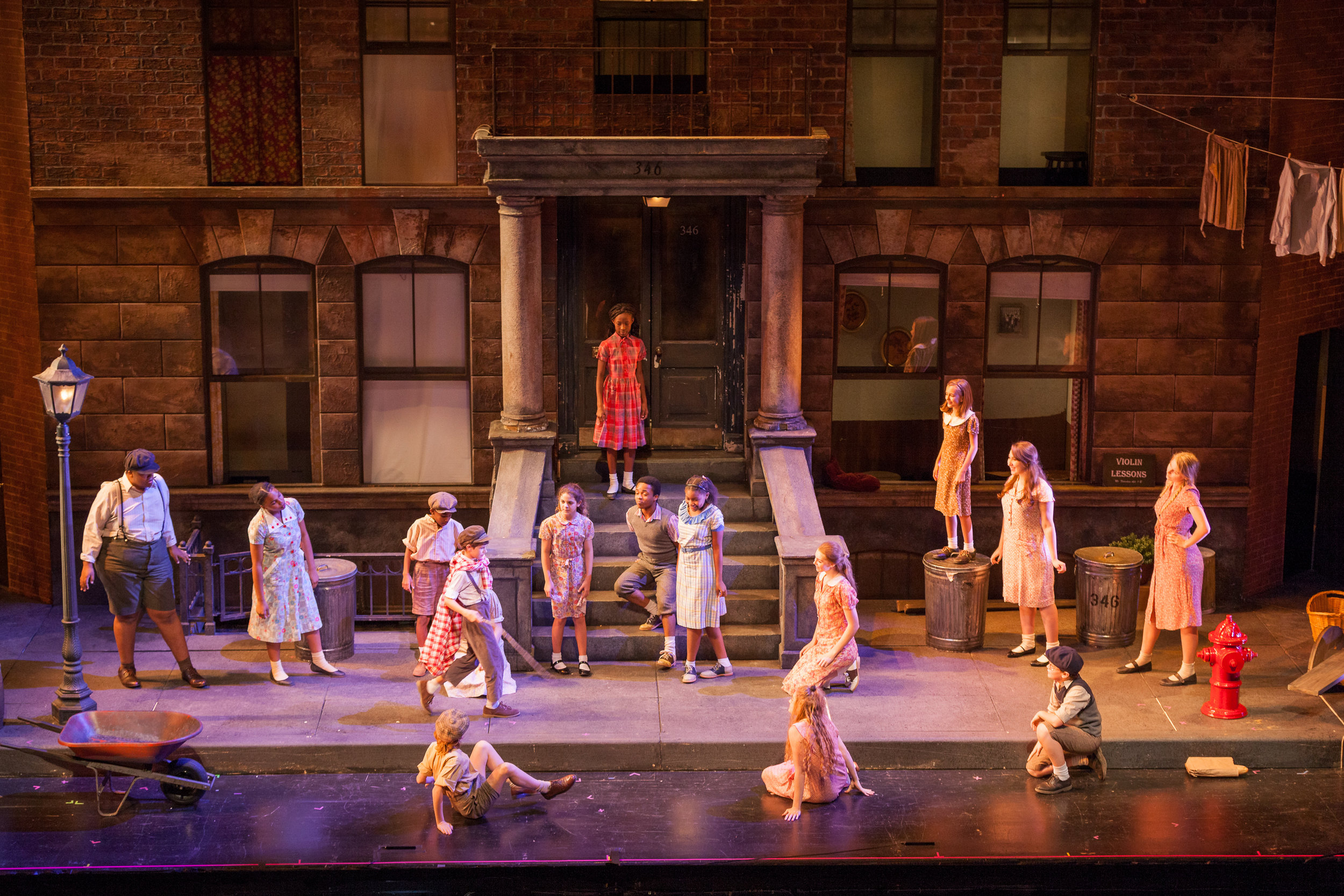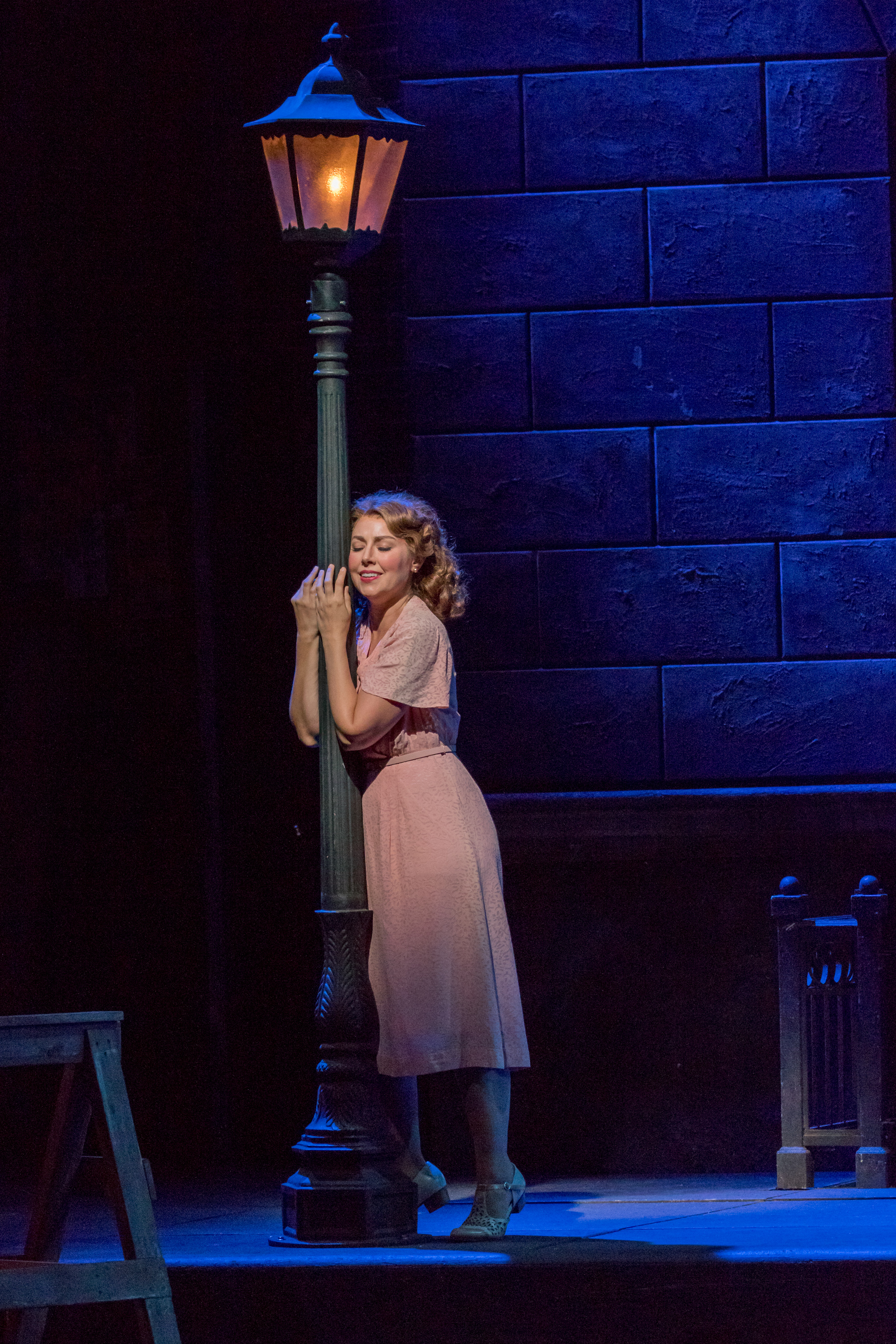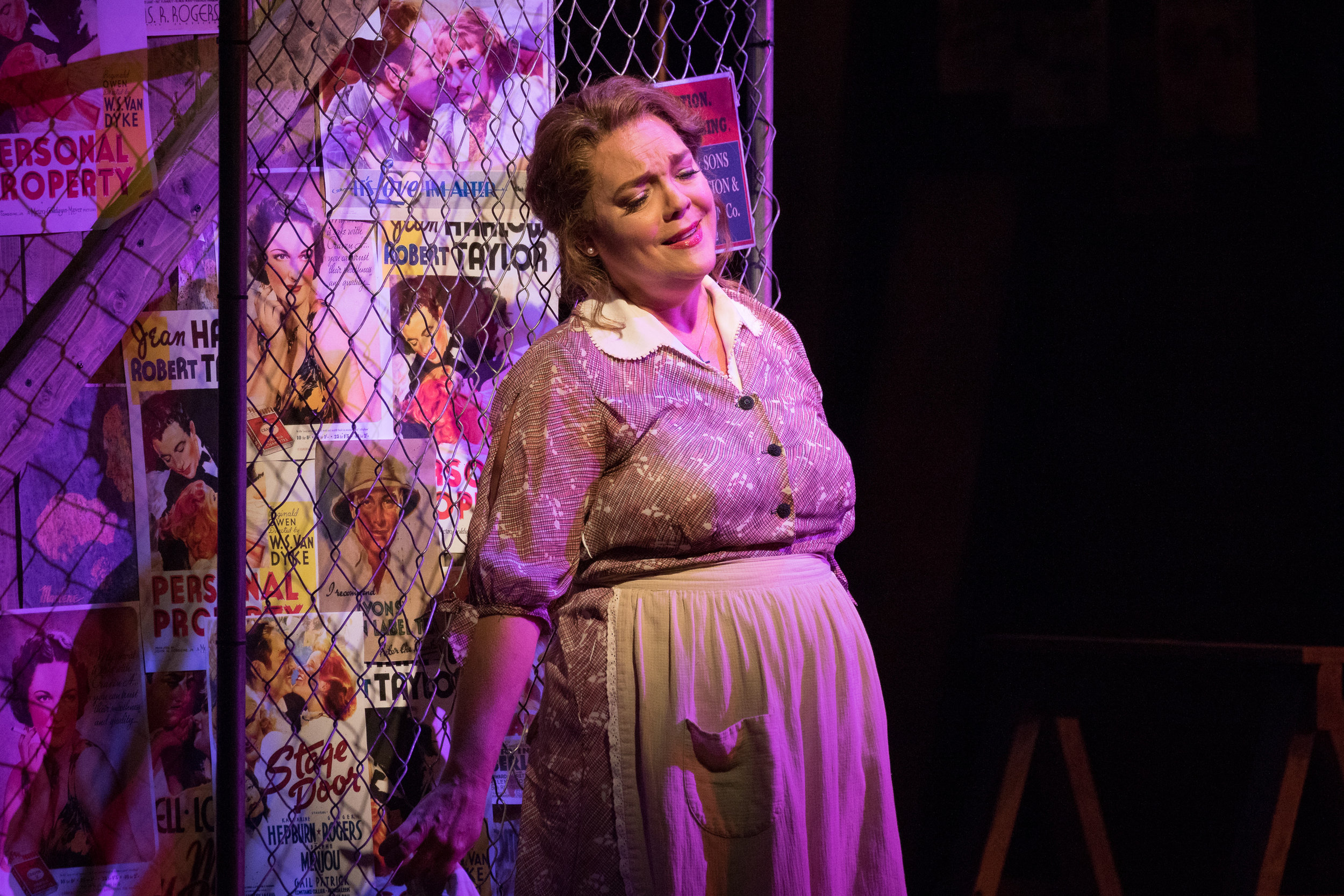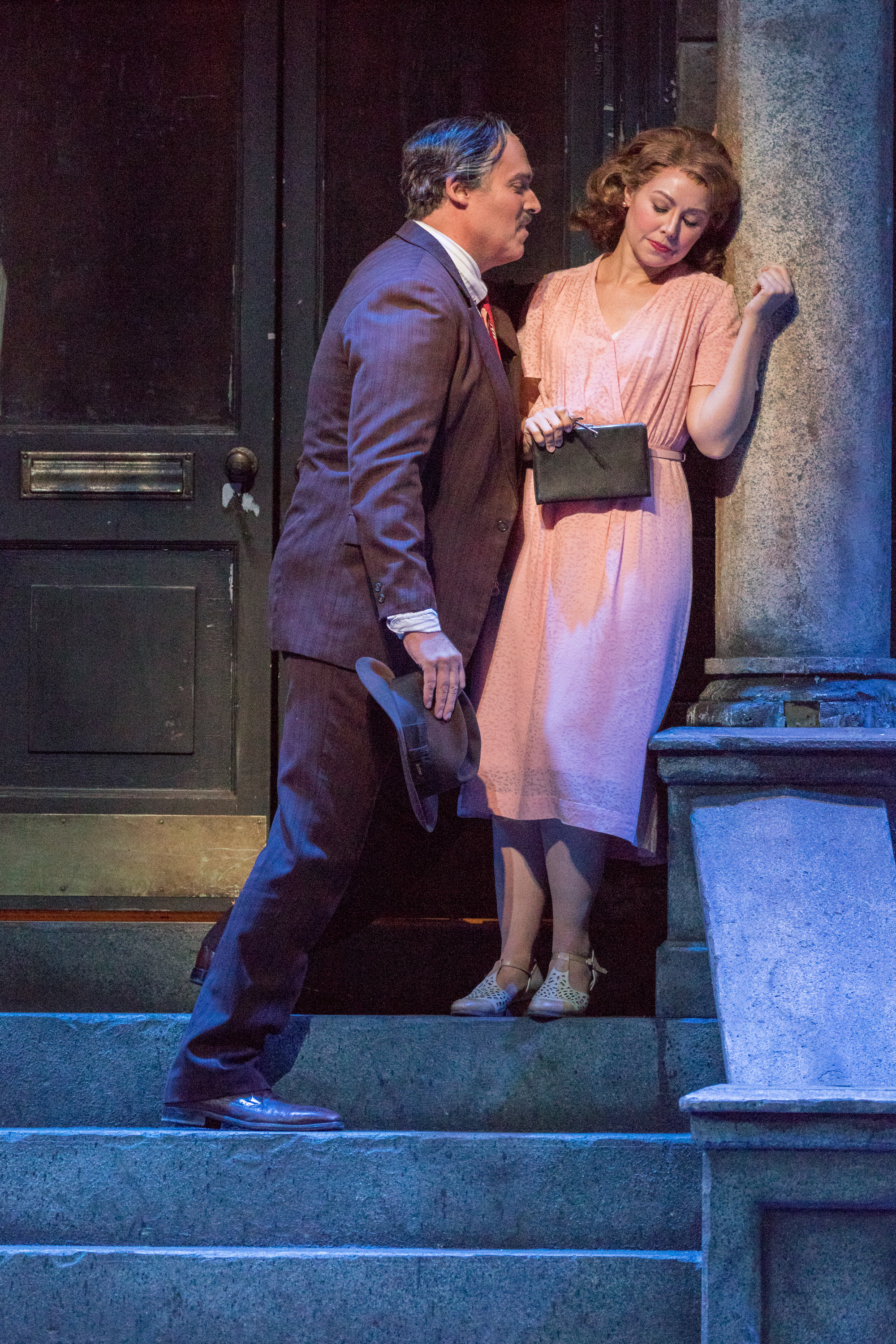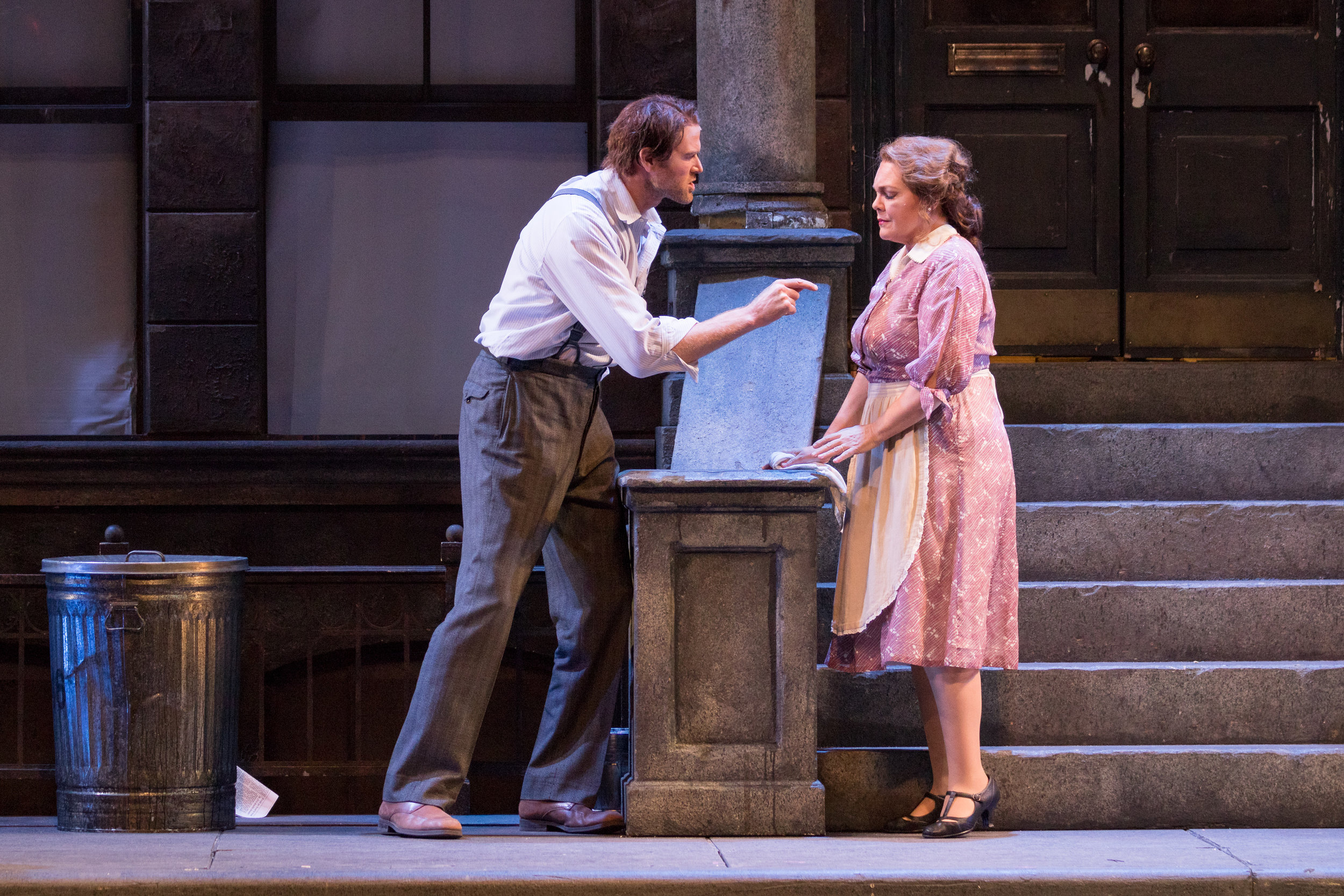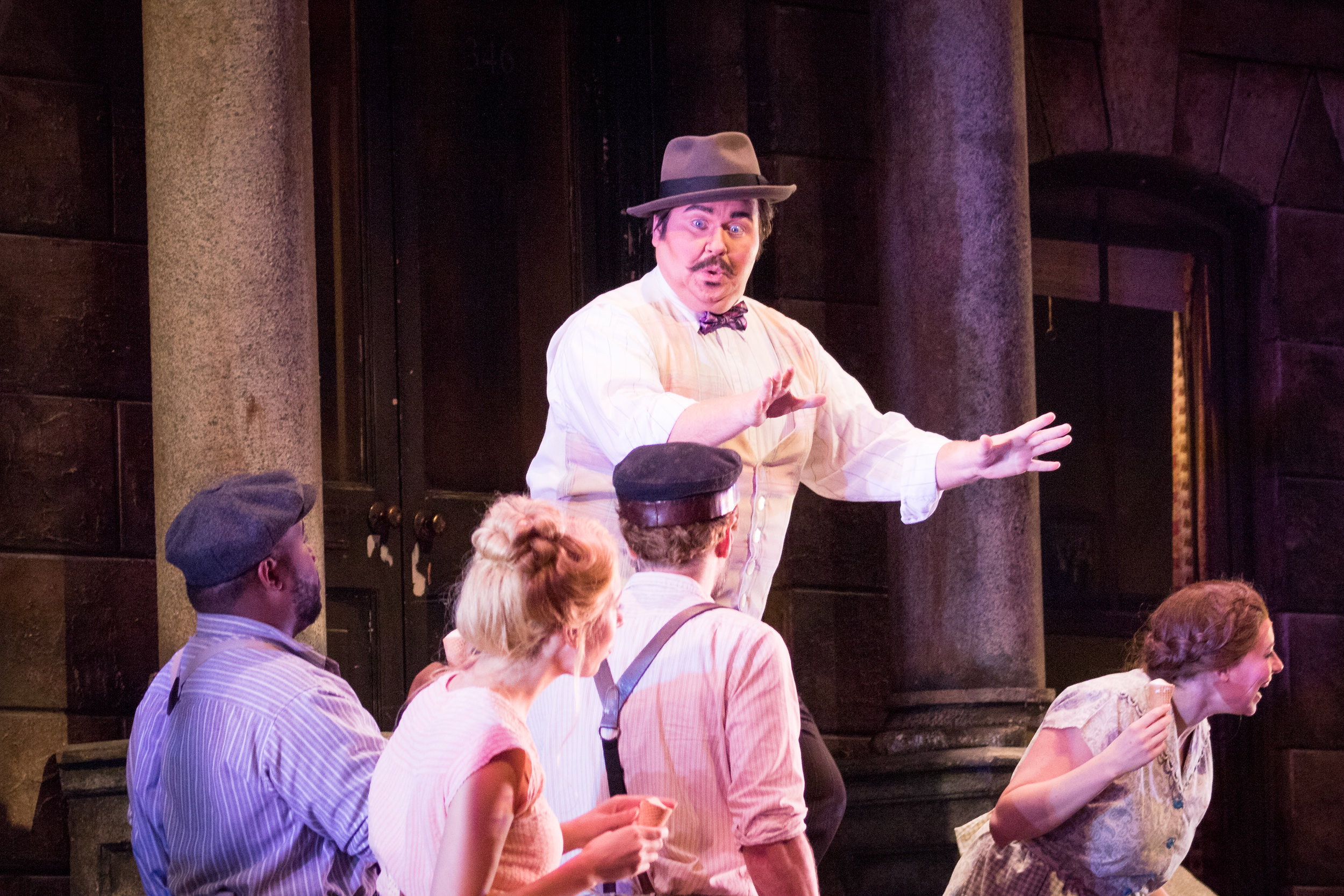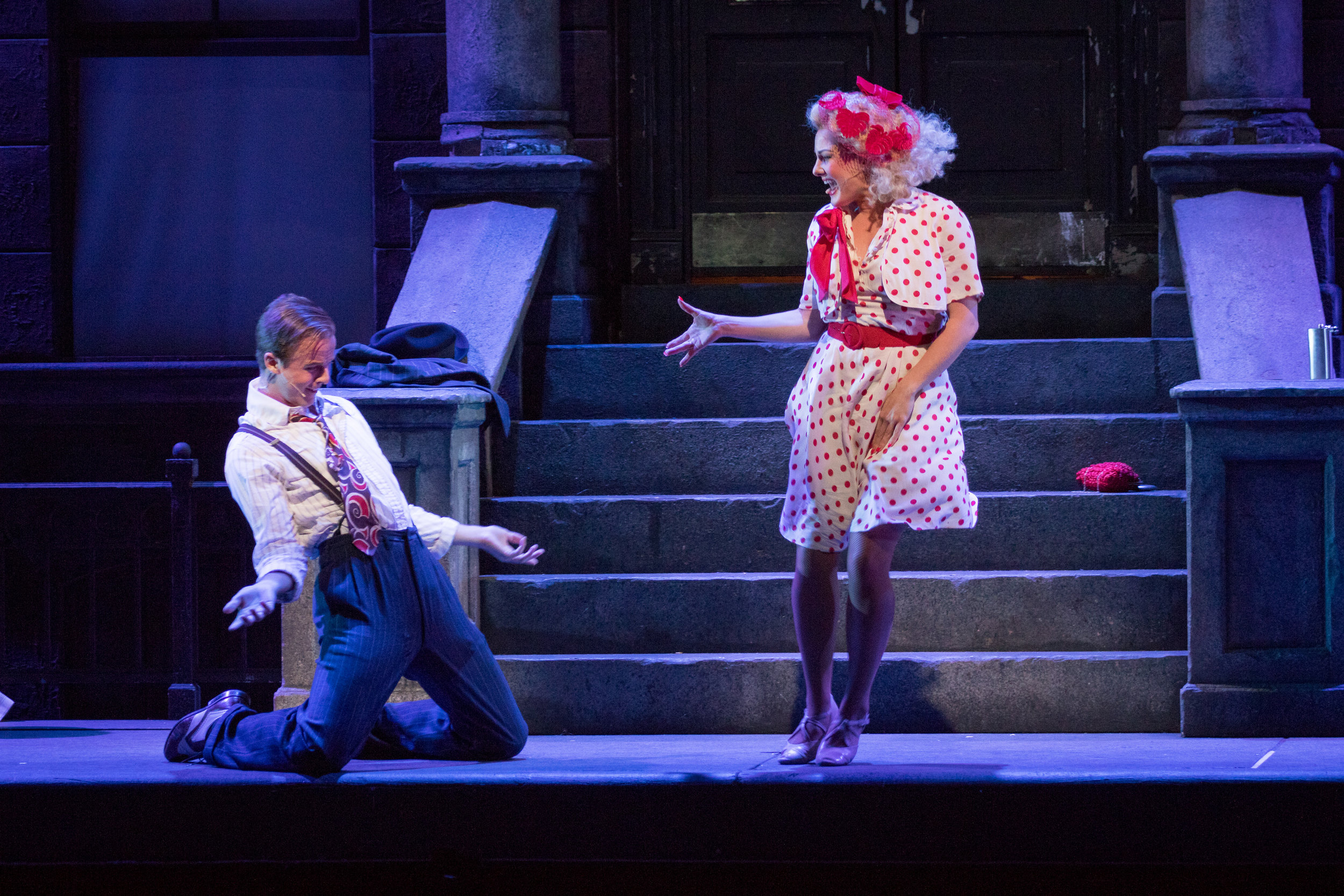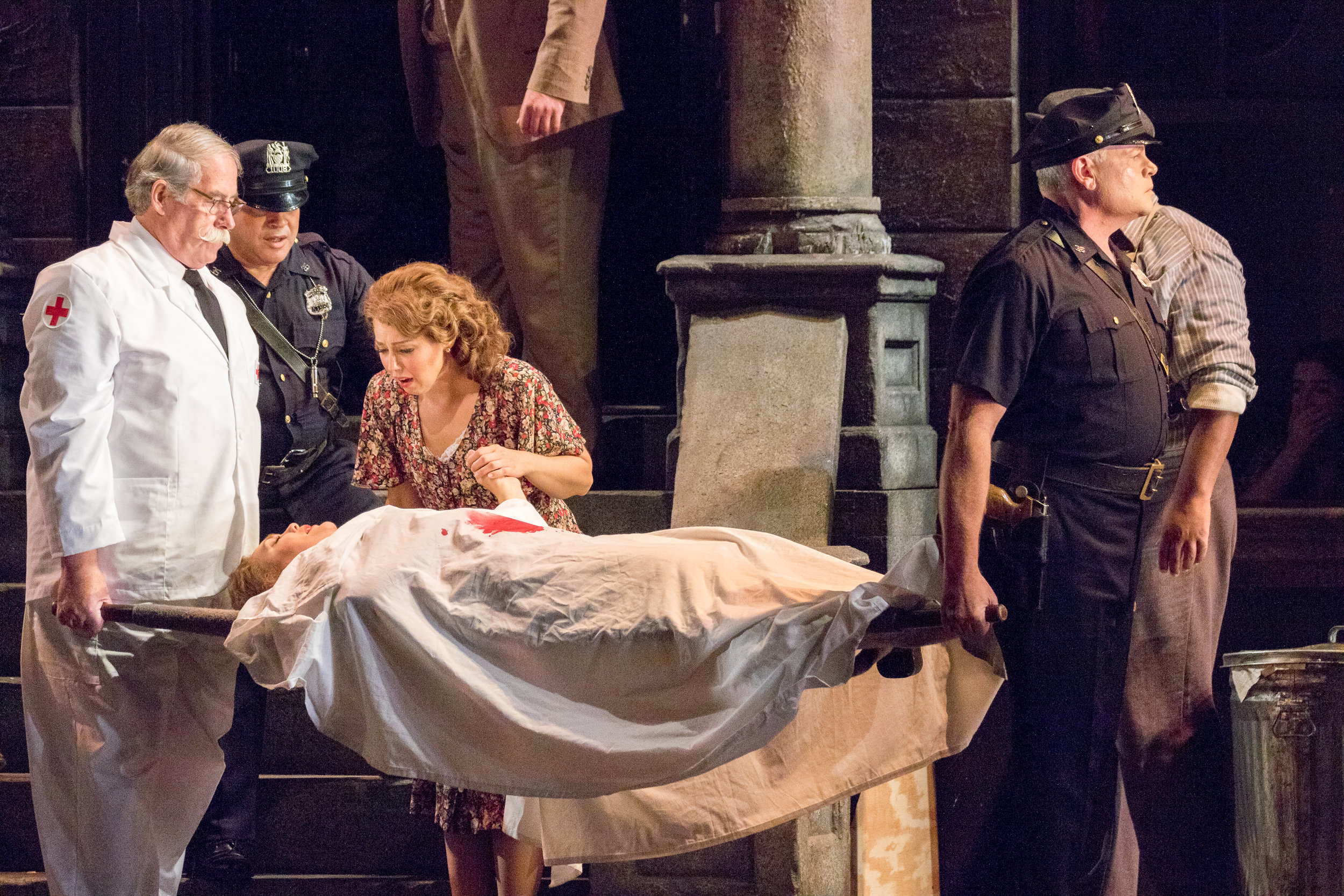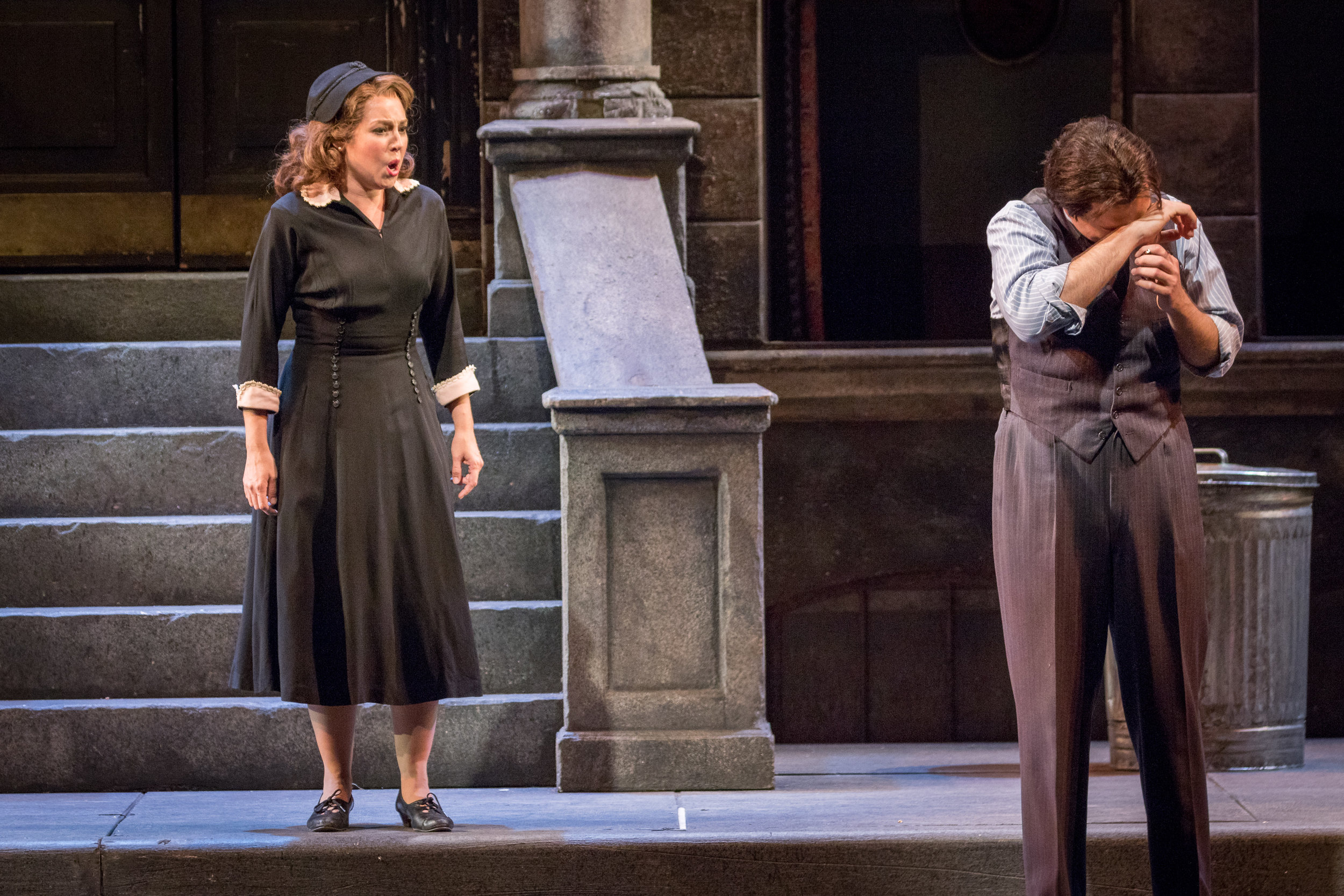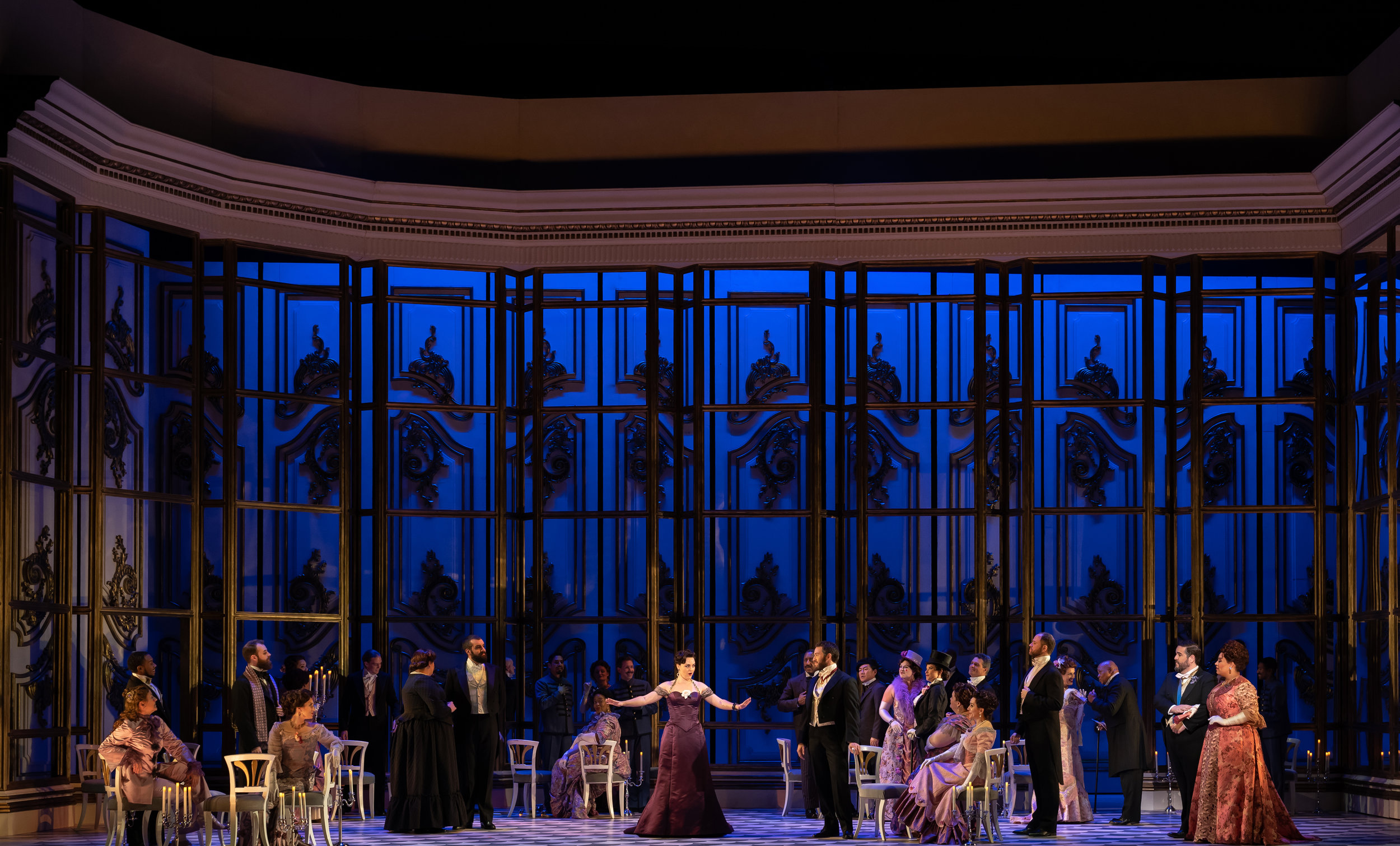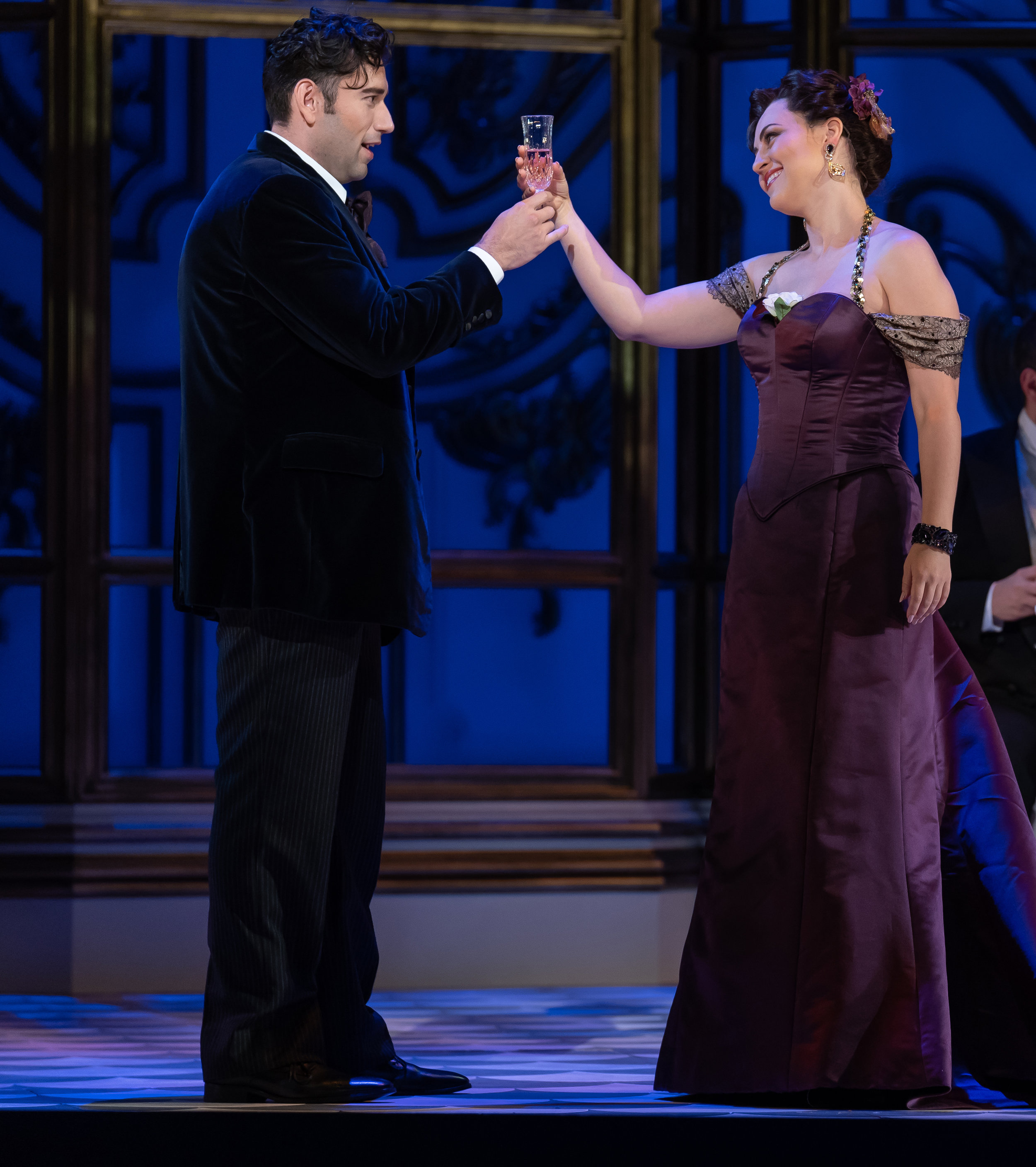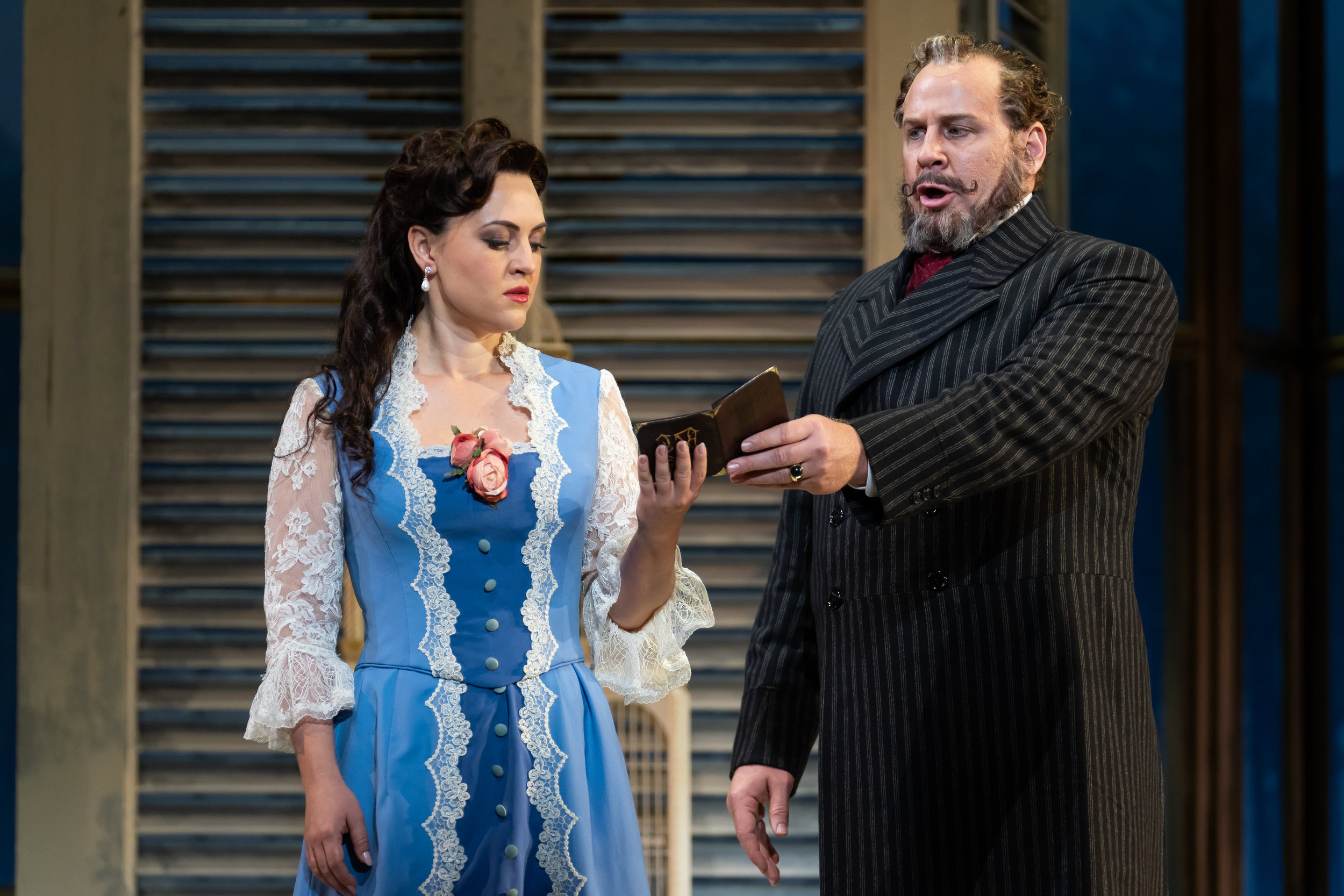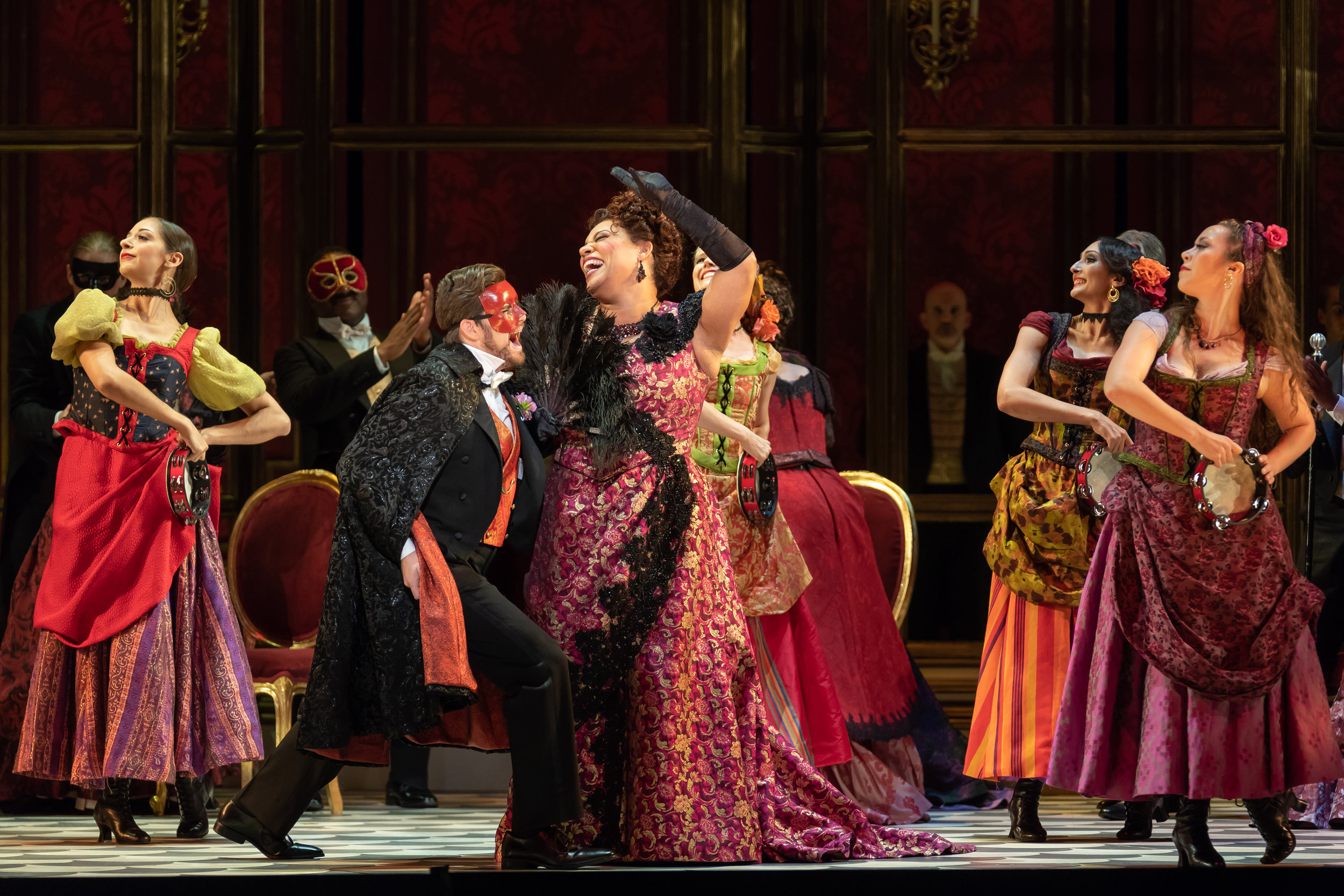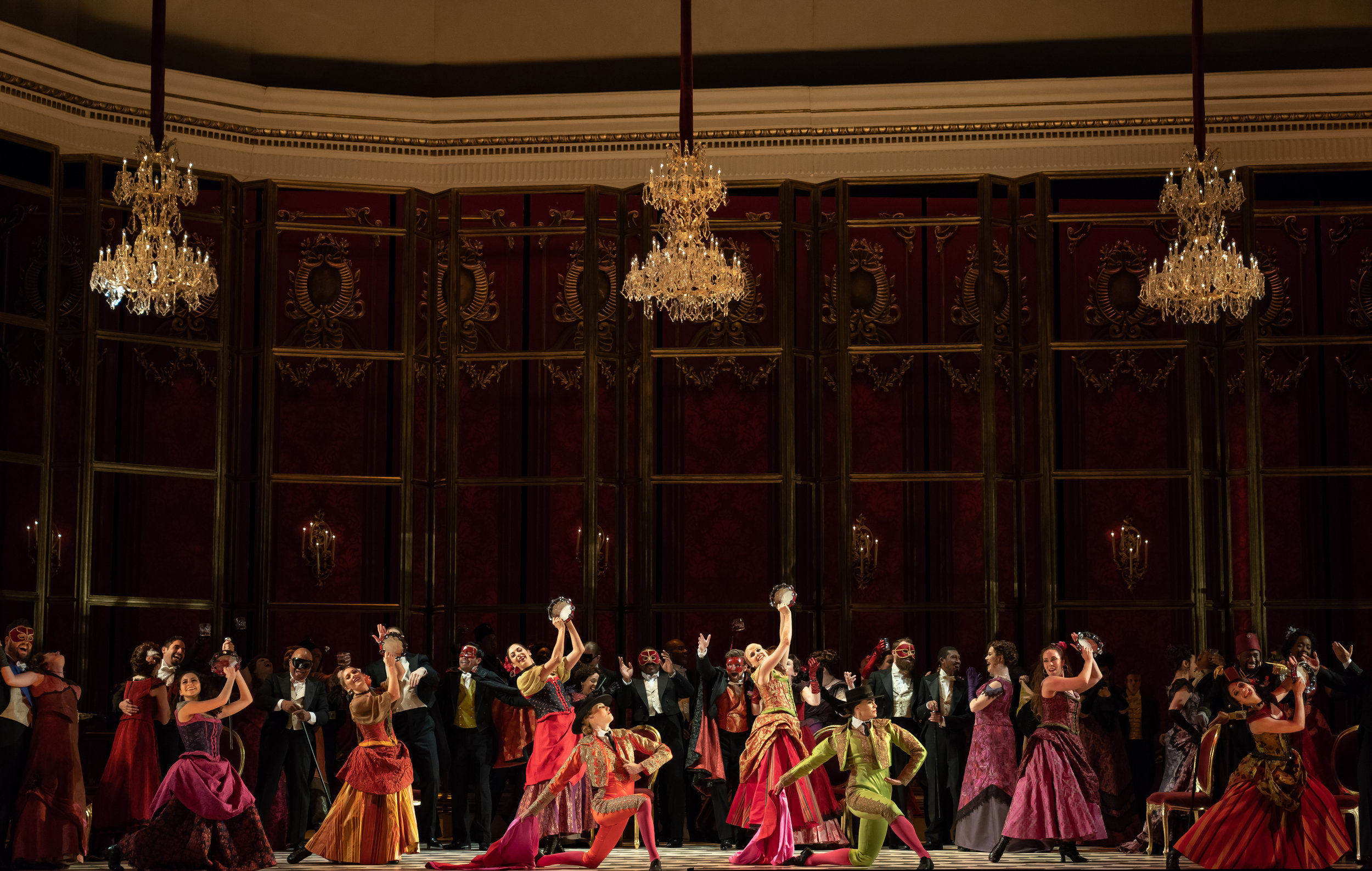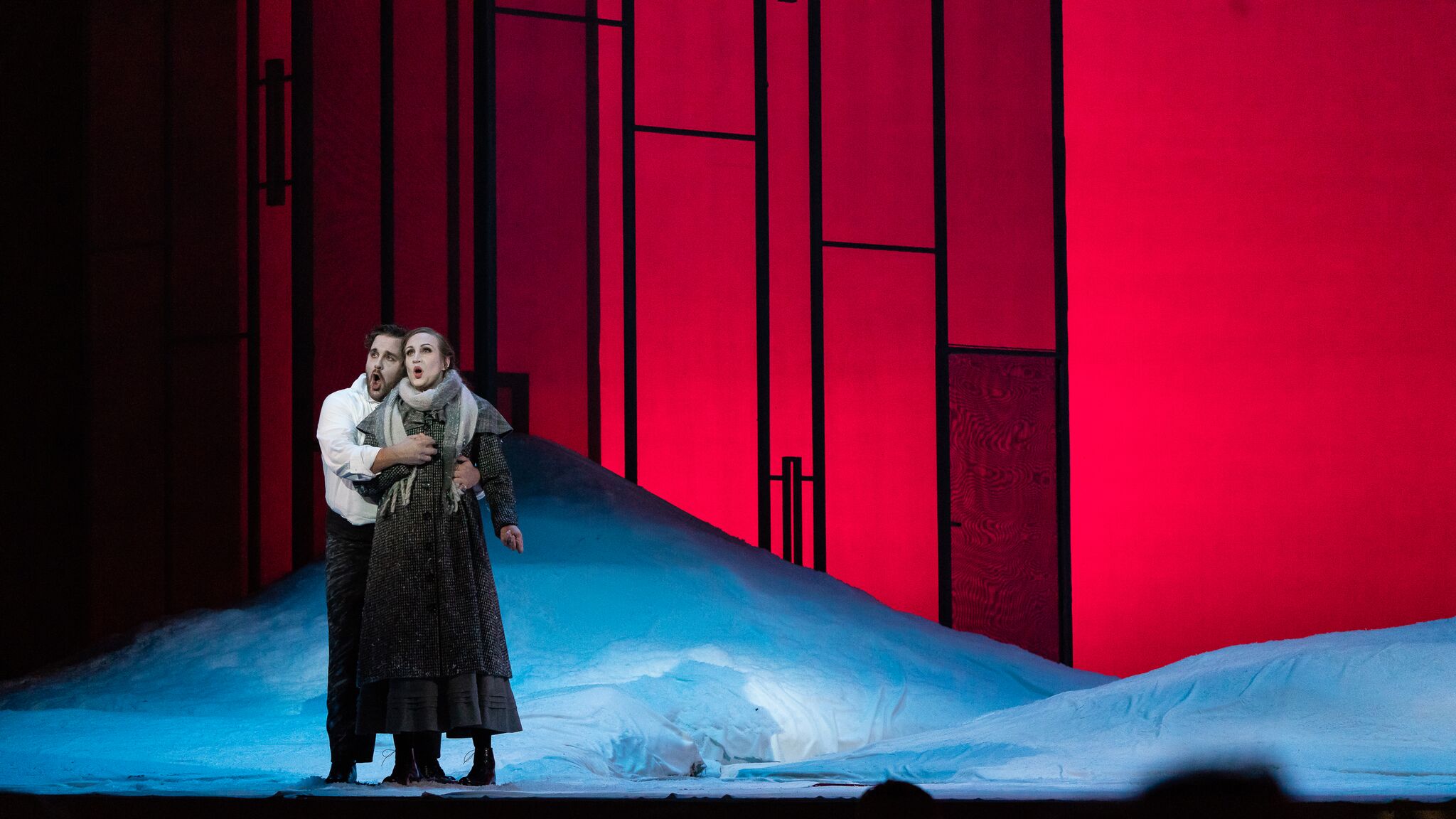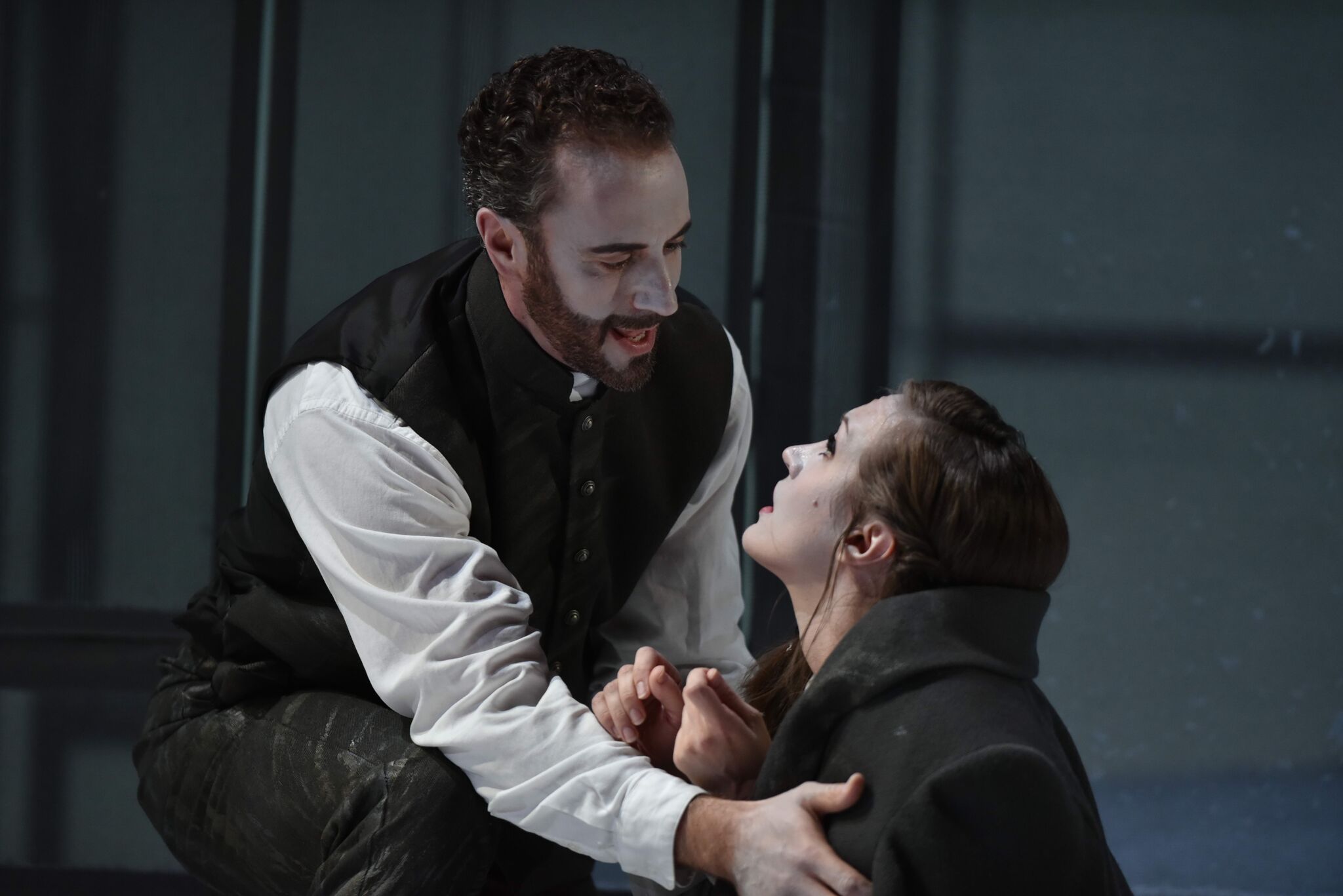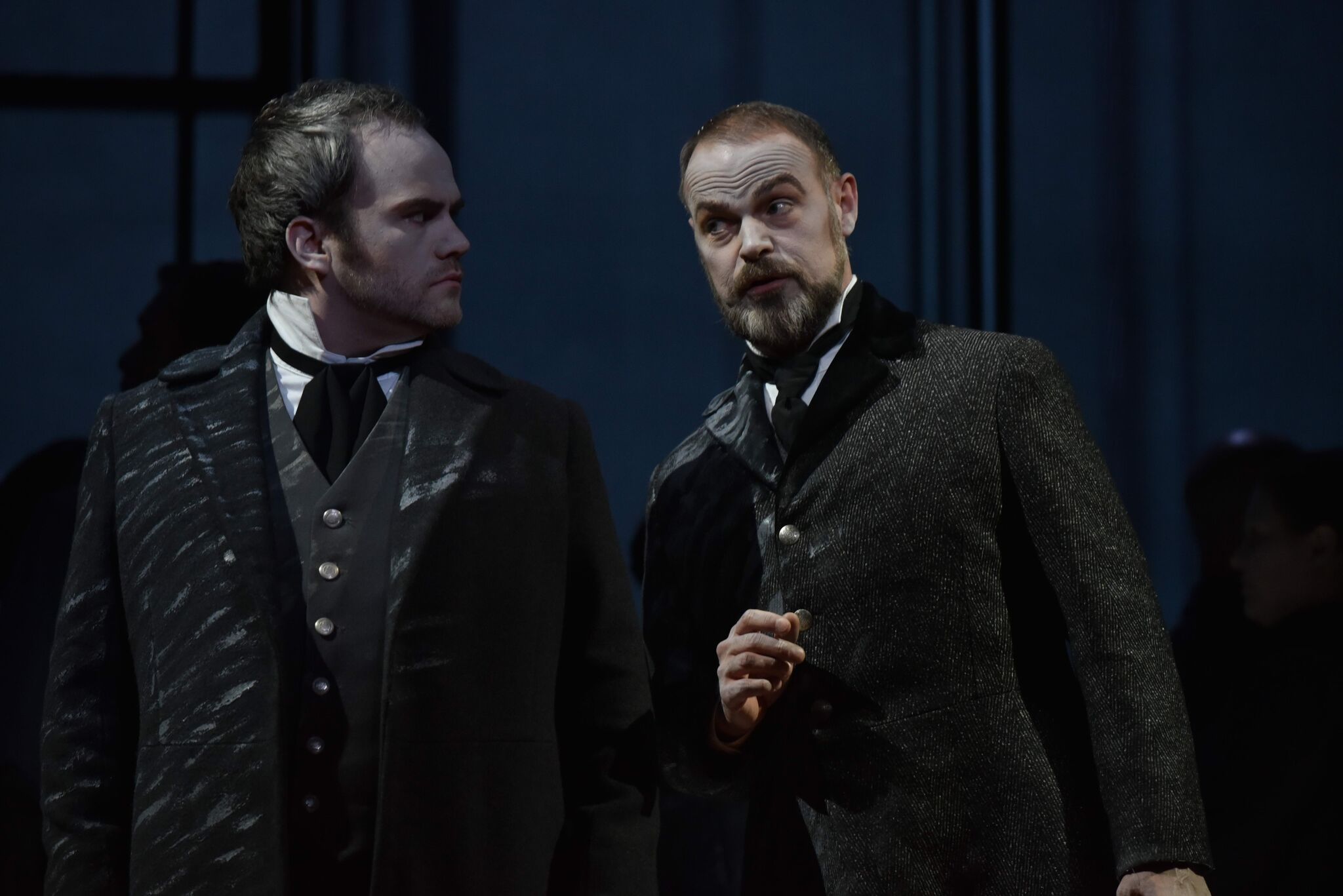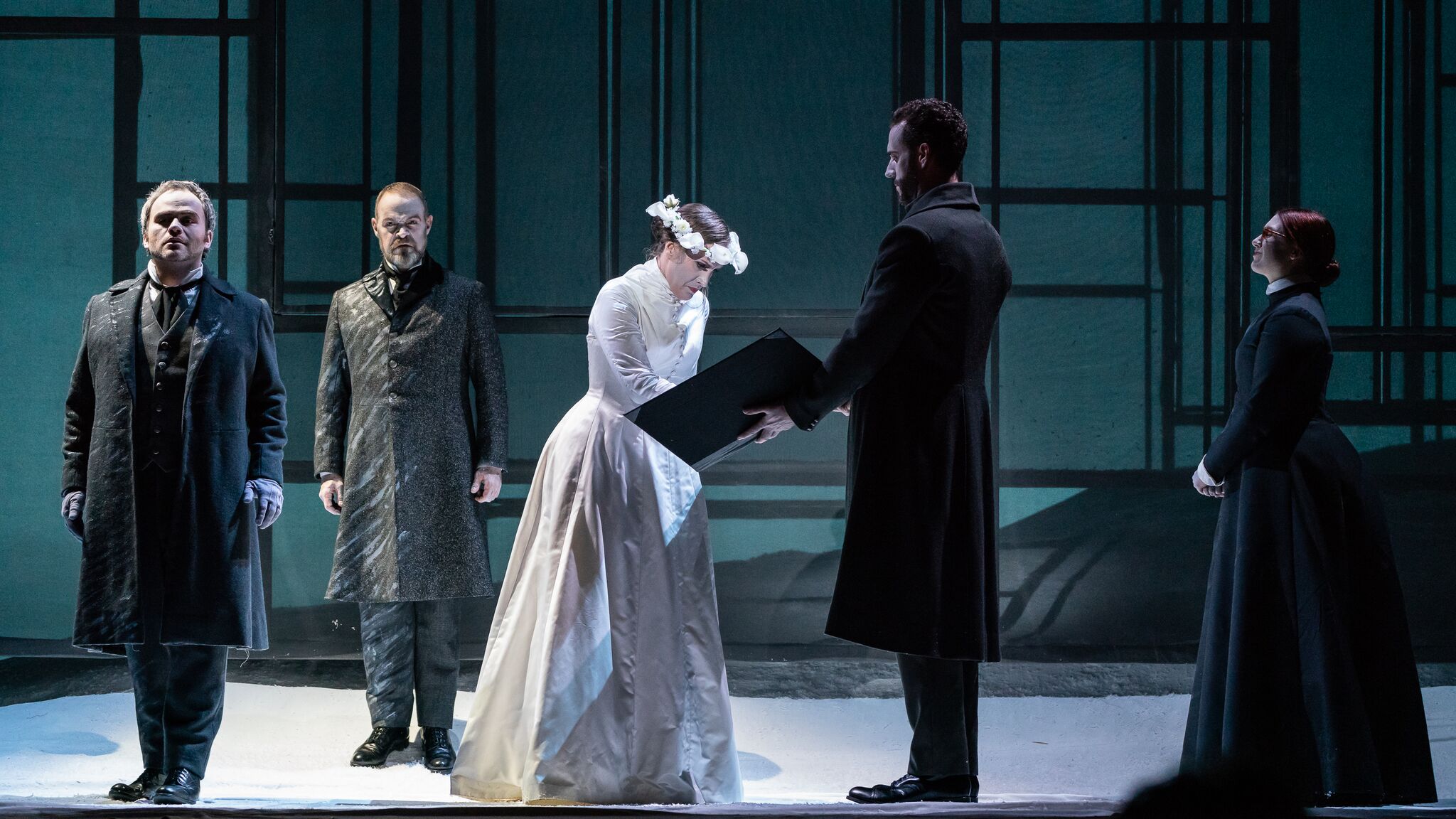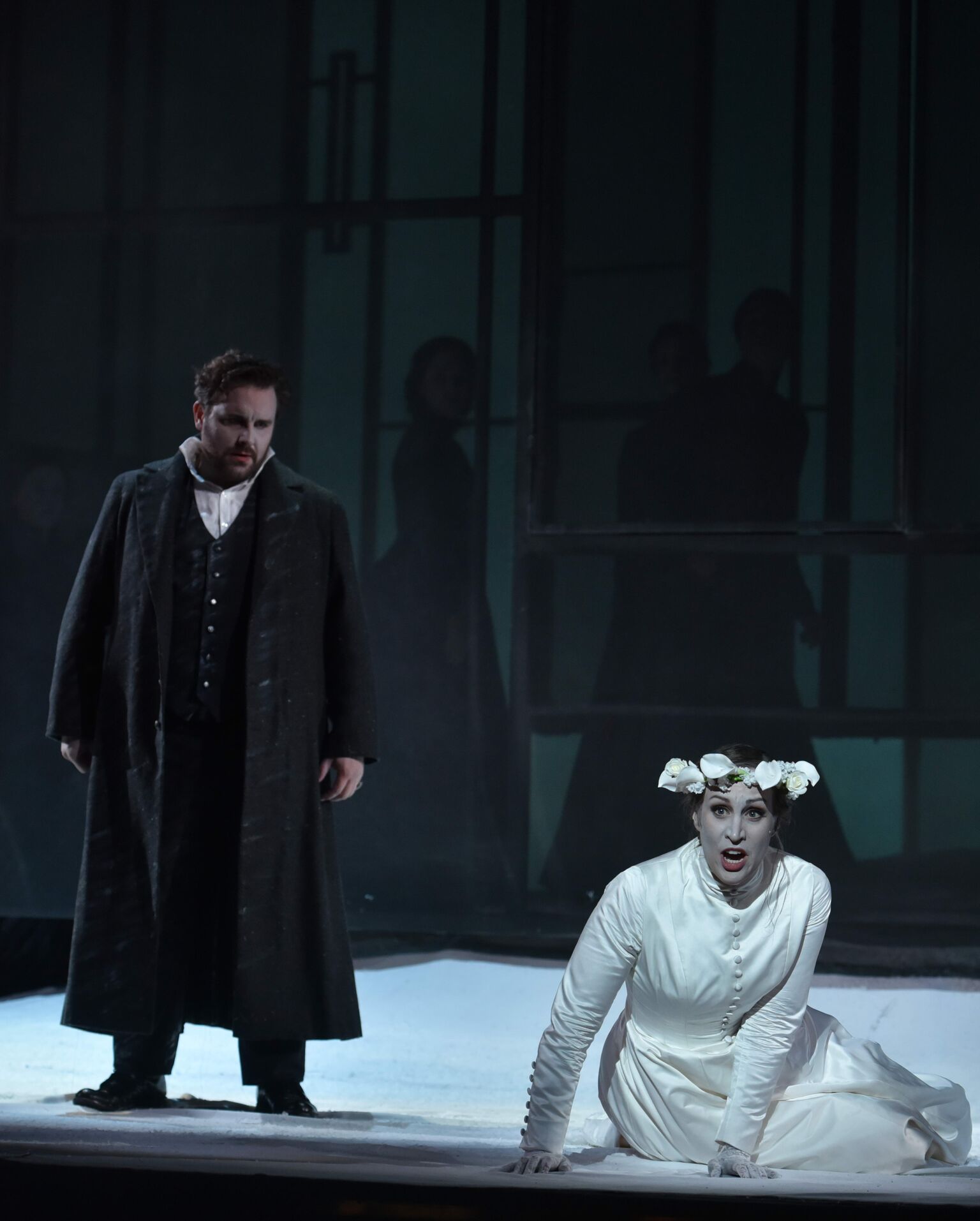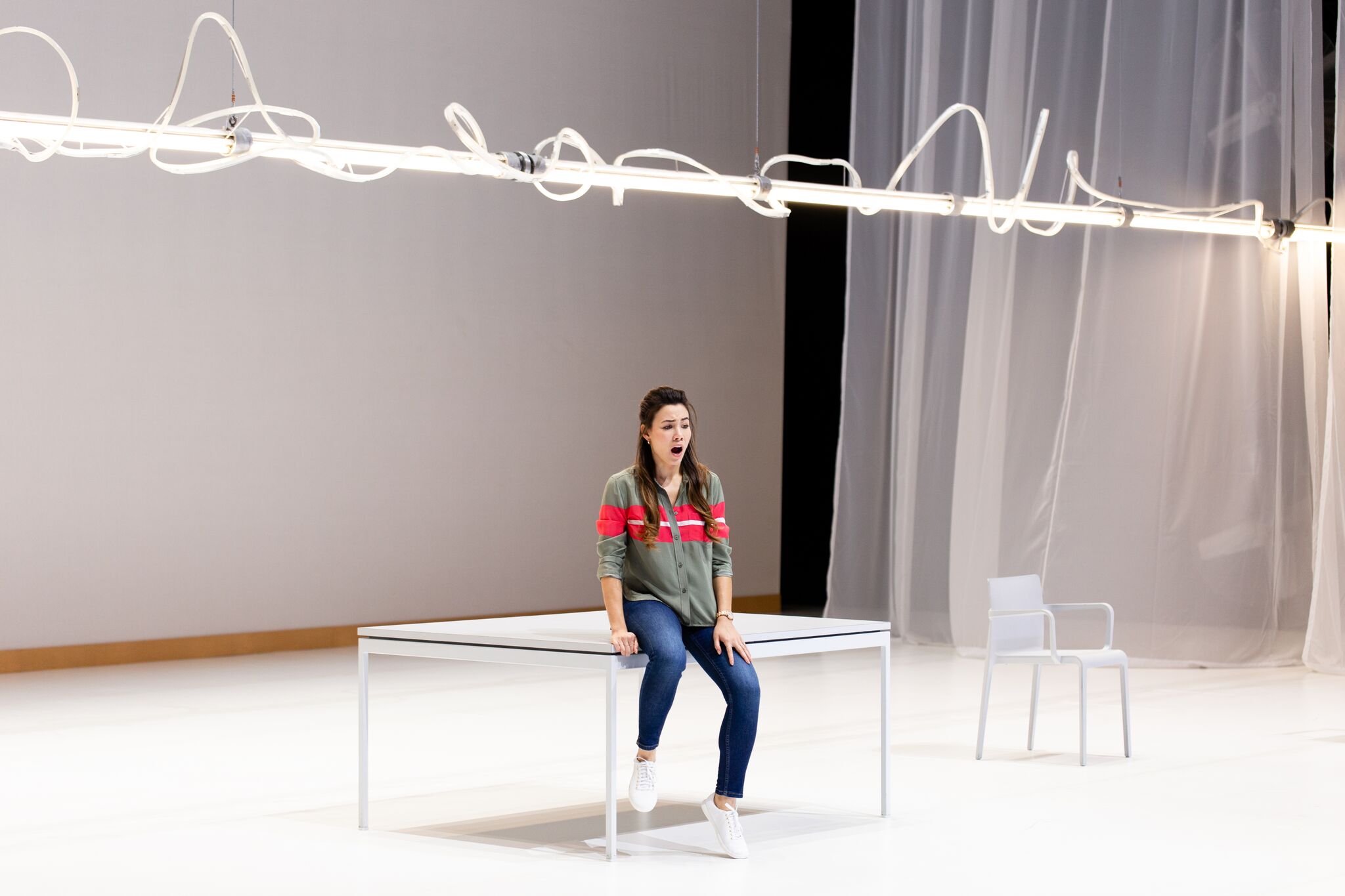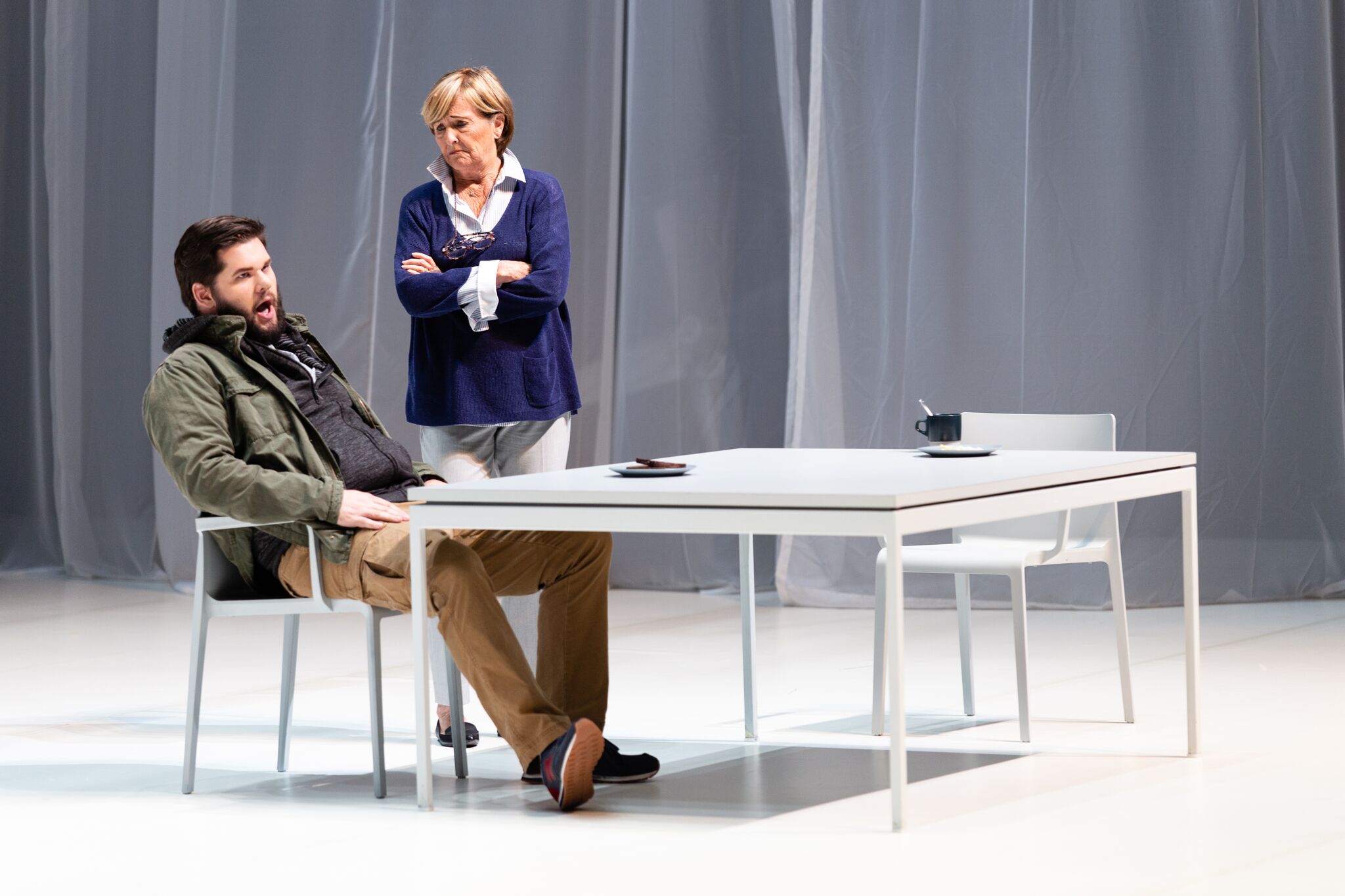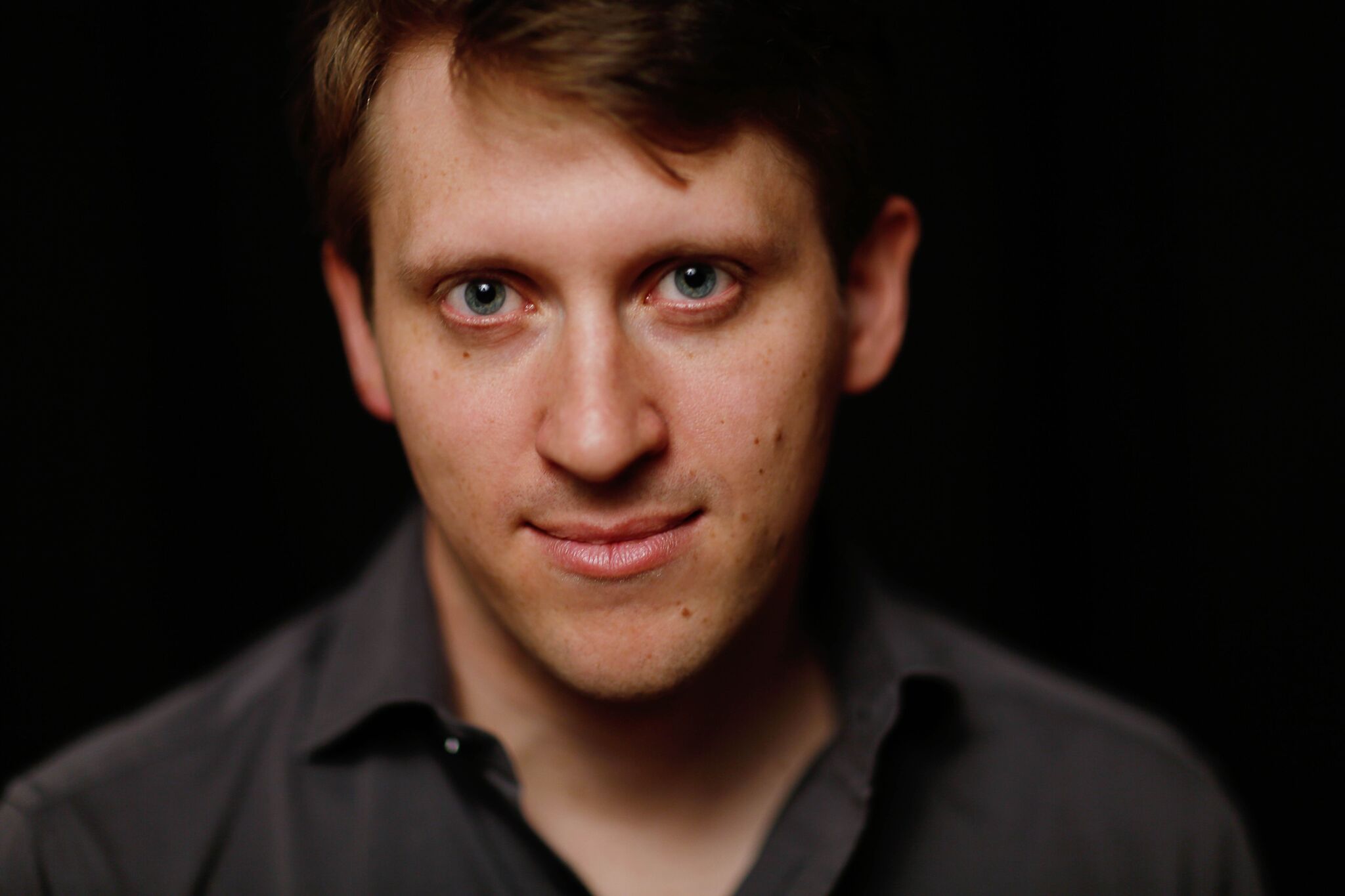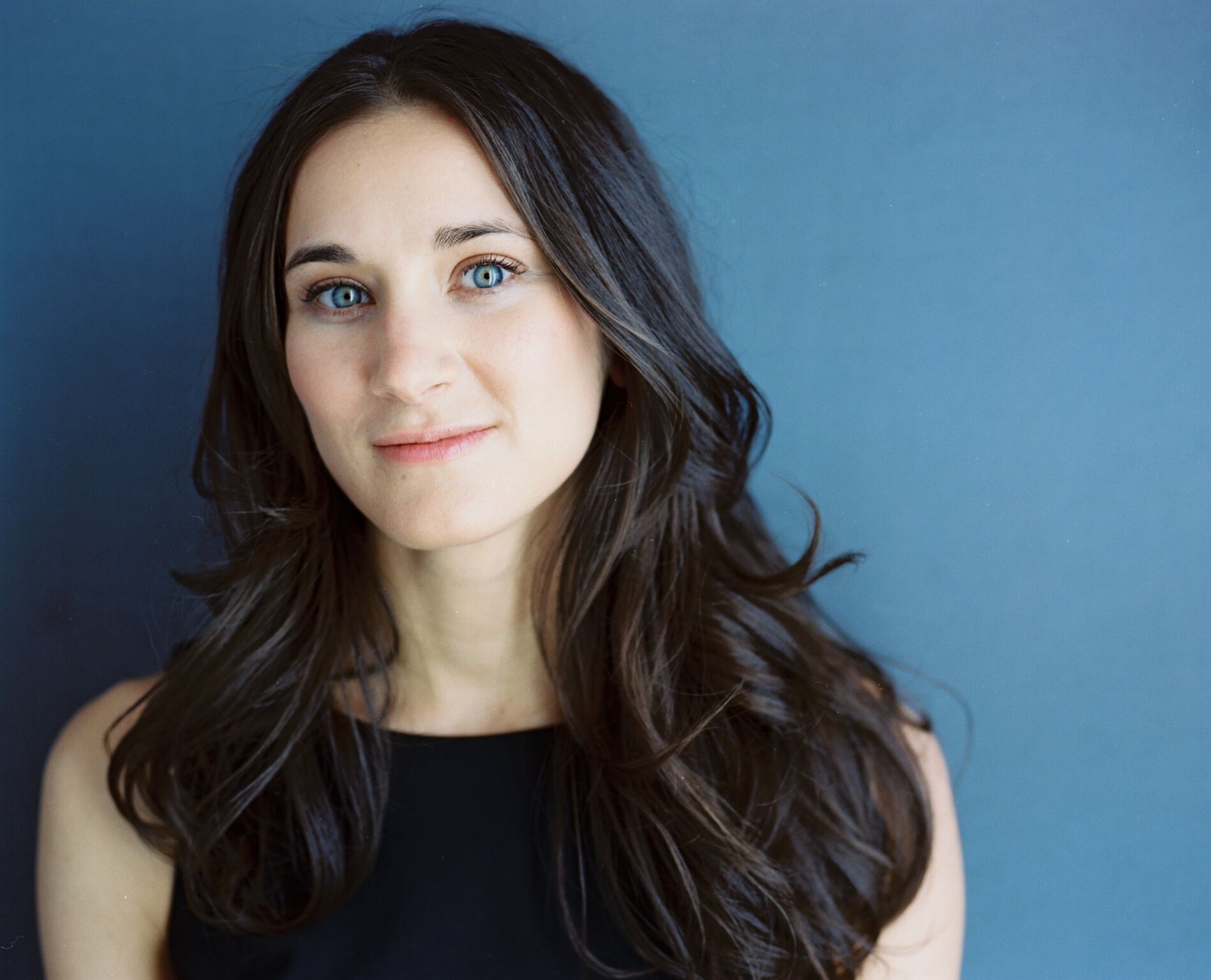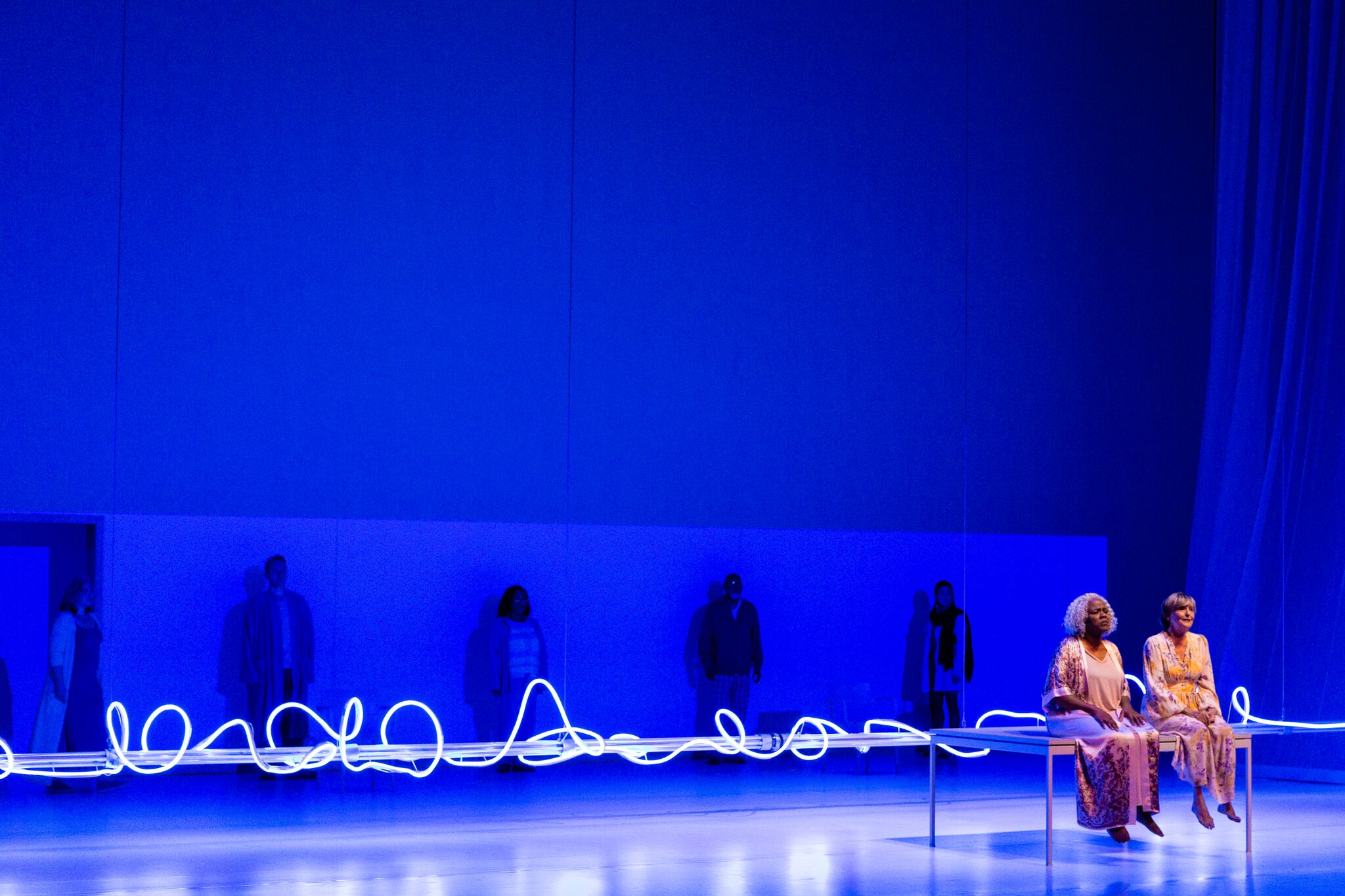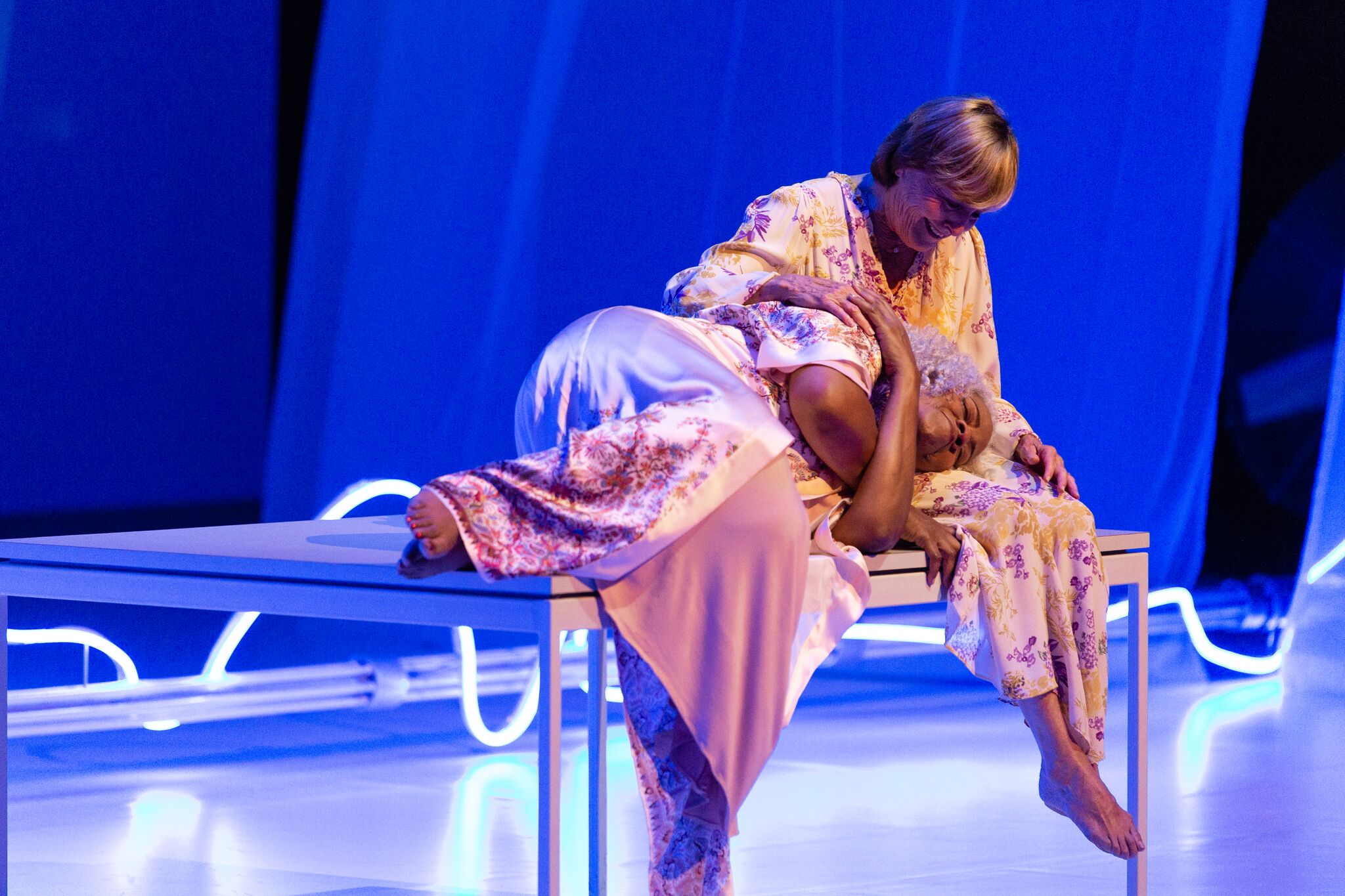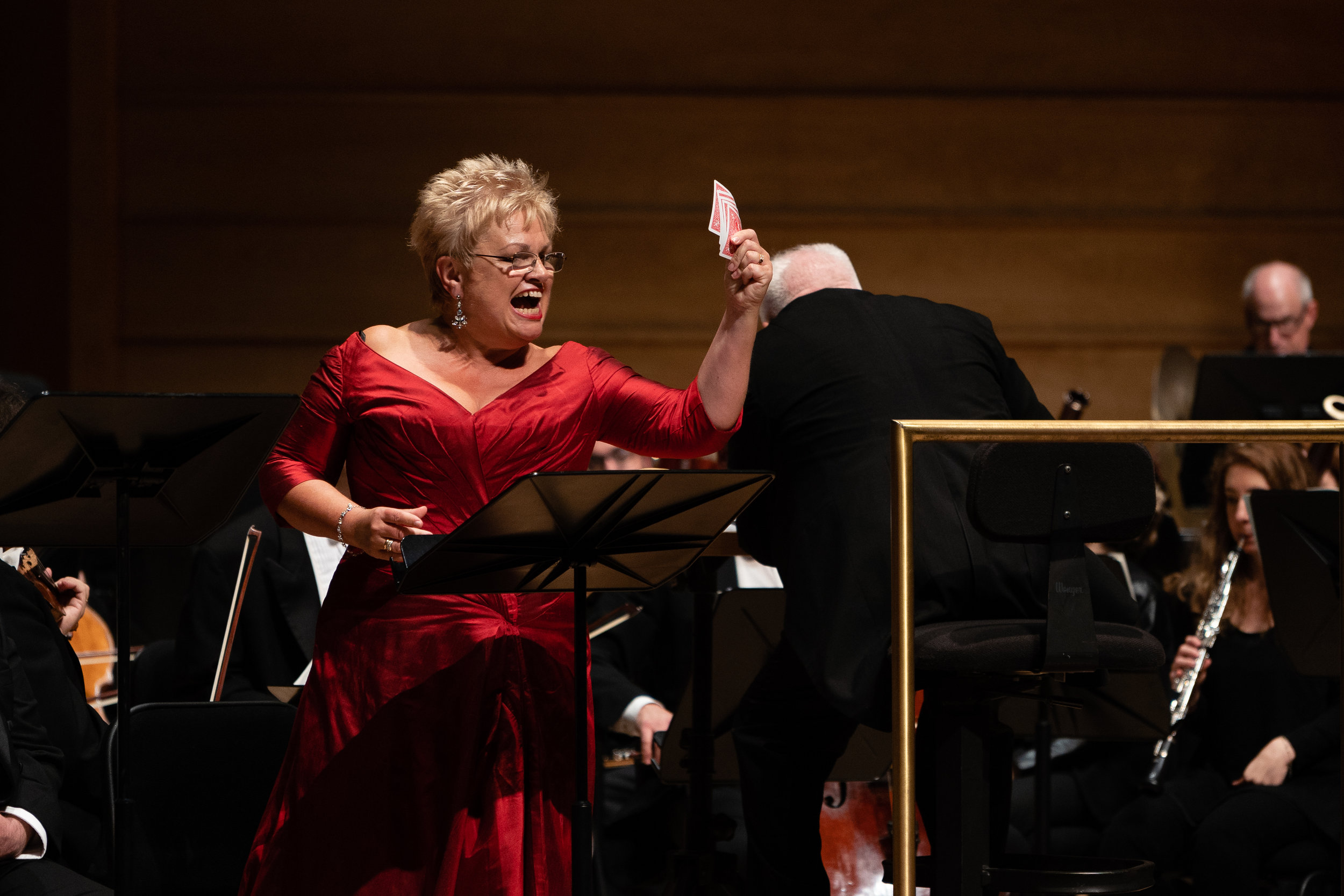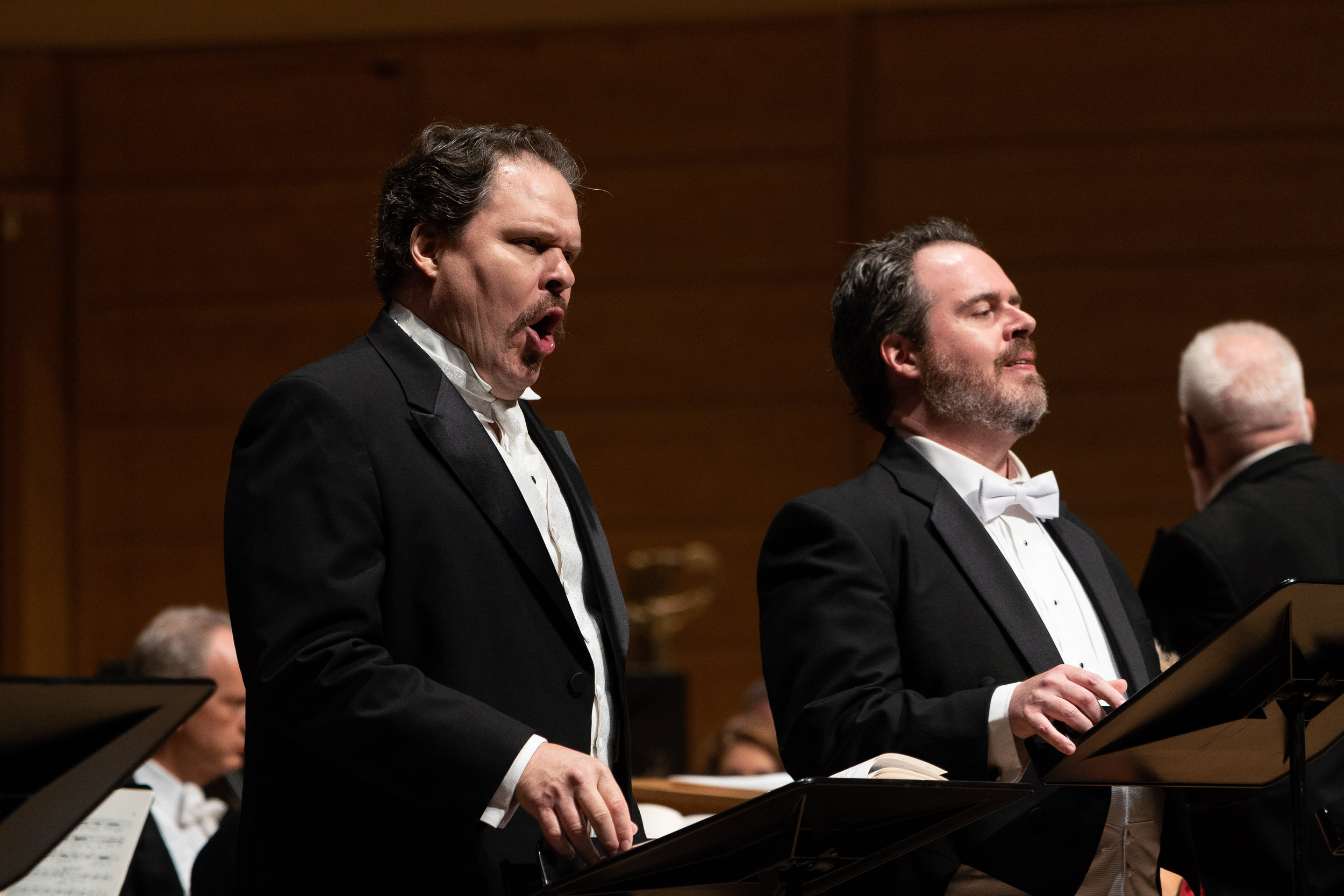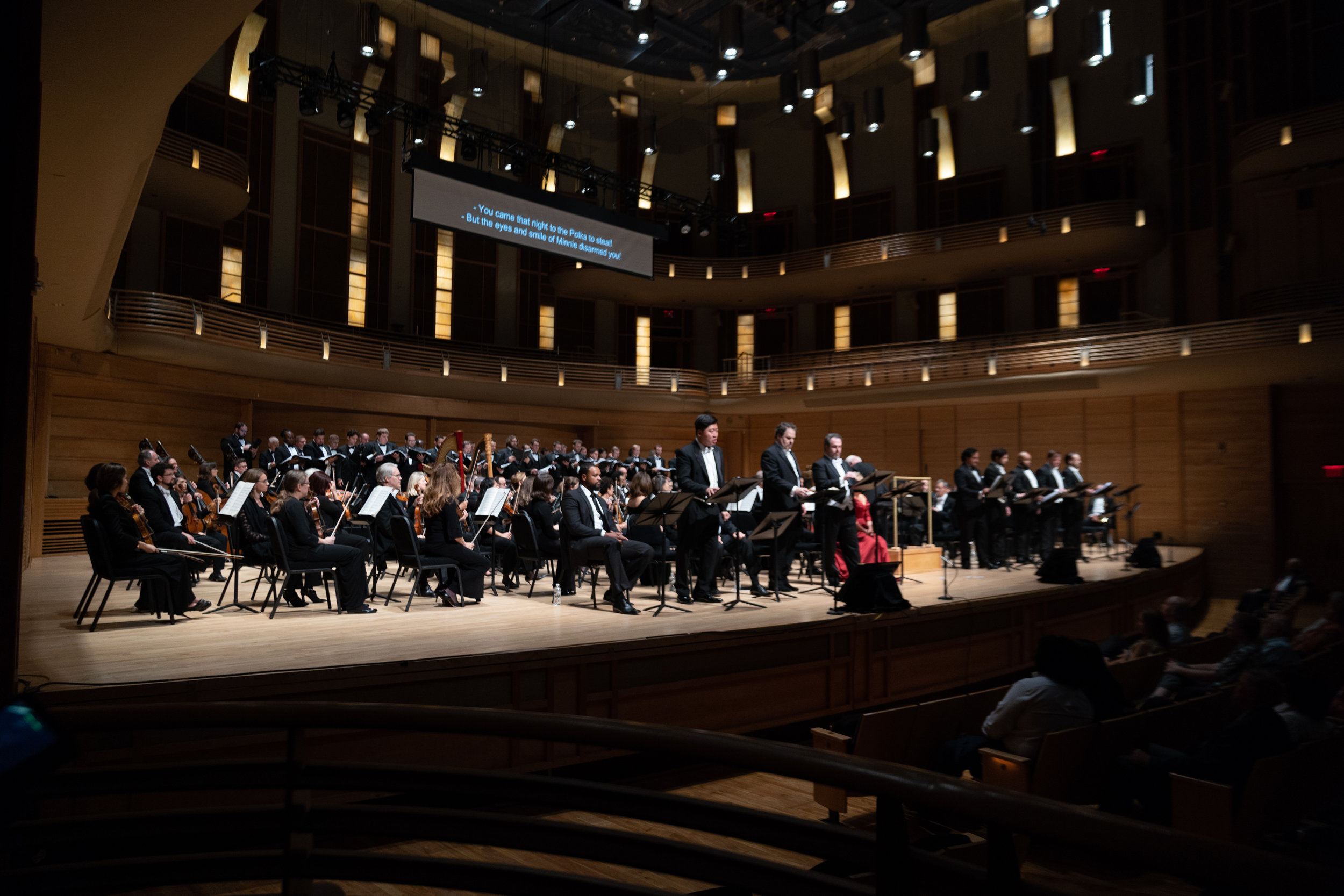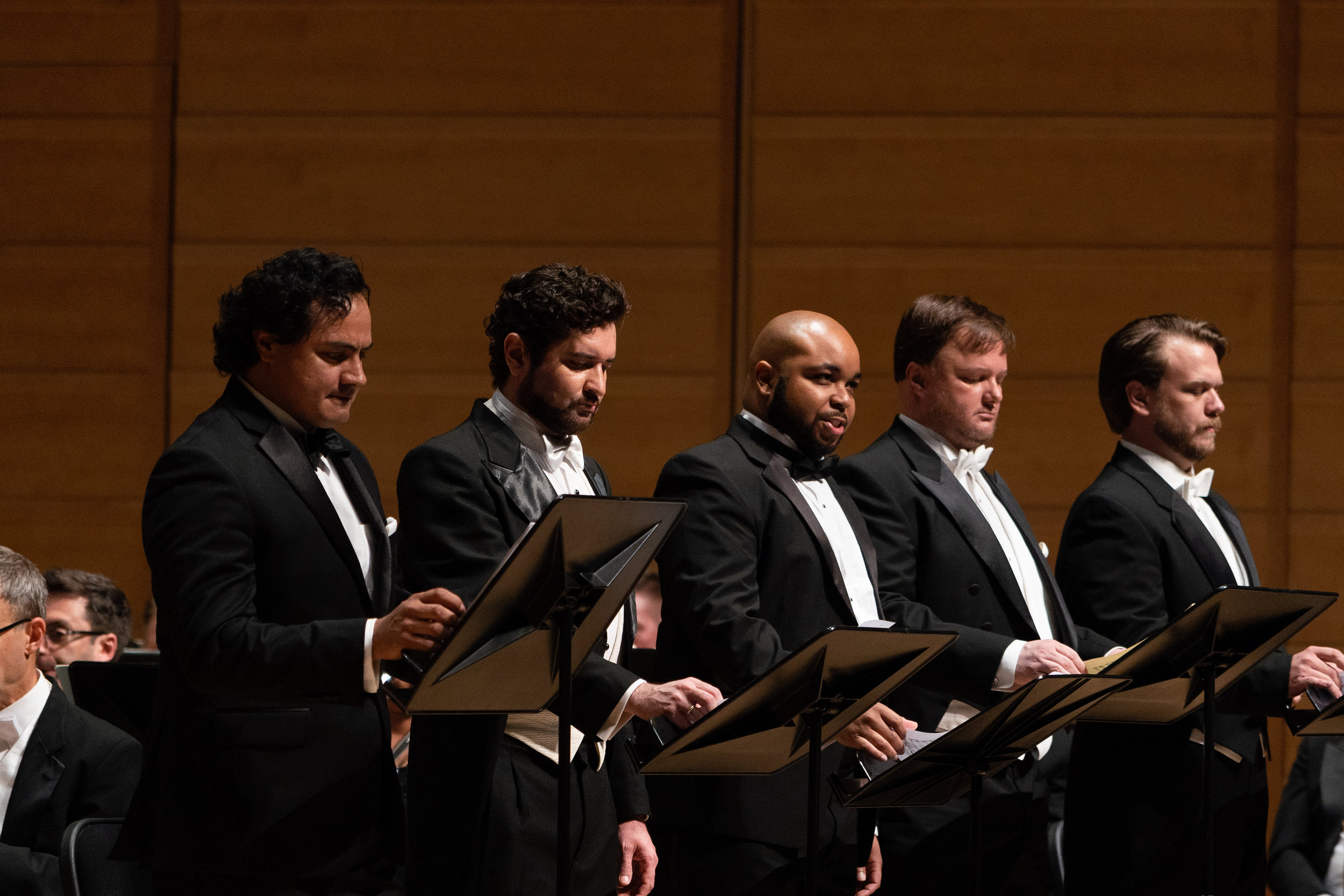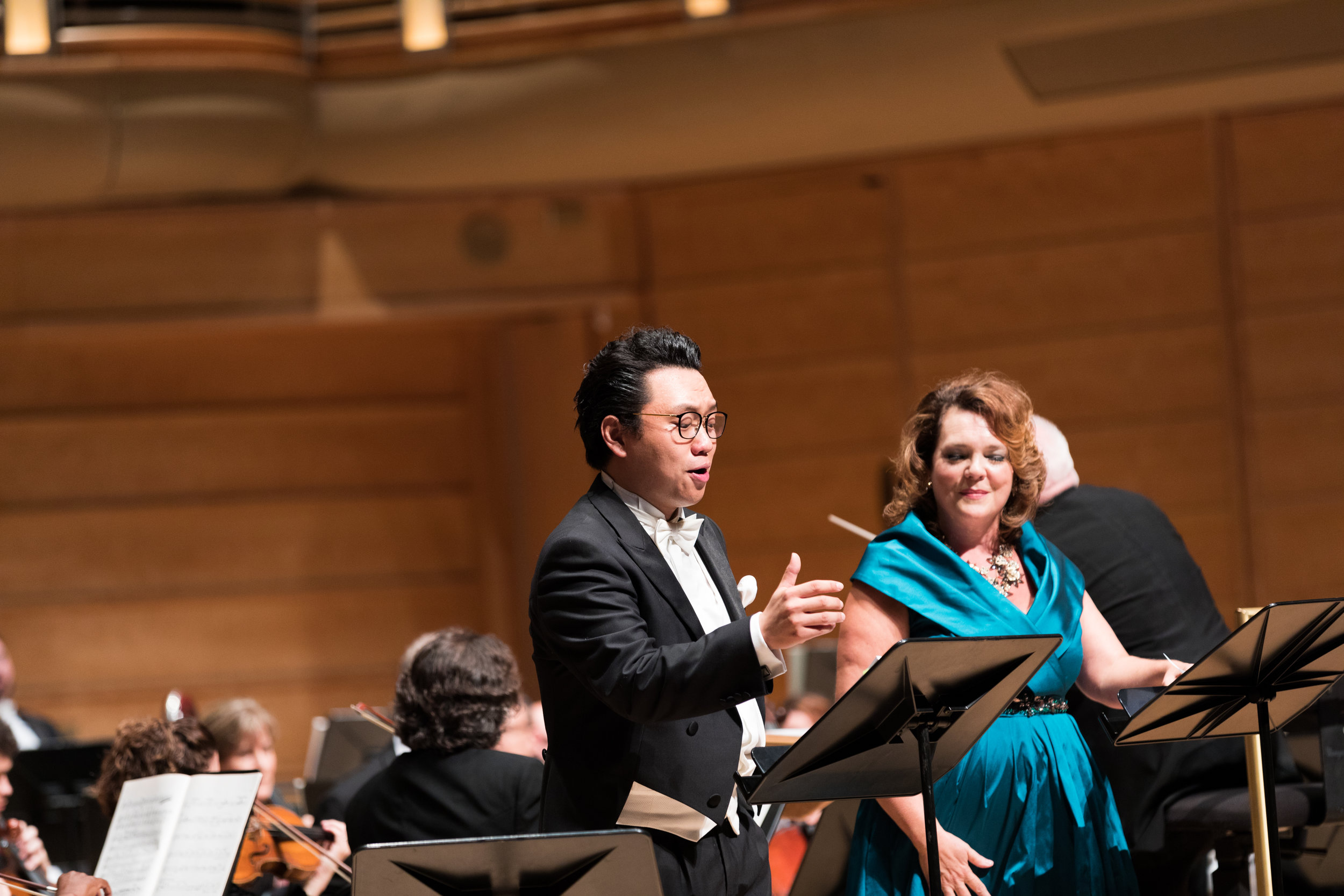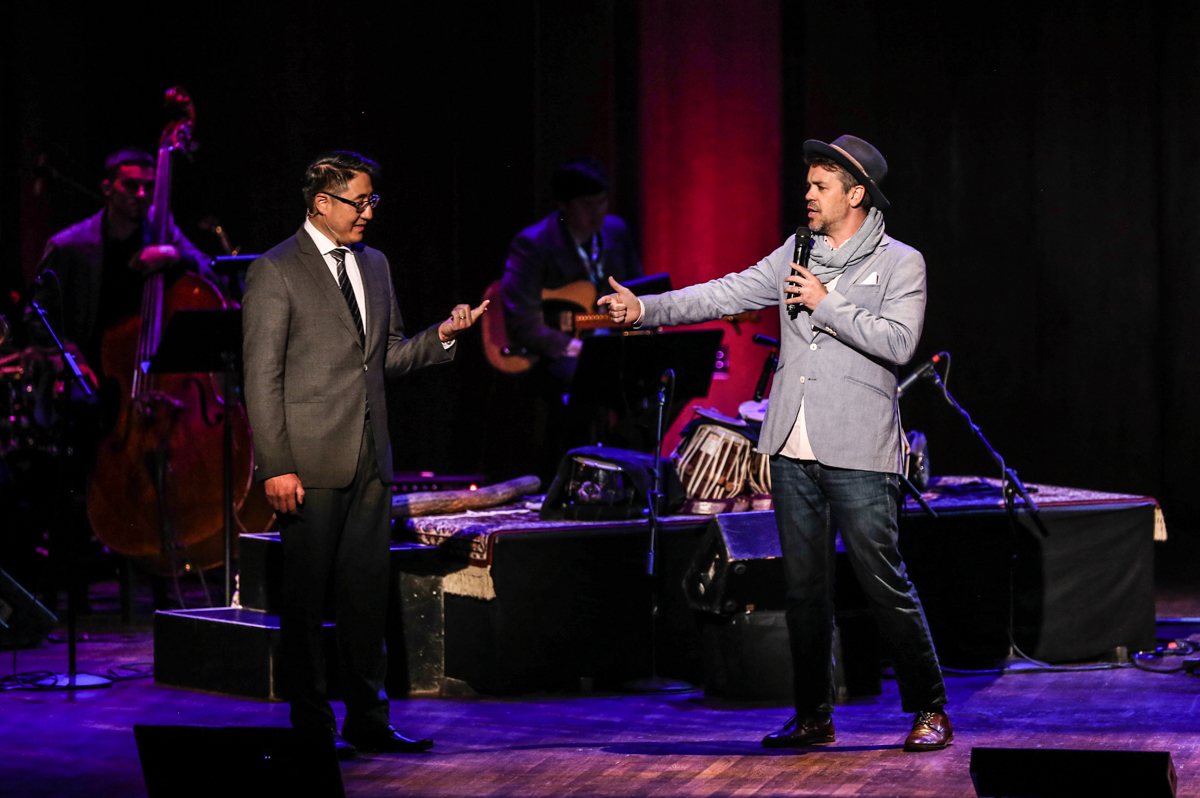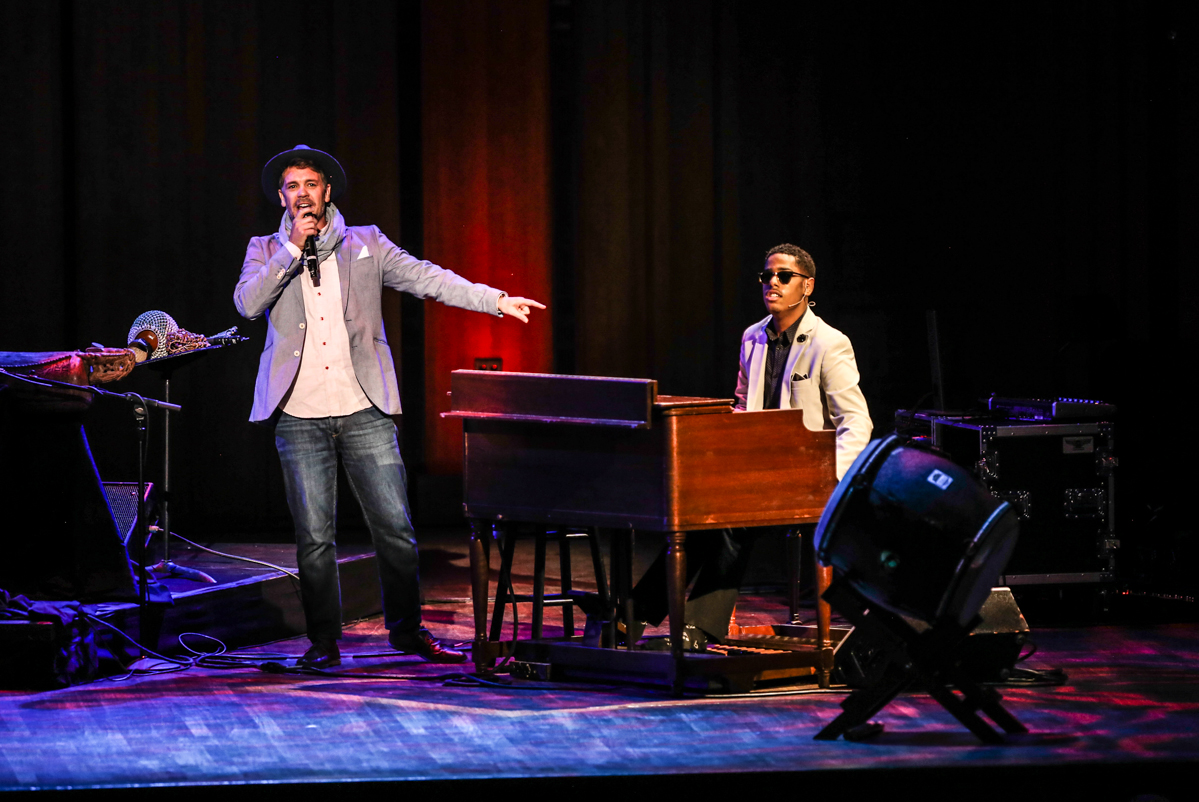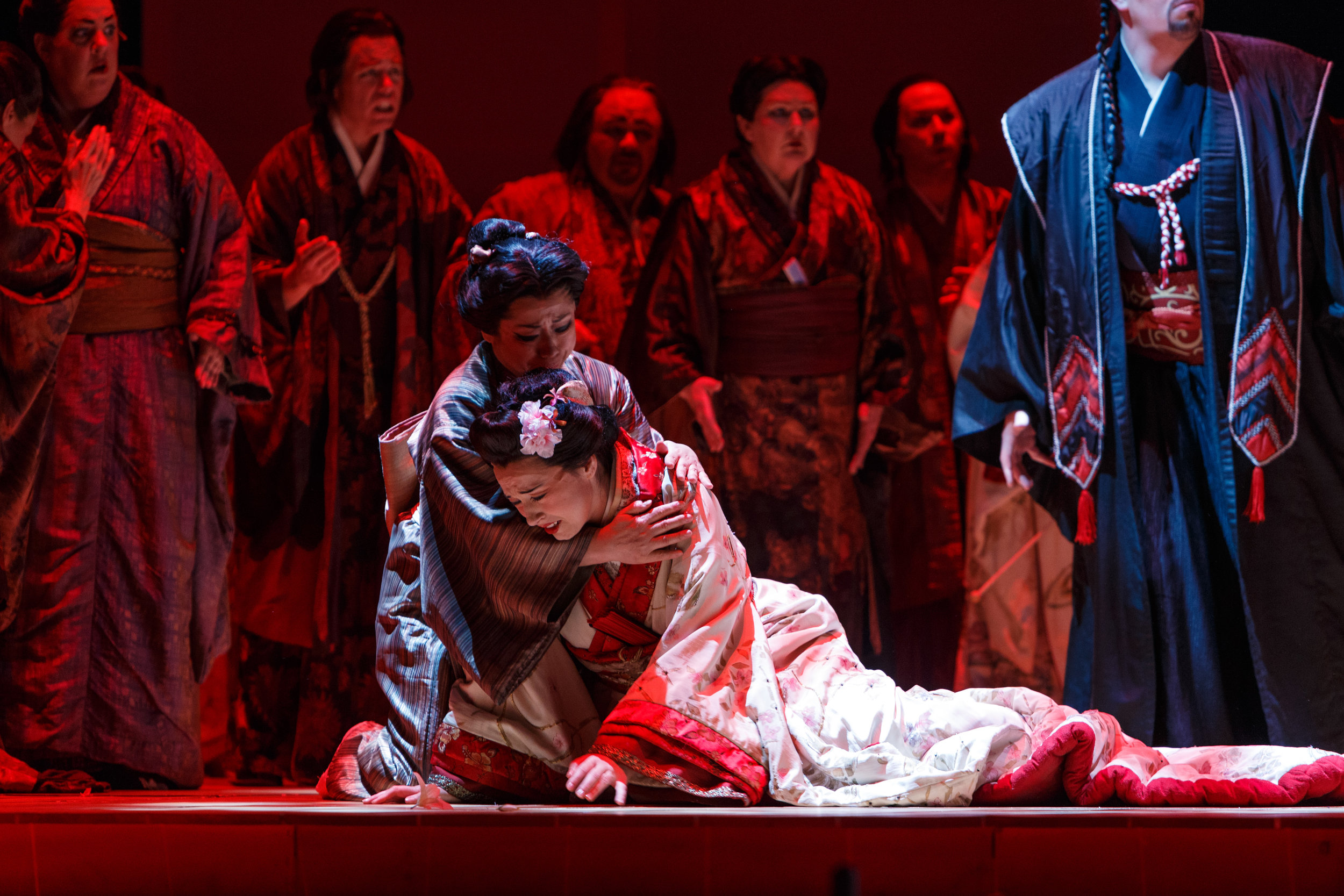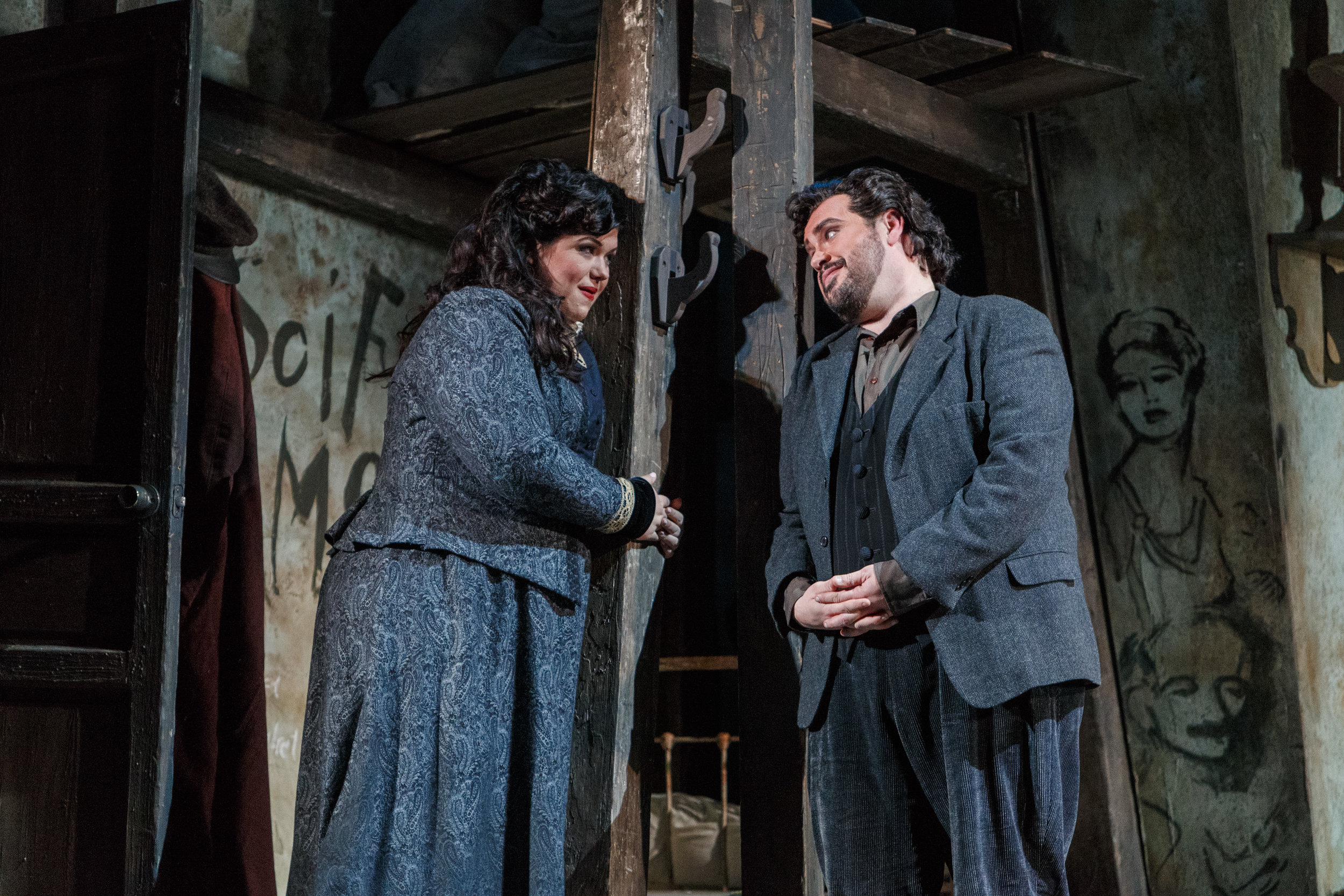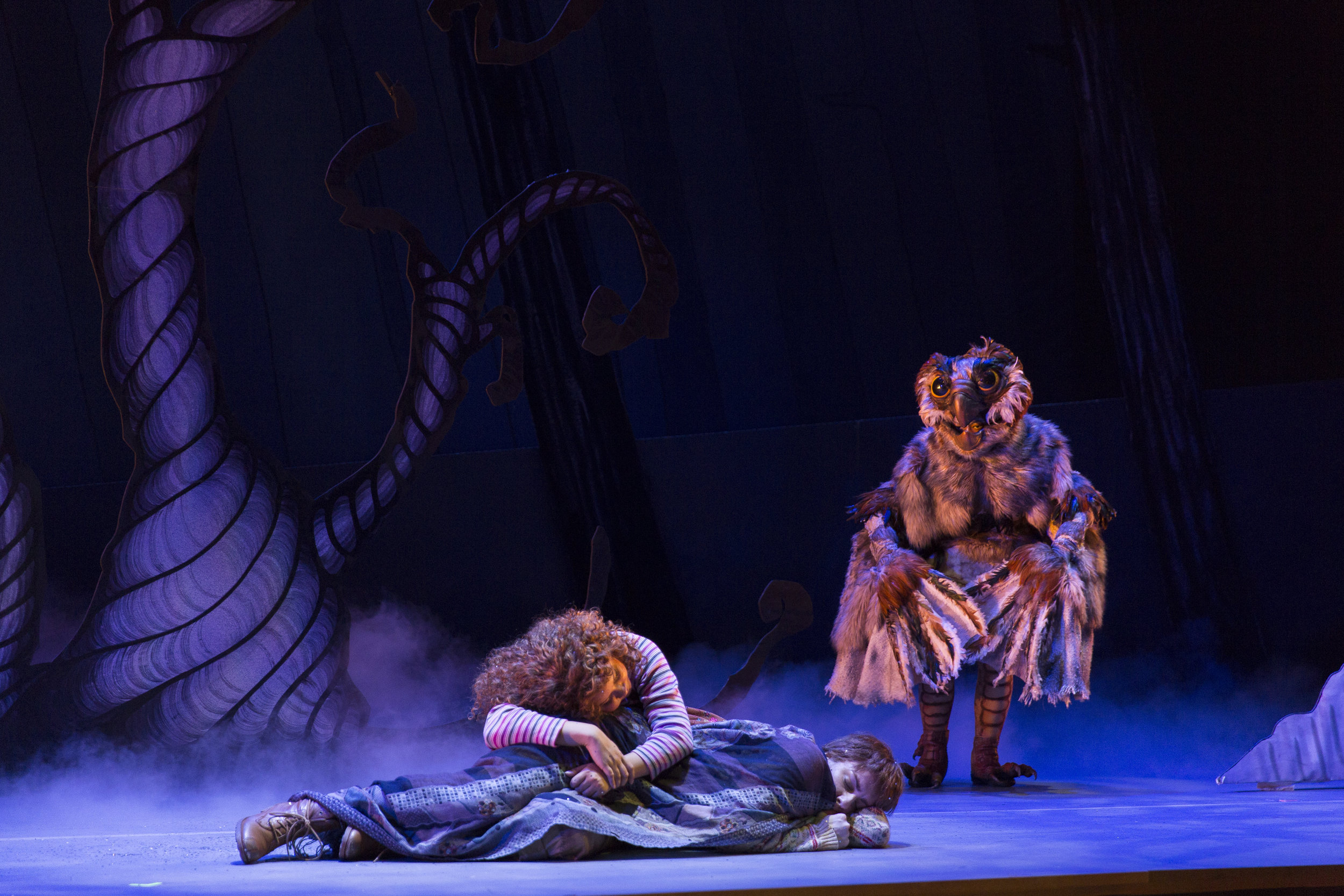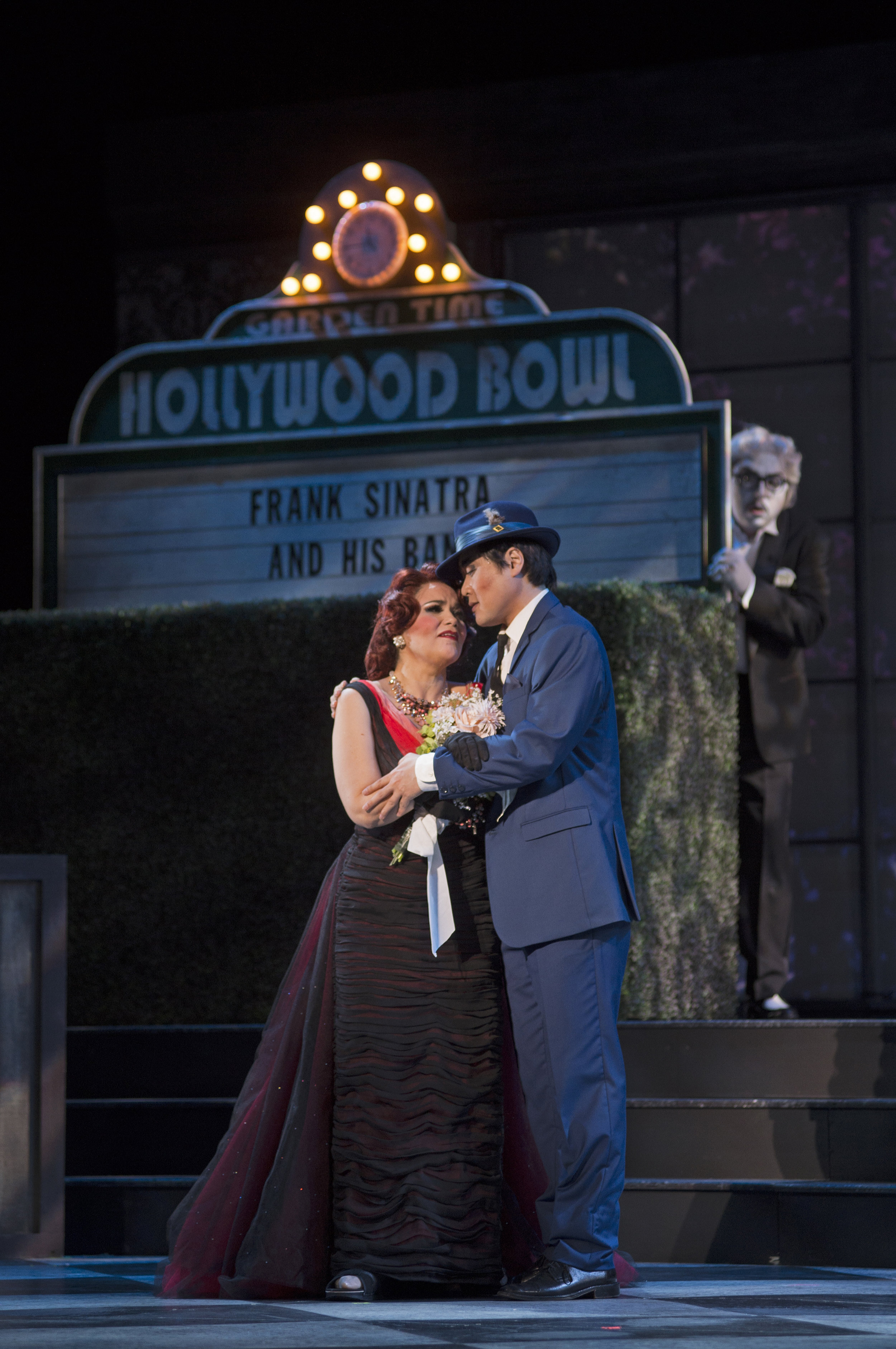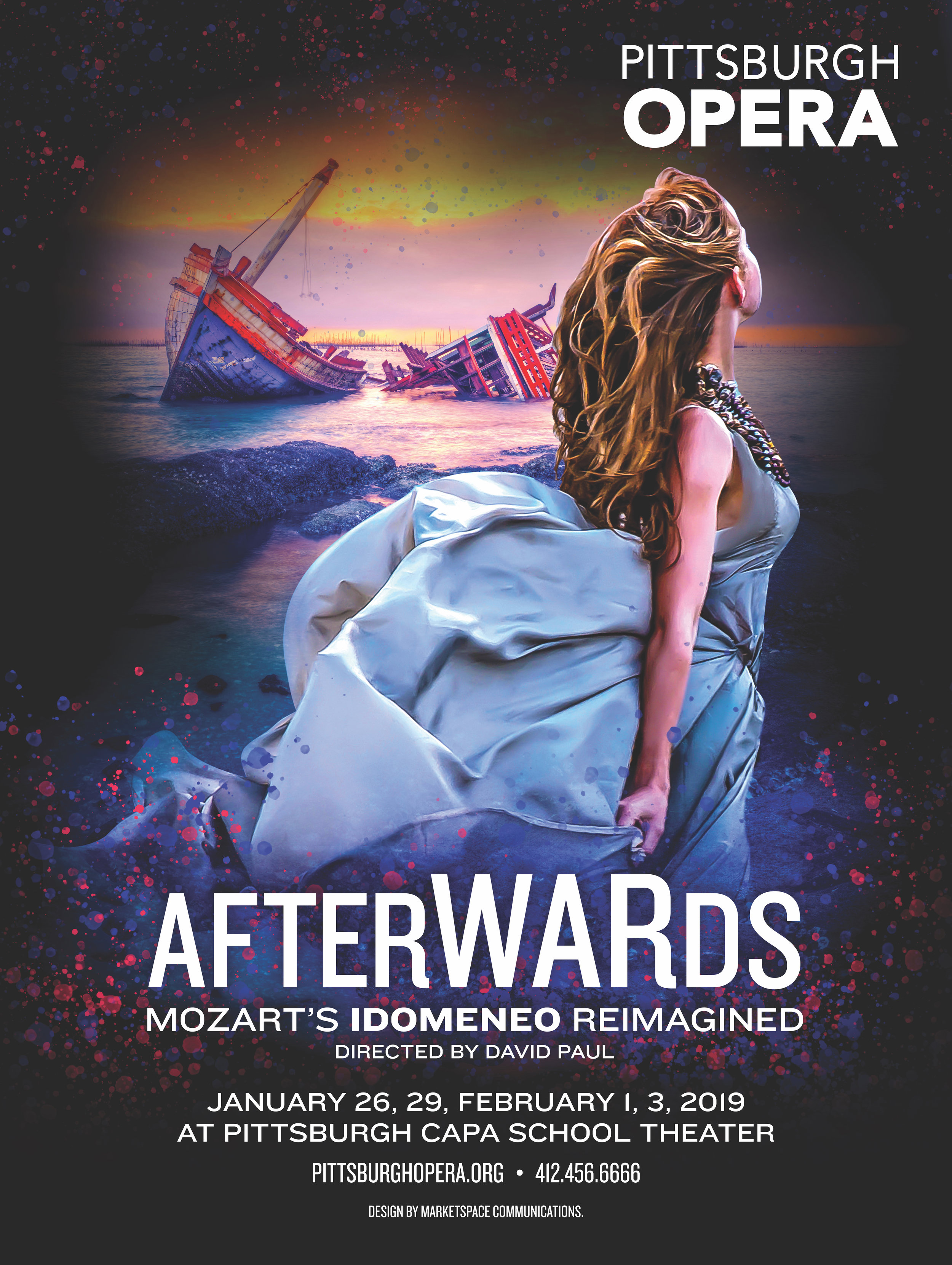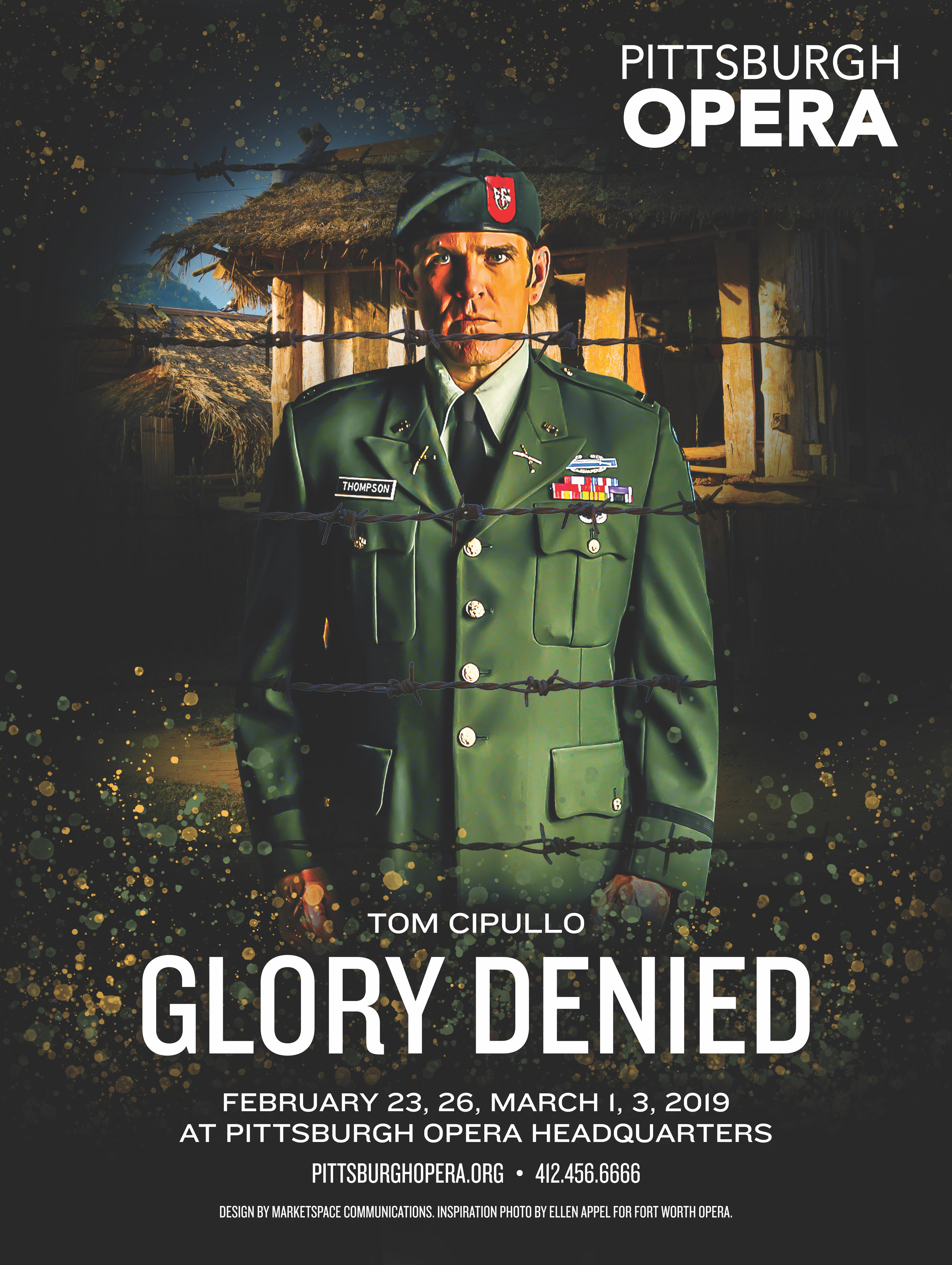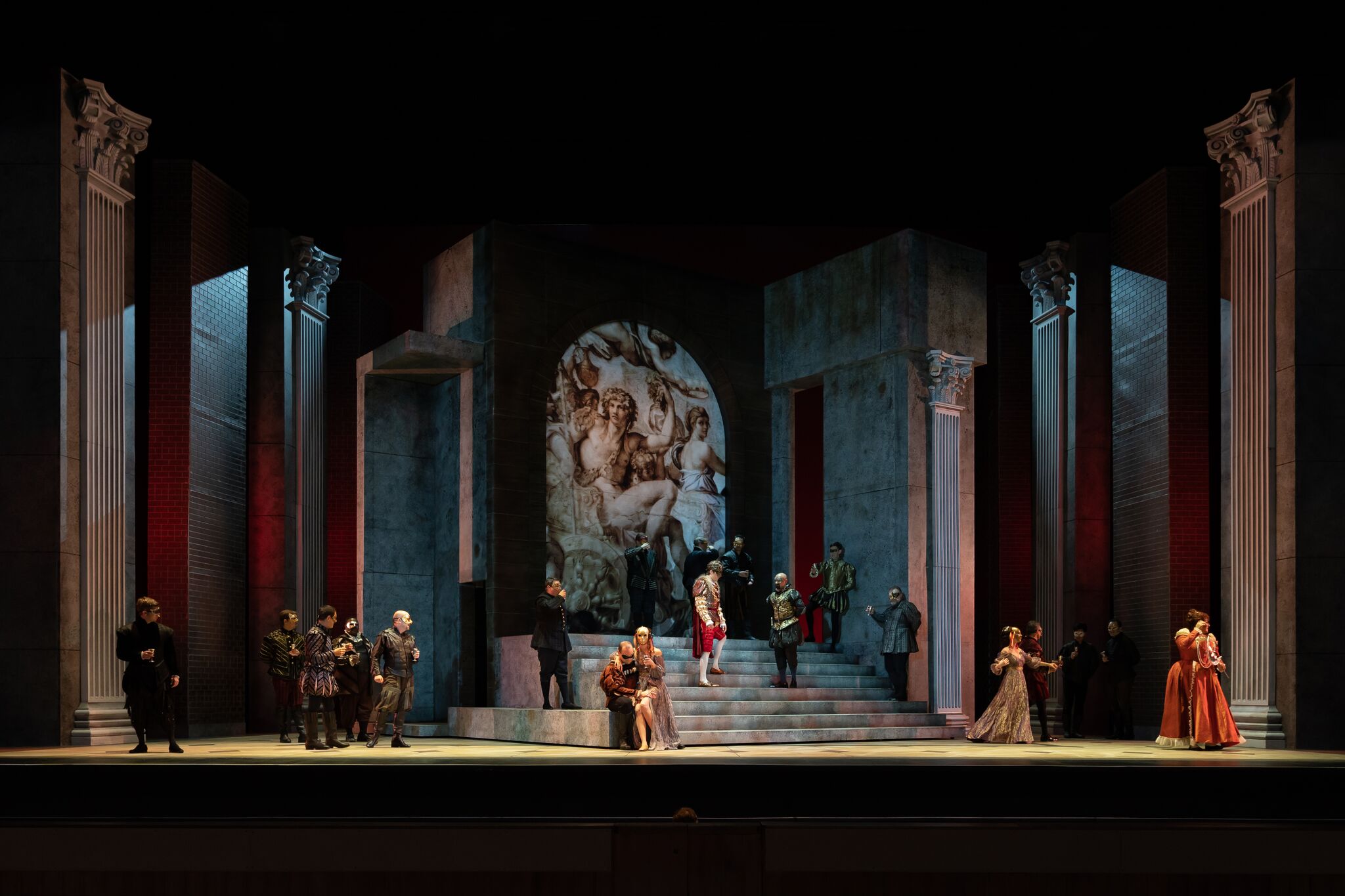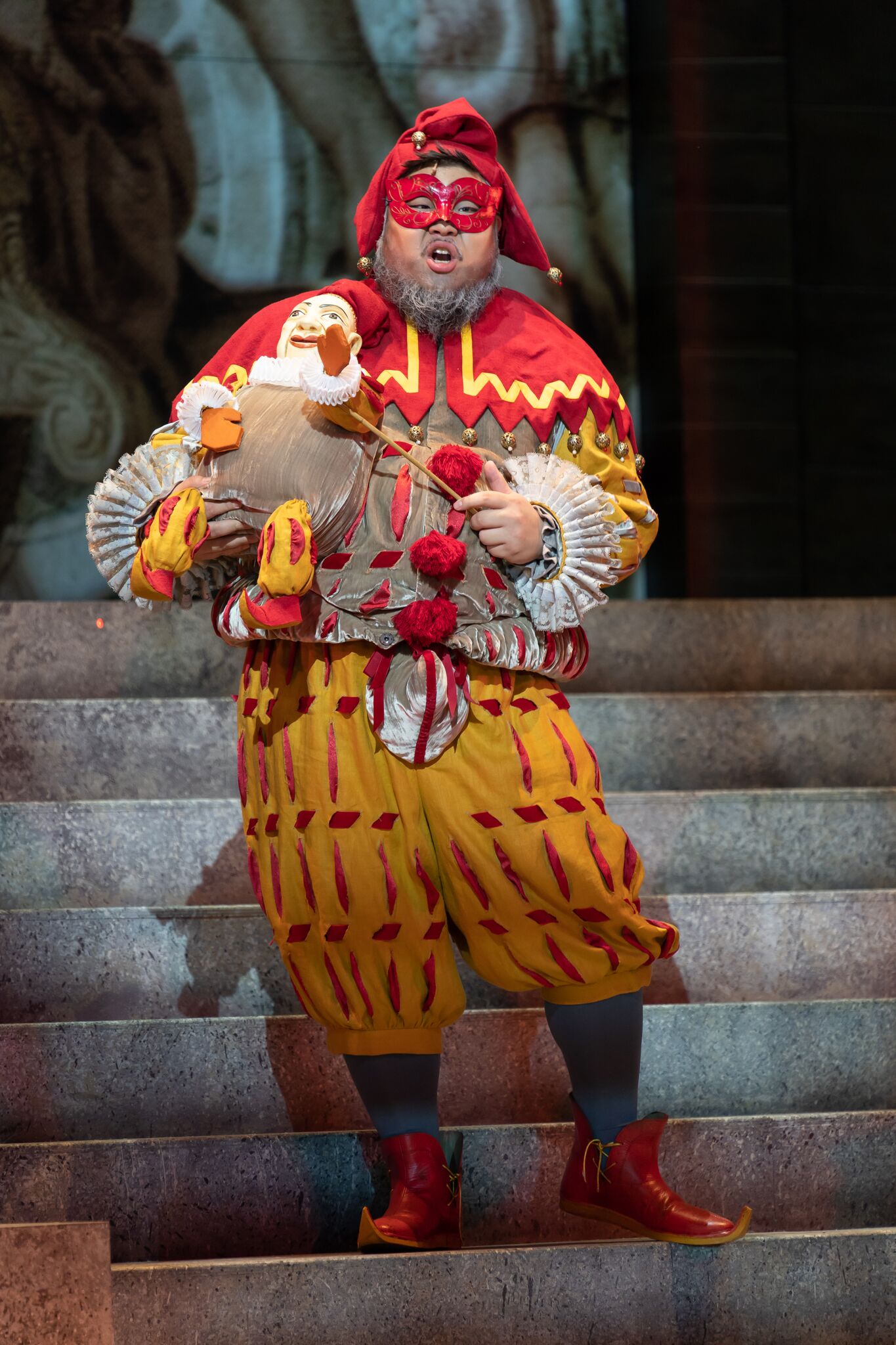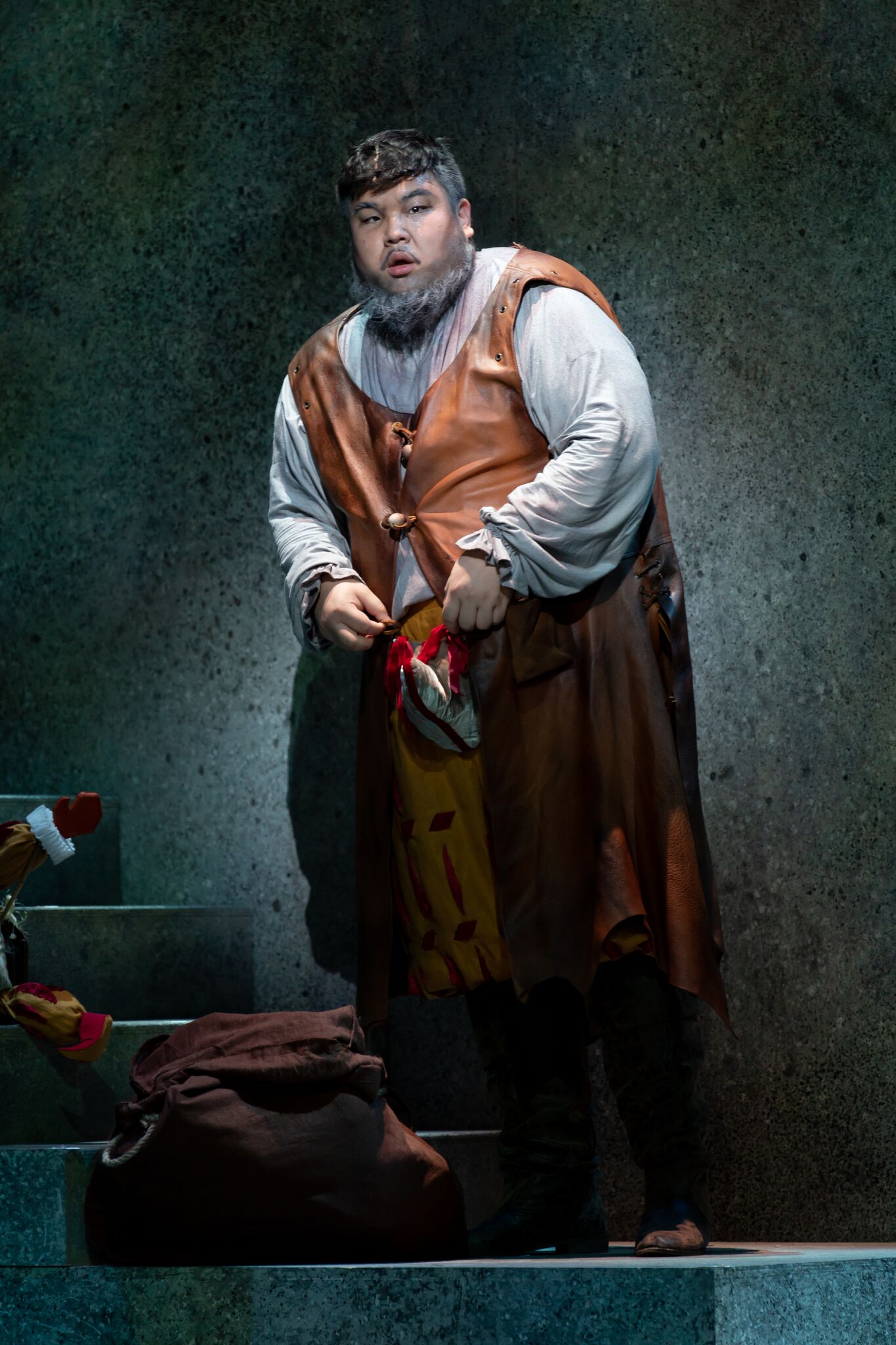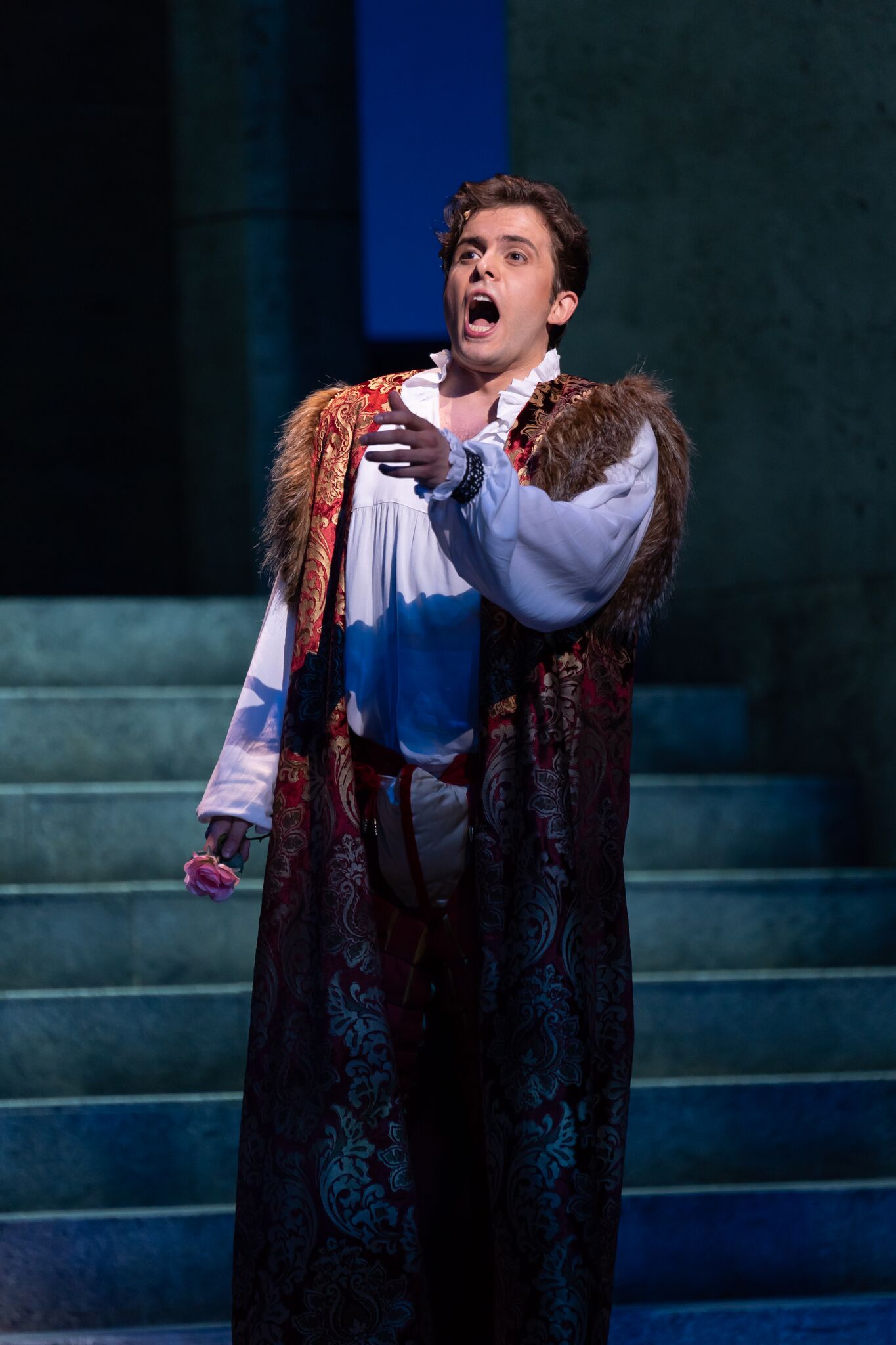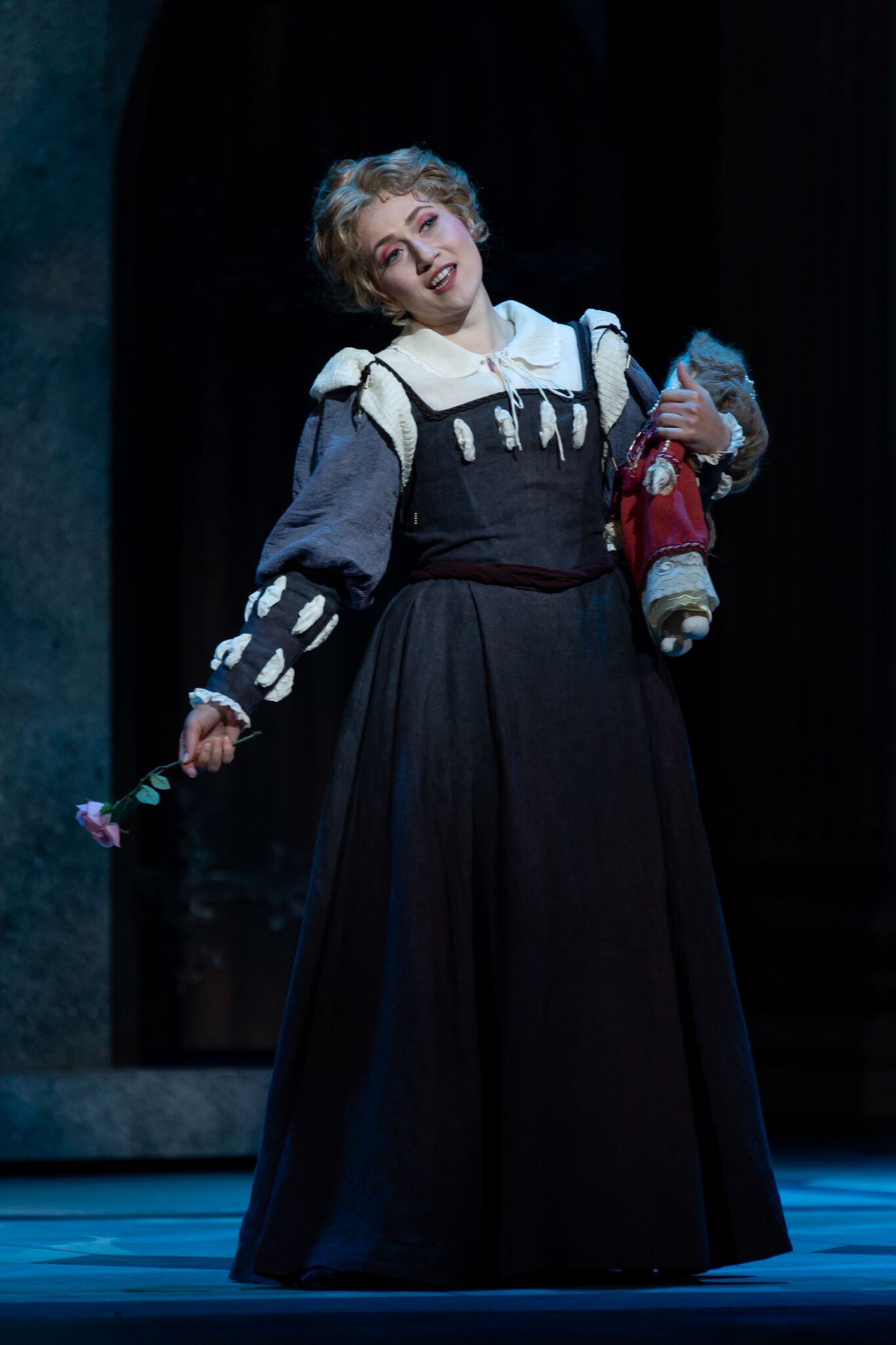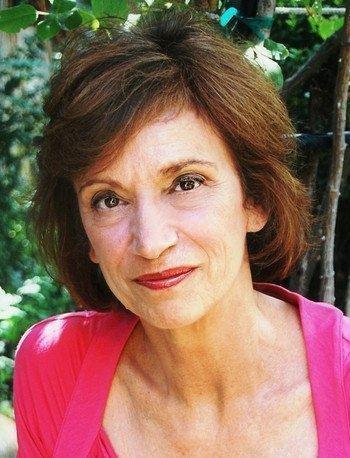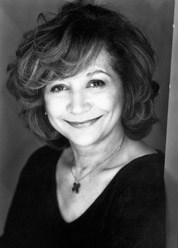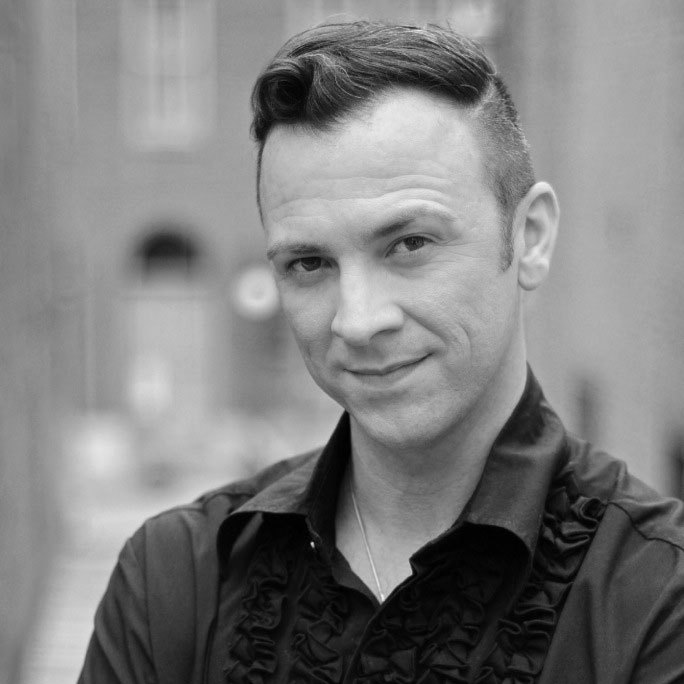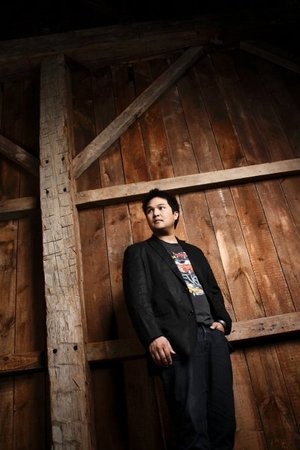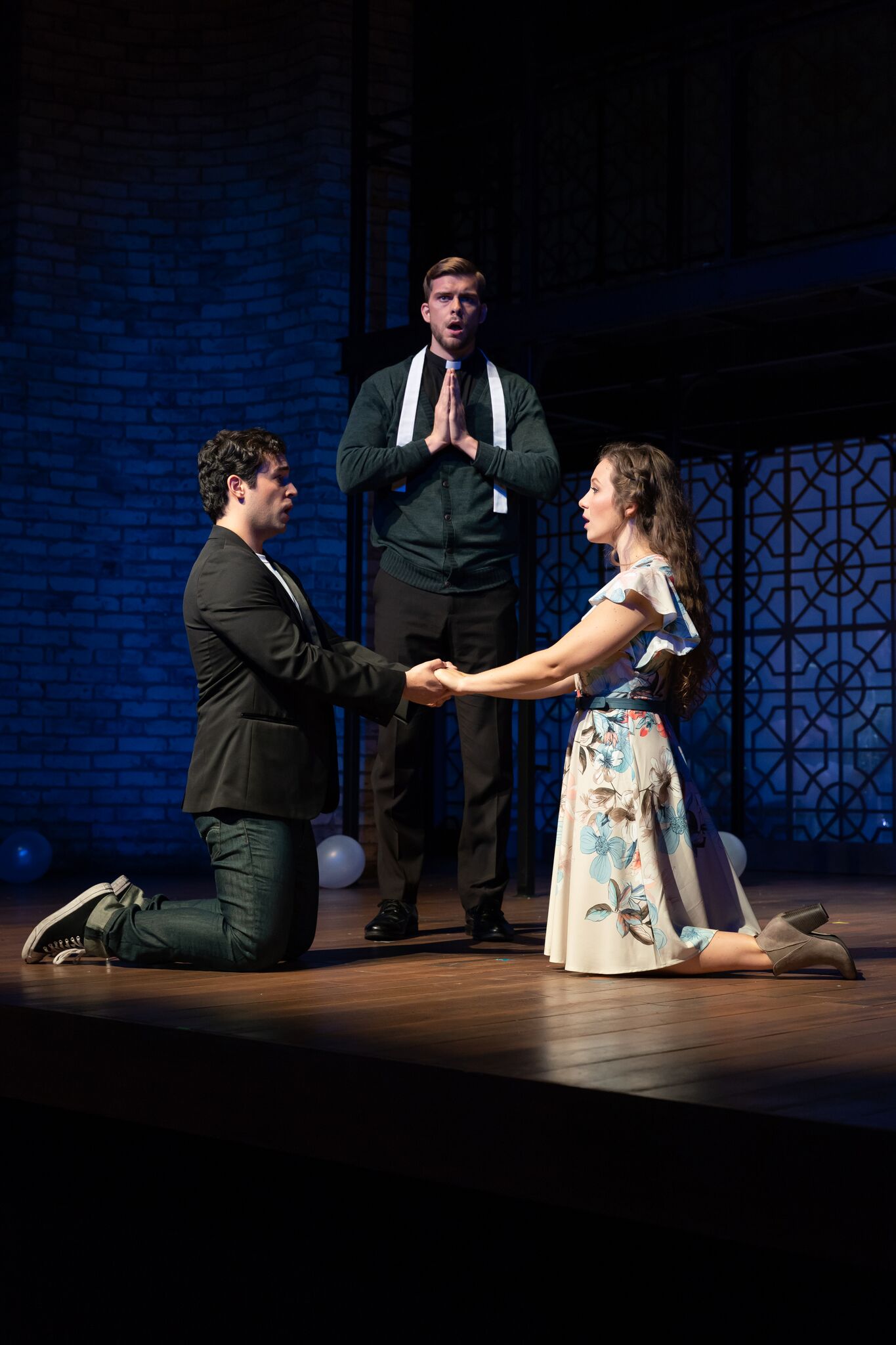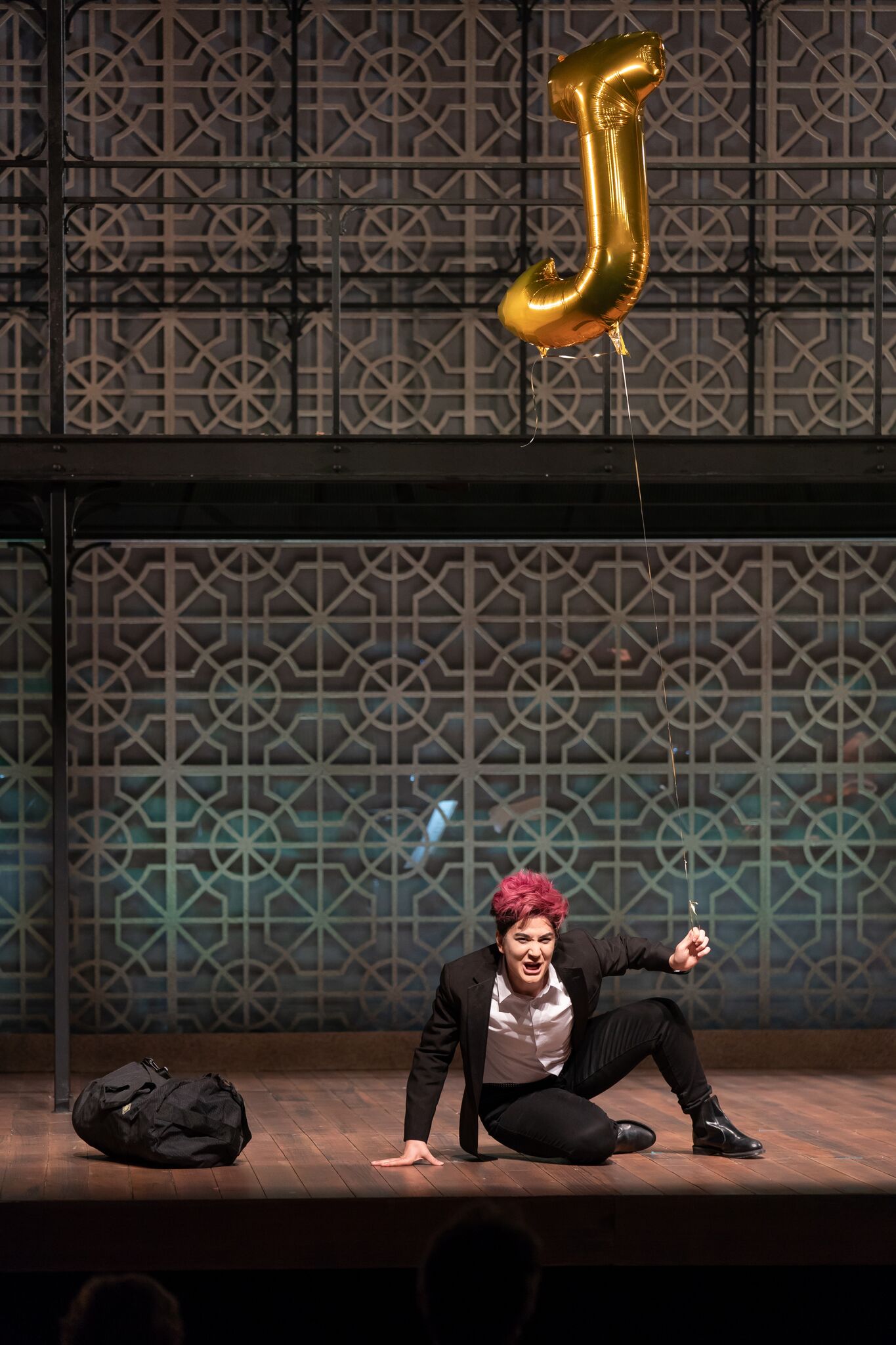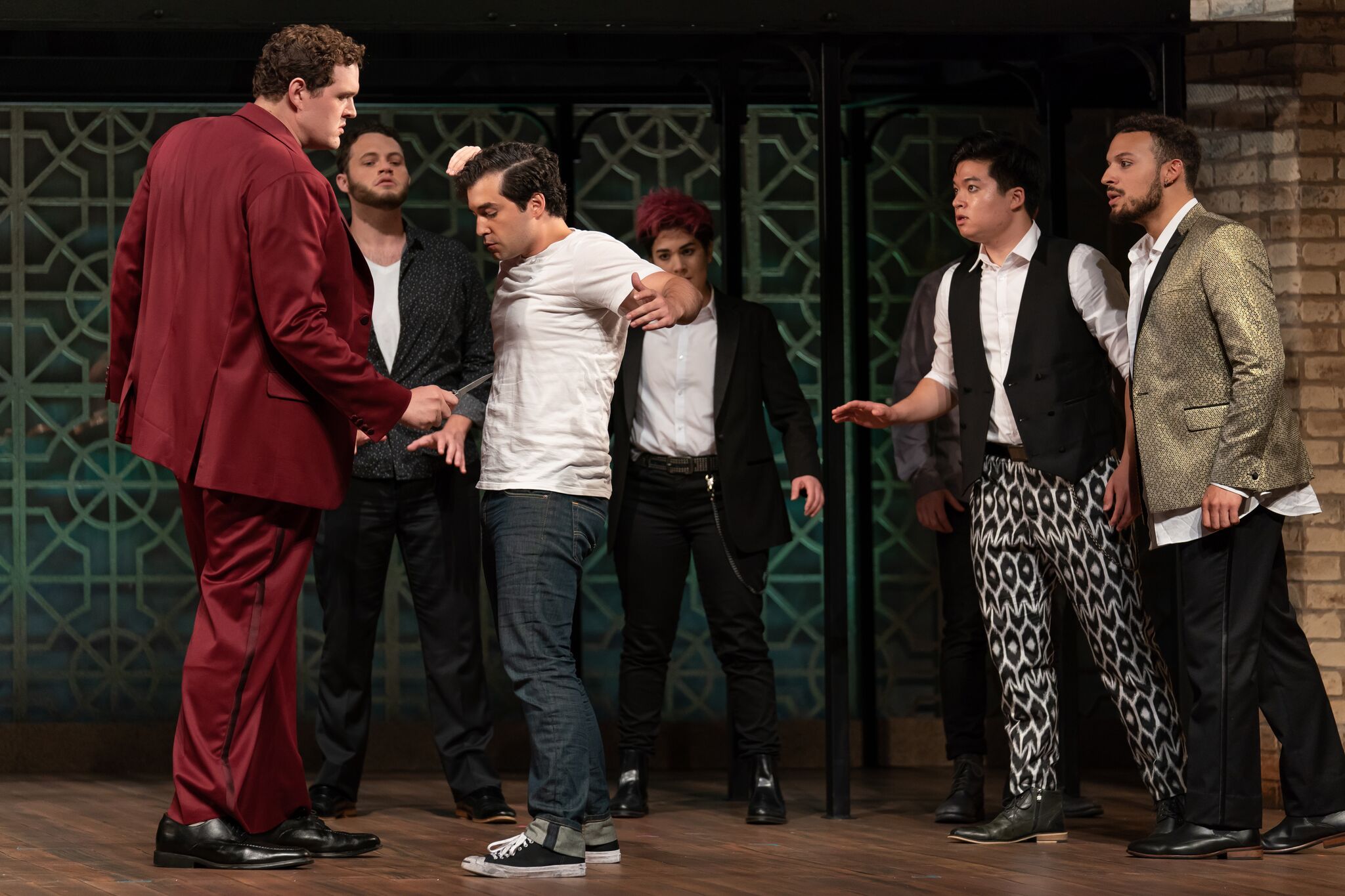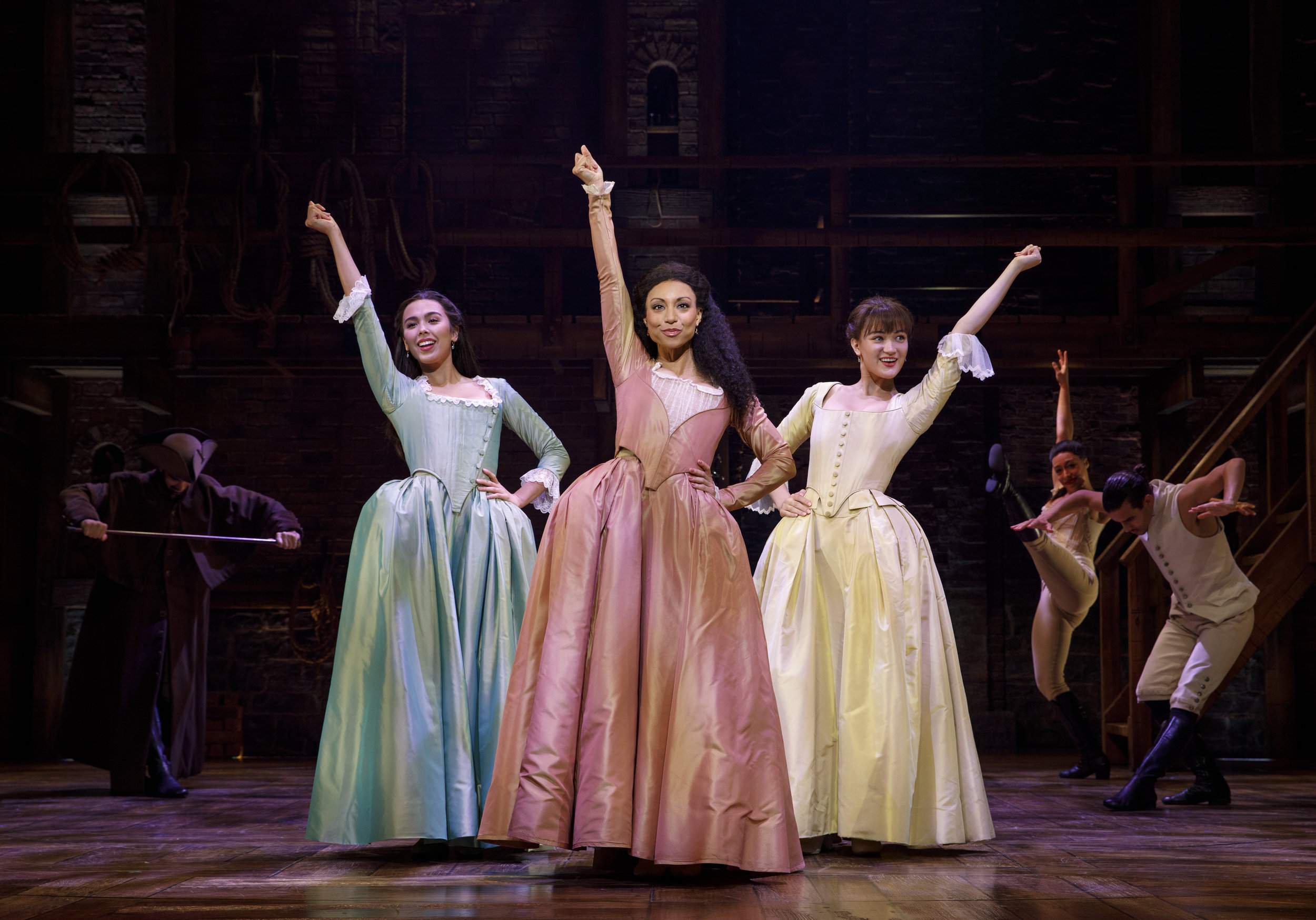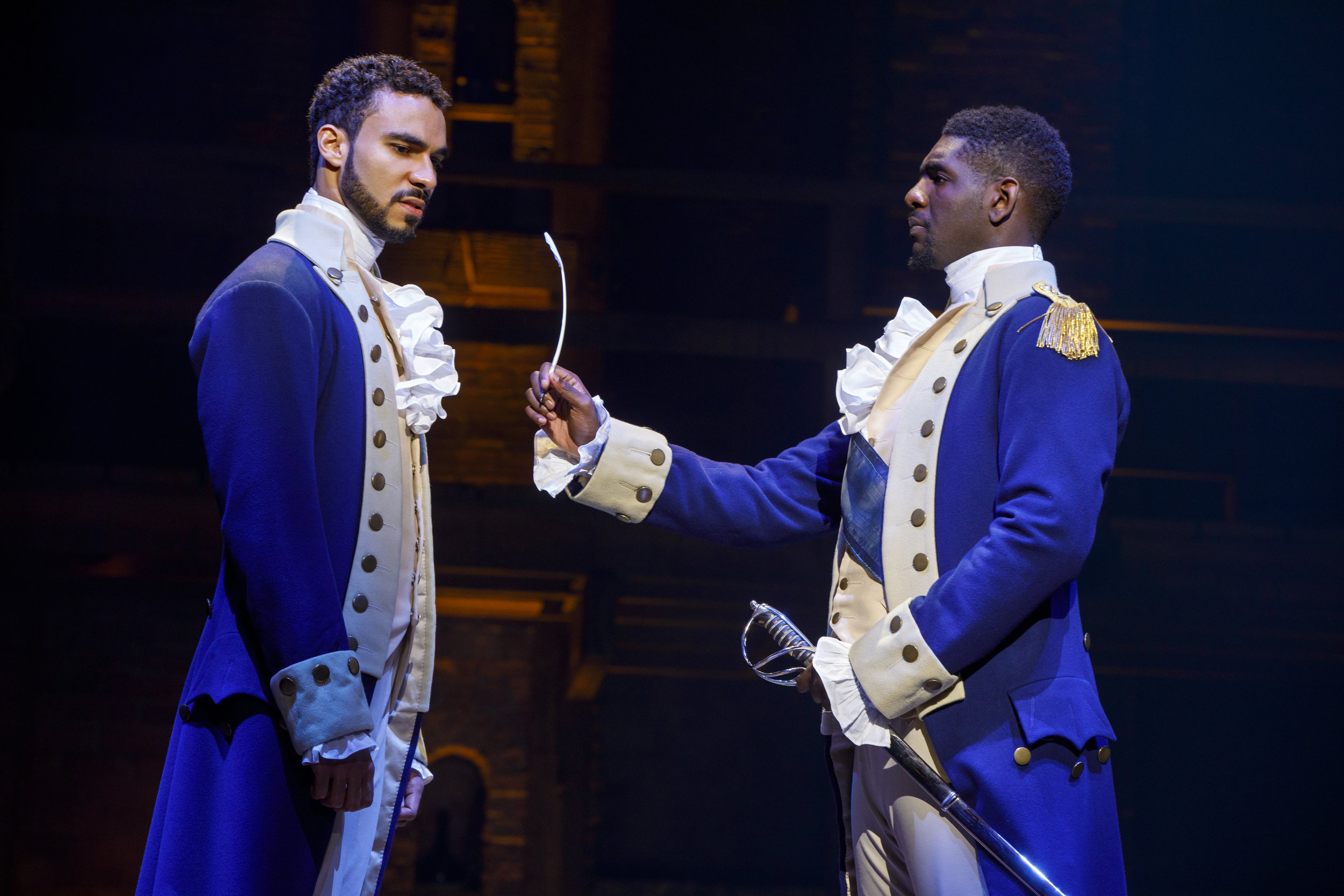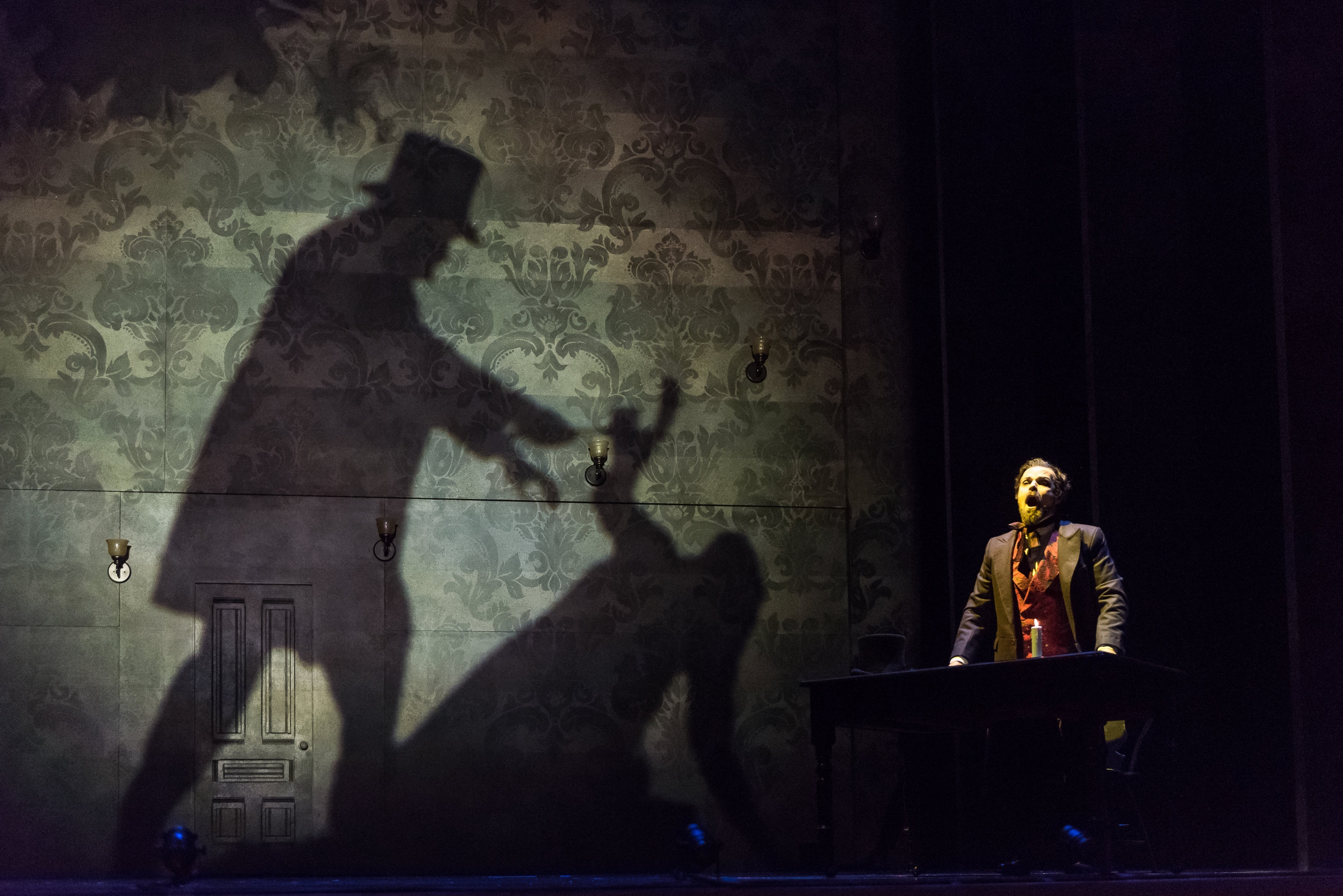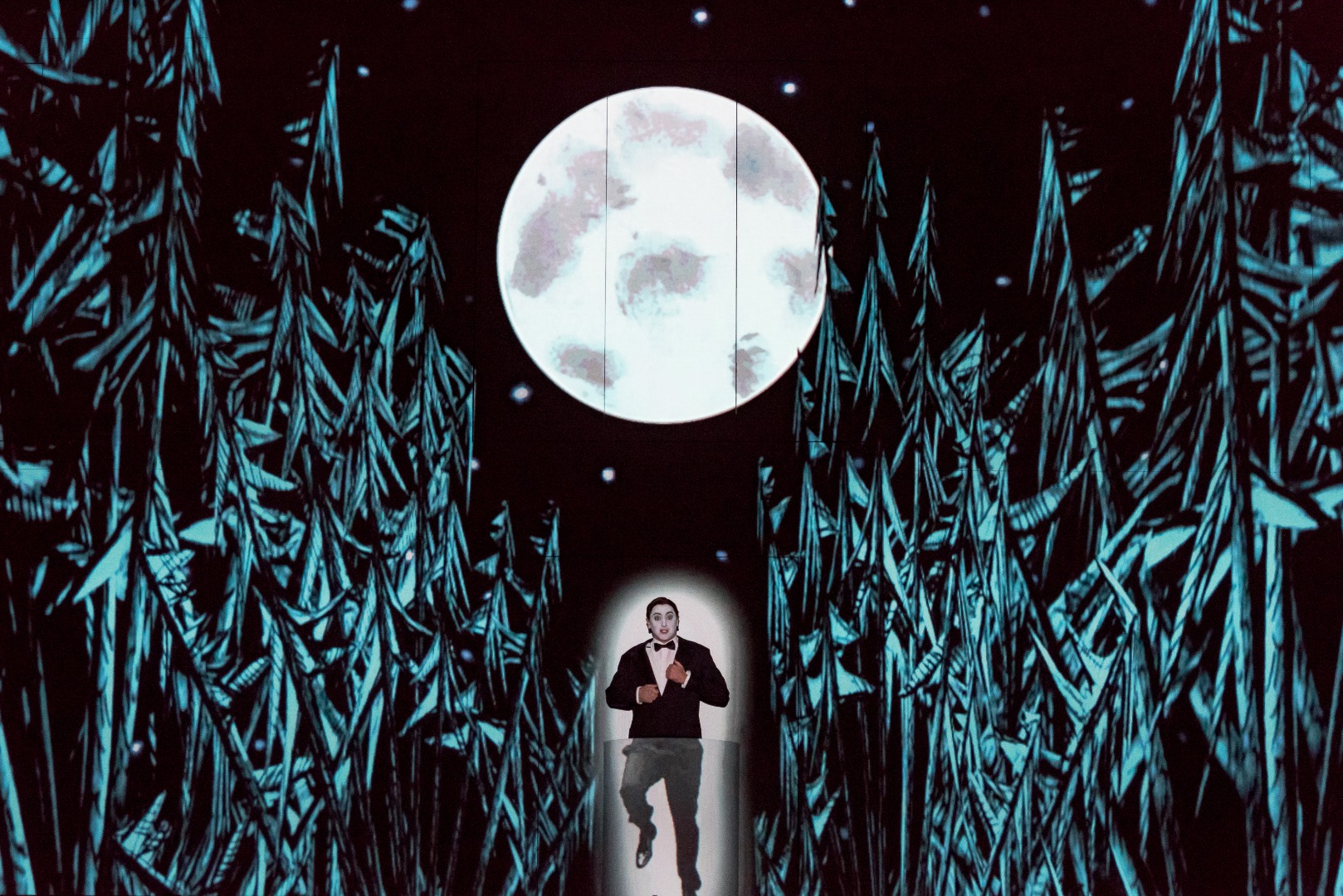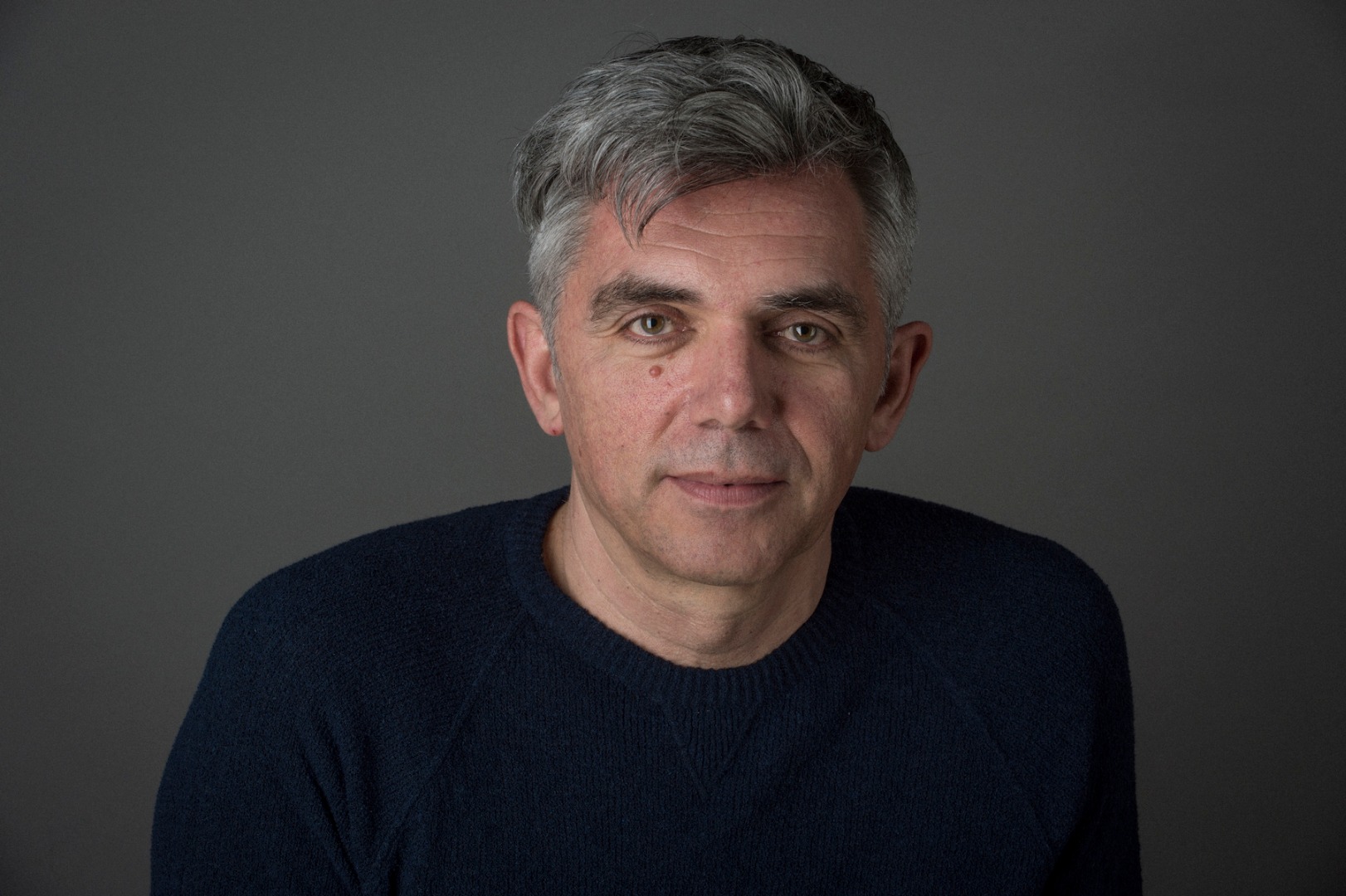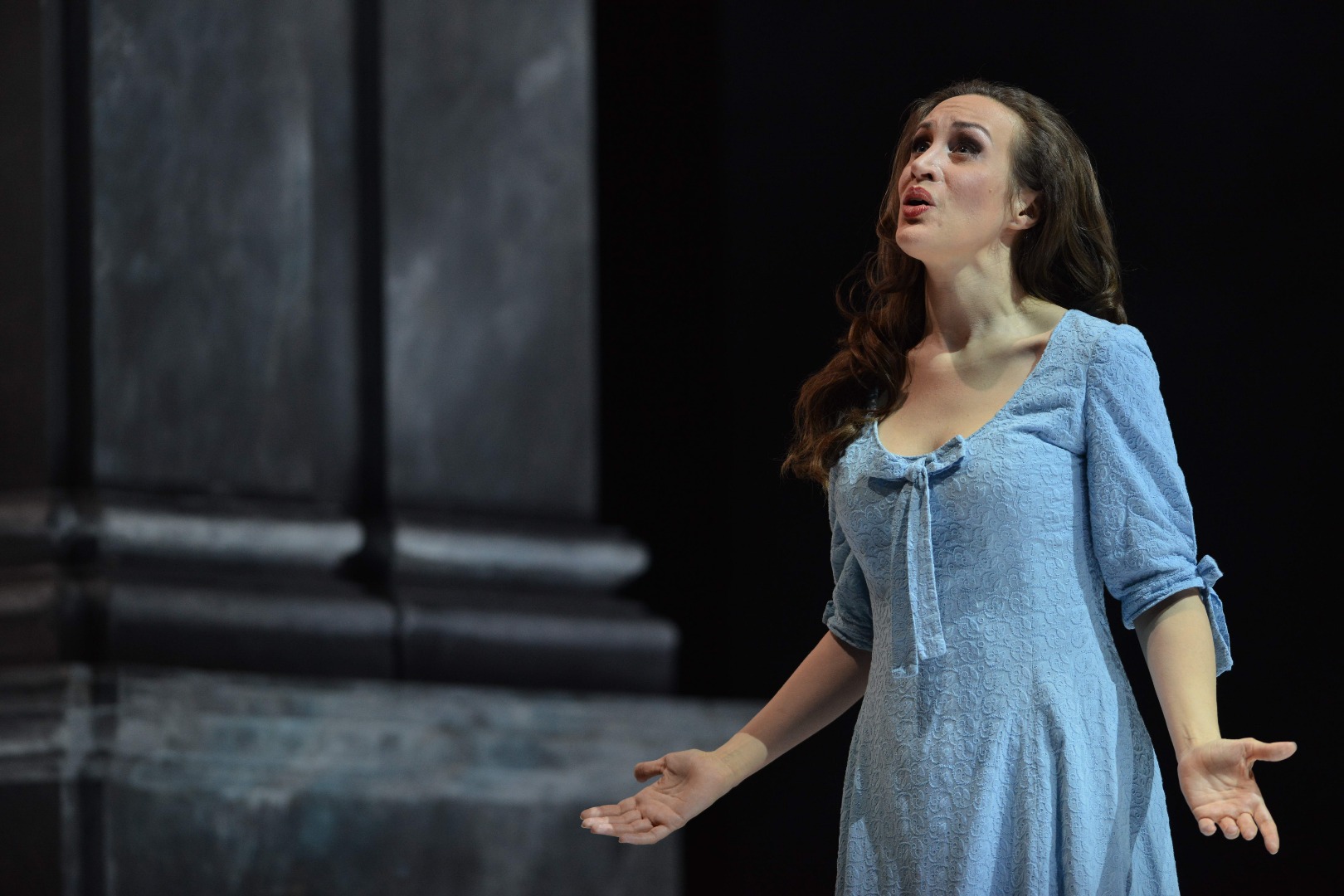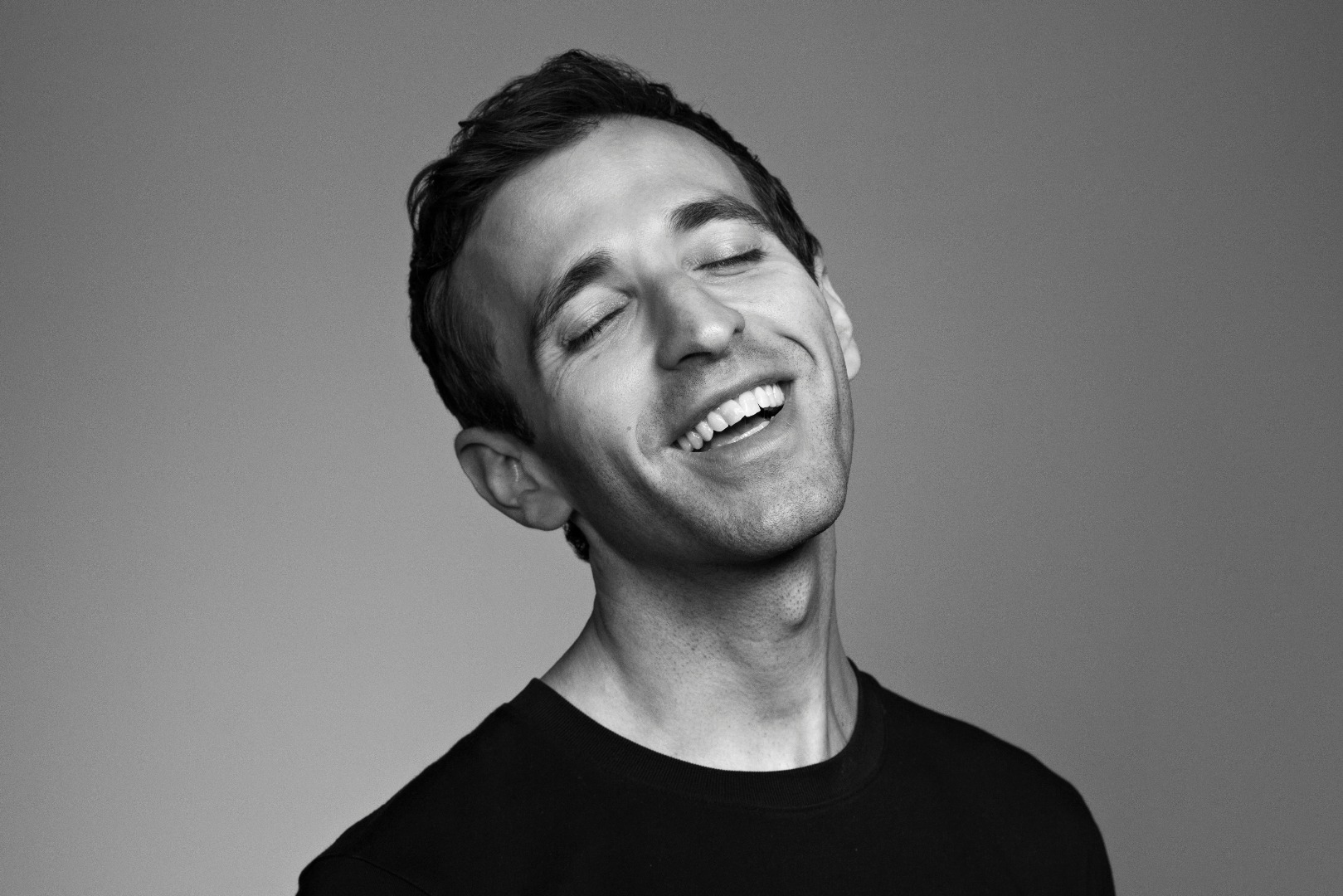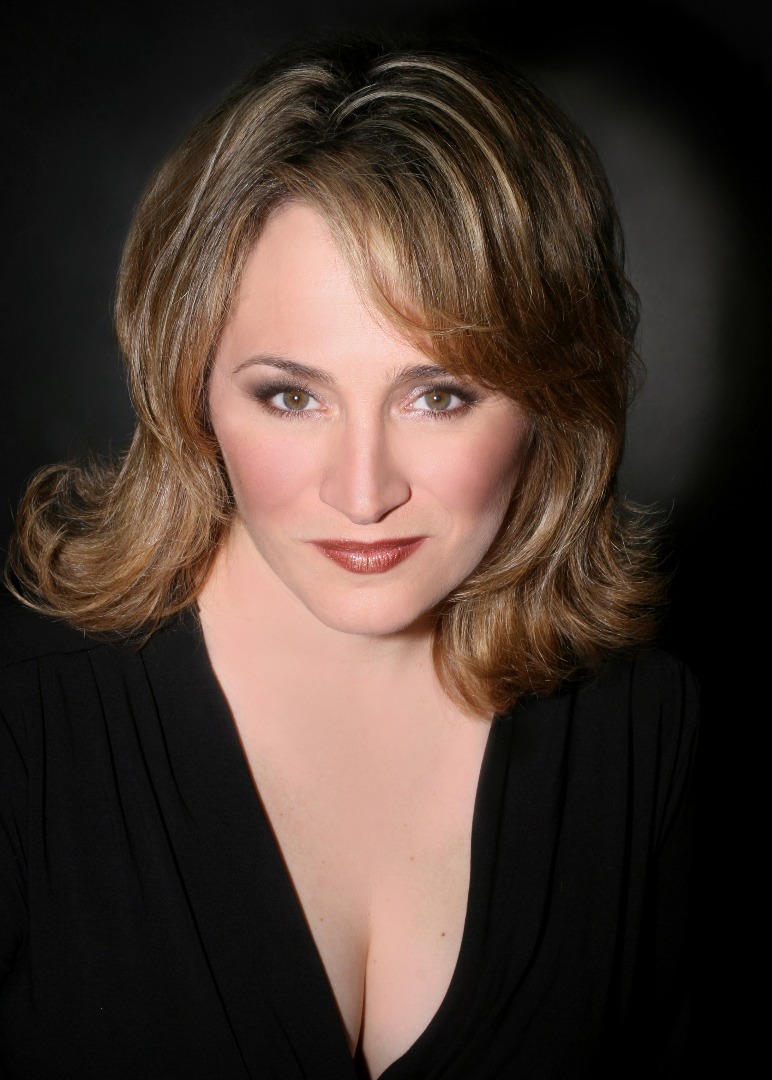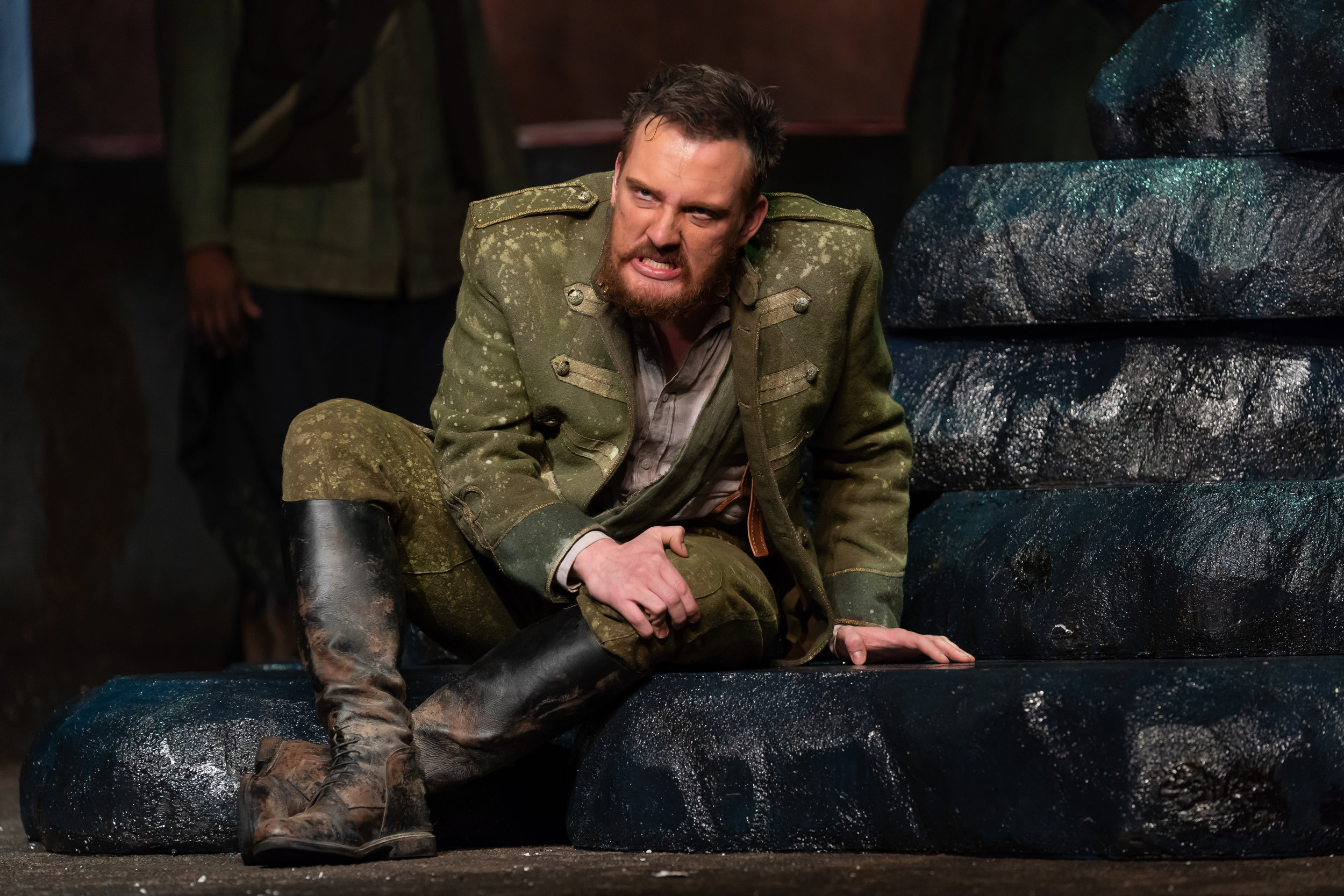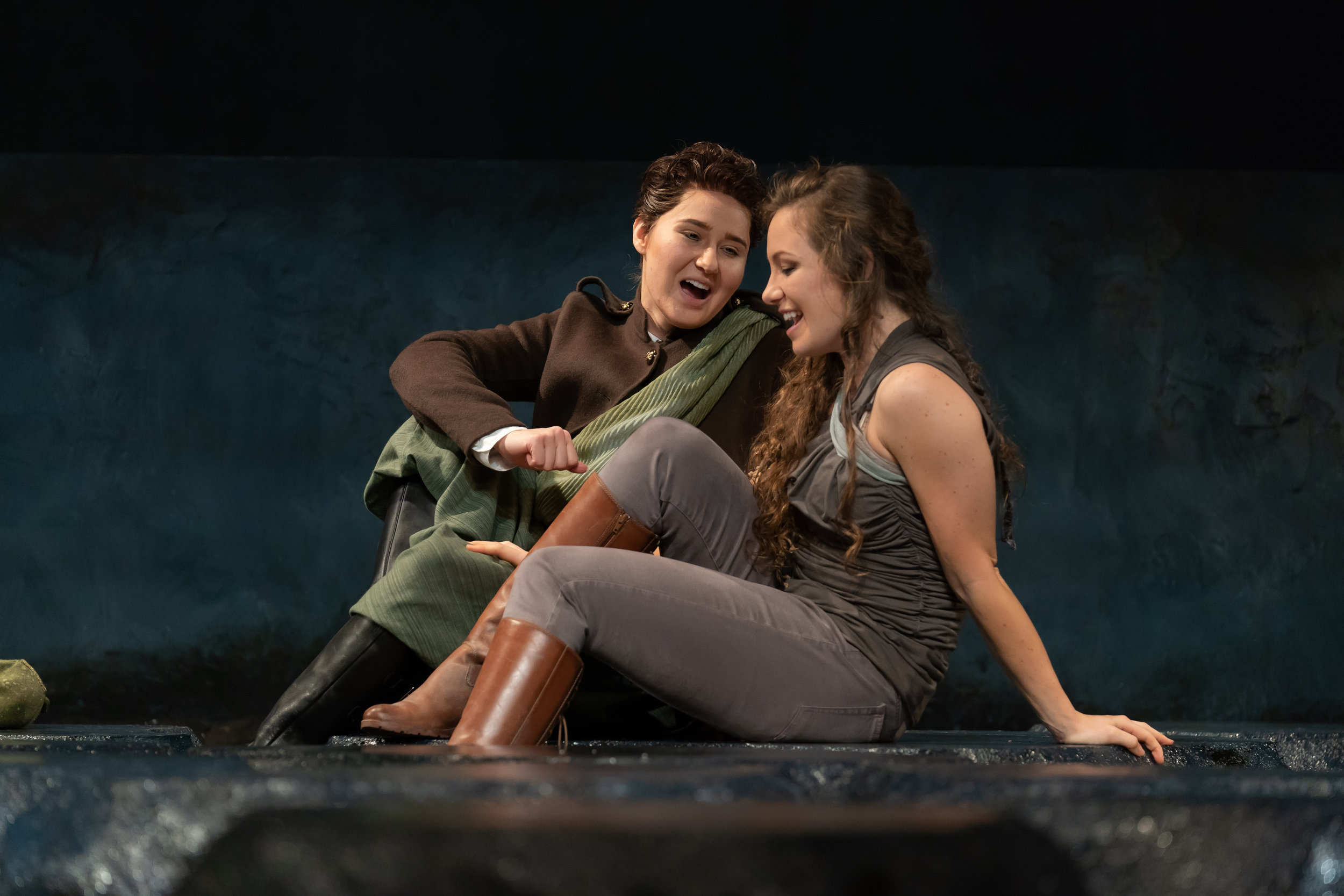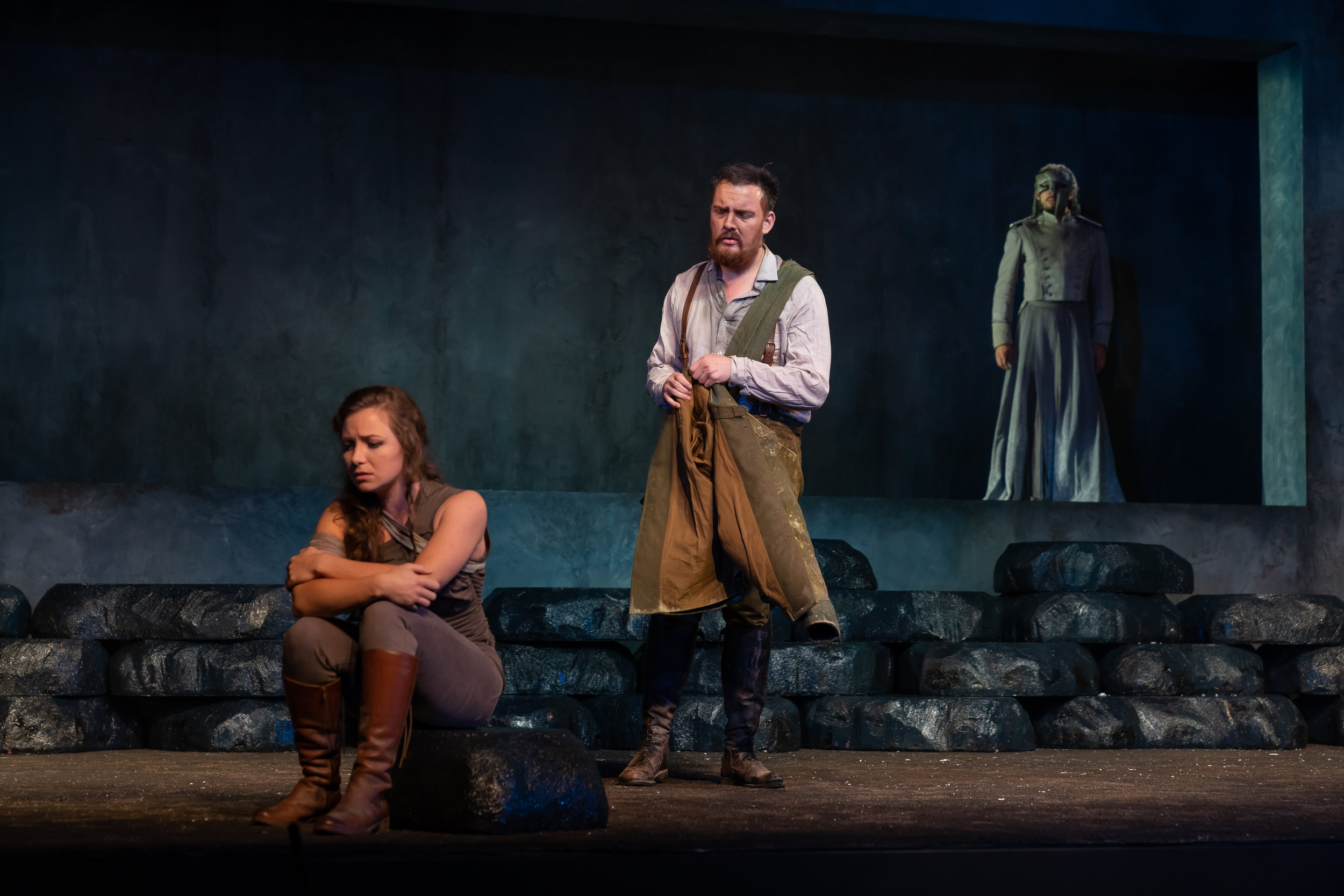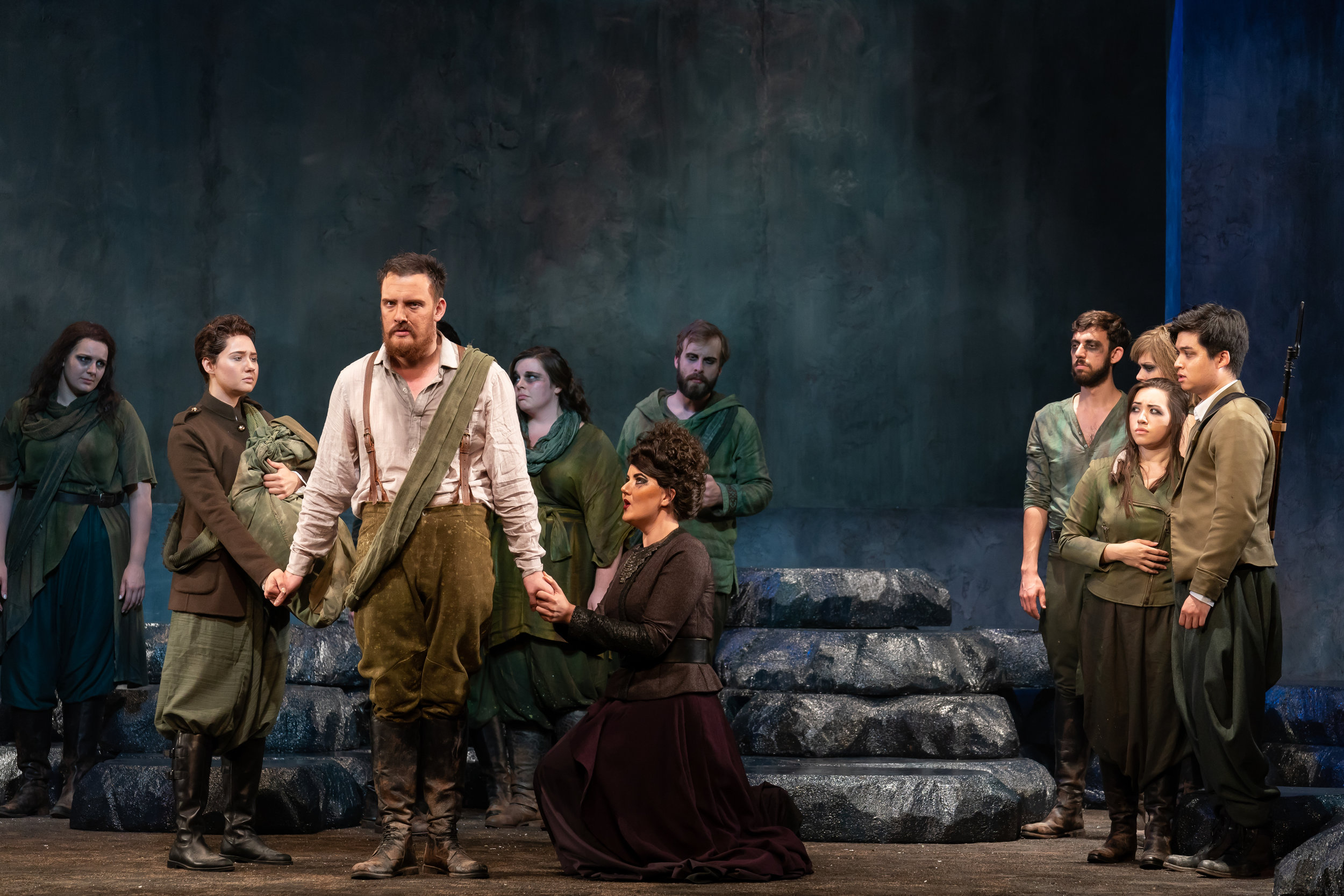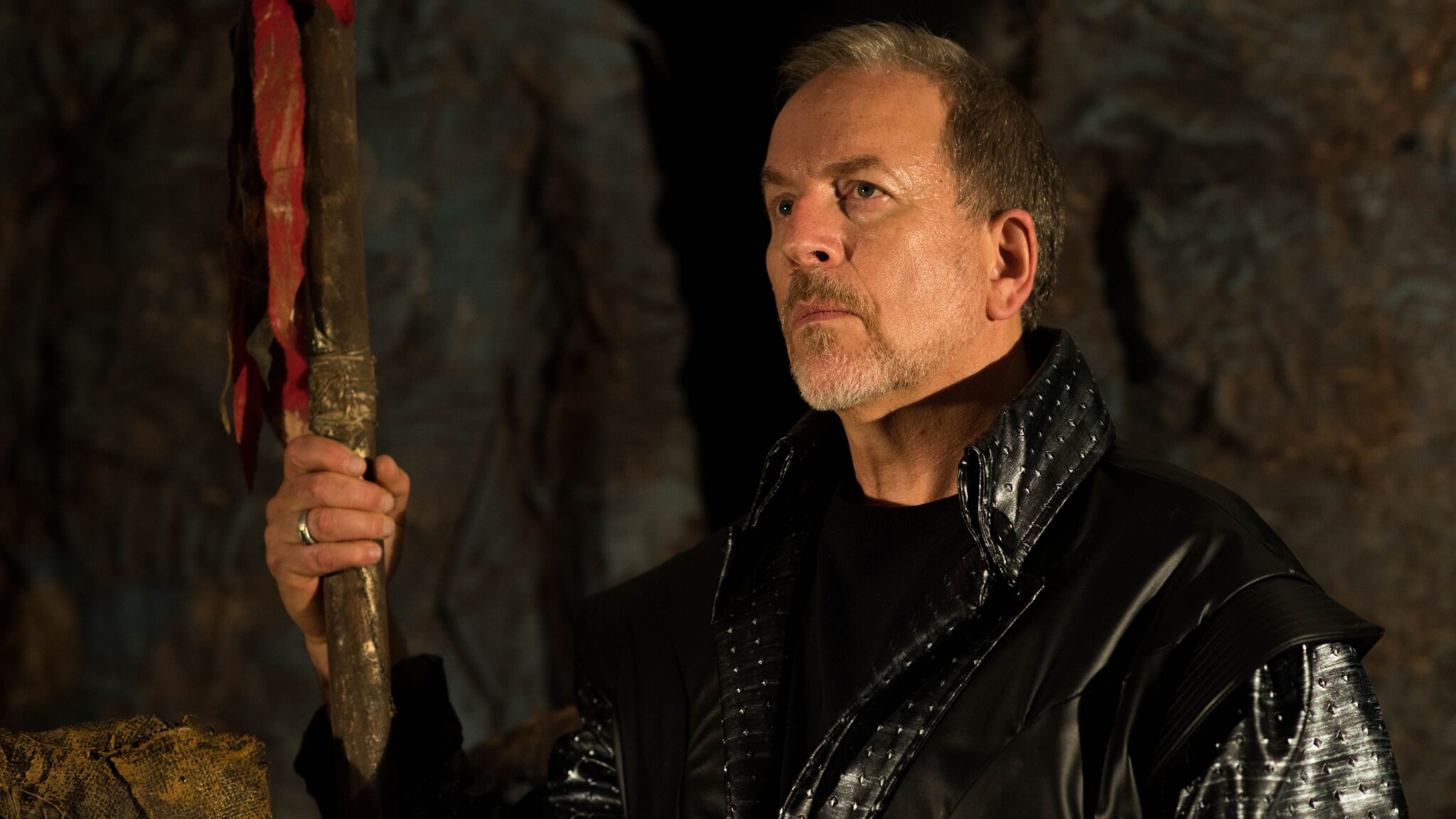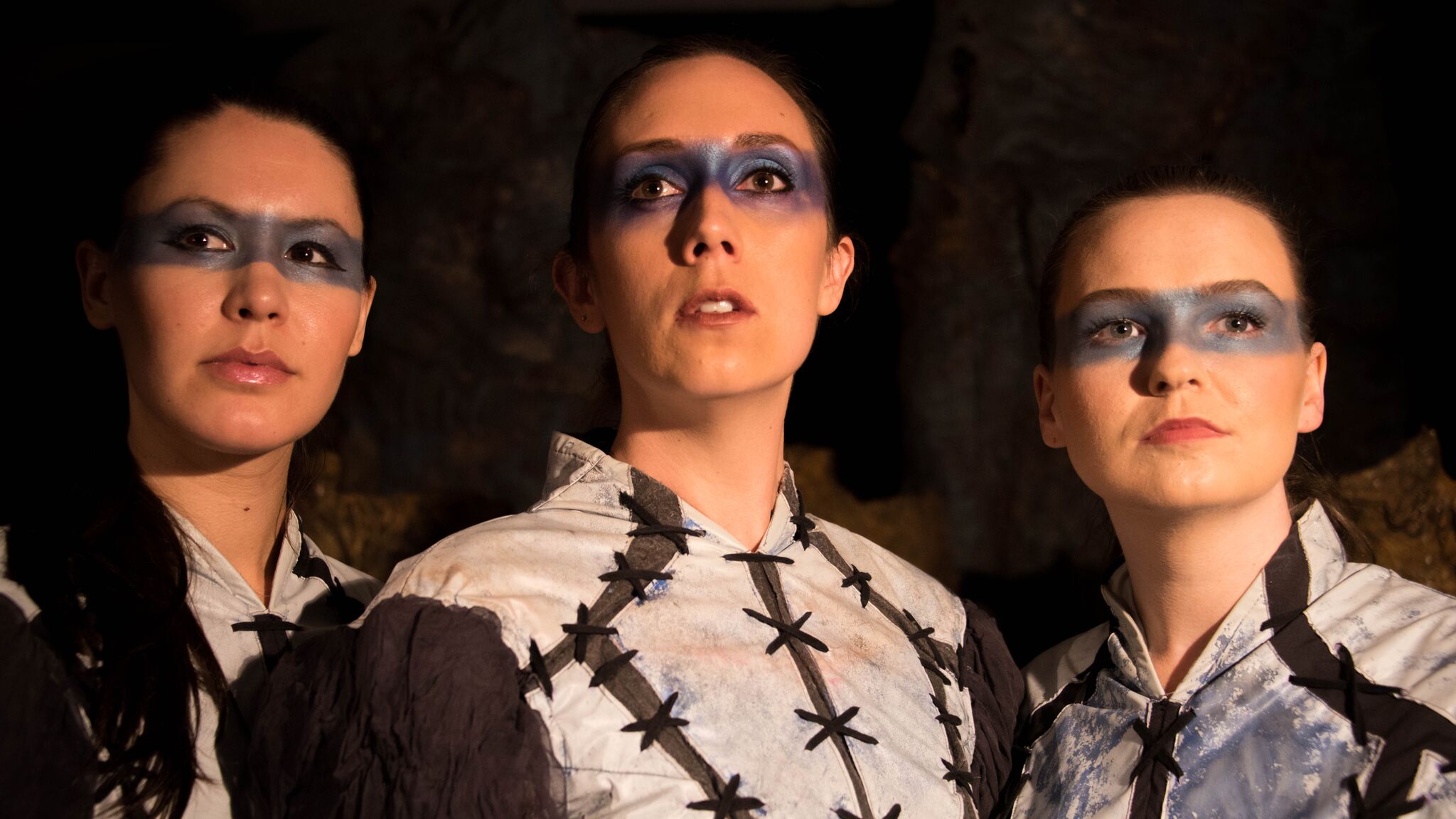The great composers, Rossini, Gounod, and Wagner suggested Don Giovanni as the greatest opera ever written; many critics, musicologists, and opera buffs agree. Thus, it is performed hundreds of times each year across the globe. Many of these productions will be new or modified versions where the director puts their spin on this oft-told tale of an 18th century Don Juan. New productions may change the time period, the costumes, the setting, the text, the language, the story line, even sexual orientations of the characters, giving emphasis to a particular view of the story. In one of the more famous modernized productions, directed by Peter Sellars and broadcast by PBS in 1991, Giovanni is a street-wise thug in South Bronx and Donna Anna has a drug problem; early on, instead of telling her, “Foolish woman! Your screams are in vain,” Giovanni tells her, “Shut up, bitch.” A different perspective, no? Rossini, Gounod, and Wagner were not around to see that version, or the various ways their own operas have been modernized; I would love to see their reactions if they did.
Lillian Groag, Director of Virginia Opera’s production of Don Giovanni, which runs November 2-18. Photo by Ben Schill Photography; courtesy of Virginia Opera.
We can discuss the merits of updating old works another time, and there are merits. For now, let’s talk about Virginia Opera’s Don Giovanni (1787, composer Wolfgang Amadeus Mozart and librettist Lorenzo Da Ponte). This will not be my first, or second, Don Giovanni, but I am excited about seeing it again for two reasons. First, presenting the Don Juan story in the #MeToo era makes it extremely timely, as does its first use of the element of horror in opera, so prevalent in today’s movies and TV shows. Second, the Director for this production, Lillian Groag, is gifted. Ms. Groag, in addition to other activities, has directed productions for VA Opera for twenty-five years; she previously directed their 2010 production of Don Giovanni, which I did not see. Ones directed by her that I have seen have made me a fan. Her recent La Fanciulla del West was excellent and her Turandot was spectacular. The reviews of the 2010 production were glowing, described as “powerful and bracing under Lillian Groag’s assured direction”. I was very curious what Director Groag thought of Don Giovanni today and she graciously agreed to speak with me.
Mozart/Da Ponte’s Don Giovanni is perhaps its most famous telling of the Don Juan story. A wealthy aristocrat in 18th century Spain uses his looks, charm, and power in constant pursuit of sexual conquest. He is sensationally successful, but the story begins with one gone wrong. He, wearing a mask, is being chased by Donna Anna as he flees from her chambers where he has forced himself upon her; her elderly father, the Commendatore, comes to her defense and is killed in a sword fight. Over the next day or so, Giovanni, traveling with Leporello, his enabling mercenary, comes upon a previous conquest, Donna Elvira, whom he abandoned and is now pursuing him for revenge (he later seduces her maid); encounters a young country girl, Zerlina, who he tries to seduce on her wedding day; and comes face to face with a graveyard statue that talks, and whom Don Giovanni invites to dinner. The dinner goes badly, and the Don is escorted to Hell all the while refusing to repent. The funny thing about Don Giovanni, the opera, is that it is also a comedy. Da Ponte labeled it a “dramma giocoso” or “jocular play”; Mozart called it an opera buffa. It’s actually quite funny, except for when it isn’t.
Pre-production cast photo: Tobias Greenhalgh as Don Giovanni and Rachelle Durkin as Donna Anna. Photo by Ben Schill Photography; courtesy of Virginia Opera.cast
One might ask then what is Don Giovanni really about? Is it just an unhinged master/bumbling side kick comedy team wandering from calamity to calamity? Even prior to Don Giovanni, Don Juan was presented as a Commedia Dell’Arte play with its set of comedic characters, but such theater was not just for laughs. It’s comedy arose by mirroring human foibles, and the Mozart/Da Ponte team also used this approach as a little sugar to help the medicine go down and see ourselves as we are. Mozart had a twinke in his eye and Da Ponte was a bit of a Casanova himself. They approached the opera with levity and forbearance, yet were direct in dealing with its serious elements.
Pre-production cast photo: Sarah Larsen as Donna Elvira and Tobias Greenhalgh as Don Giovanni. Photo by Ben Schill Photography; courtesy of Virginia Opera.cast
Director Groag sees the comedy in Don Giovanni as essential. Otherwise the audience will be weary of what is essentially a CBS 60 Minutes news exposé going on too long. She also thinks it is necessary to deliver palatably their critical message for audiences to ponder. She points out that Giovanni is not a real person. She views him as Dionysus incarnate. As he makes clear in the opera, he lives for wine, women, and song and little else, undeterred and unabashed. What human would invite a ghost to dinner and refuse to repent his ways as he walked with him to the underworld? This reveals the driving force for the opera – Don Giovanni knows what makes him feel alive; he laughs at your rules and he will not be broken.
Don’t you envy that just a bit? His victims are in various ways complicit in their downfall or at least suspect. Donna Elvira wants to be married to Don Giovanni more than she wants revenge; she hopes to change him. Zerlina in the face of flattery and authority succumbs readily. Donna Anna intrigues me; we can’t know the entirety of what happened in her bedroom with Giovanni. When I read the libretto, I bought her story, but Director Groag raises questions even about her – she accepts a masked nobleman into her bed chamber in the middle of the night thinking it was her mild-mannered fiancé, Don Ottavio, who could see her anytime? Really? Ms. Groag also turns her microscope on Leporello, Giovanni’s aide. Leporello is constantly complaining about his boss’s misdeeds and threatening to quit, but for a few gold doubloons, he stays. Know any people in the news today that sound like that? The motivations of these characters have been the subject of debates for over two centuries now, a testament to the greatness of this work.
Human beings are wont to both behave and stray, wanting the acceptance and protection of the group and wanting to freely run in the flow that makes us feel most alive. The Mozart/Da Ponte team was expert at bringing complex human beings to life on the stage. Even Don Giovanni is part human being, that part of us that loves flattery and wine, women, and song, and longs for the freedom to pursue them without restraint, which brings us to what I think is Director Groag’s view of the central element of the opera, the power of eros to disrupt our will to be civilized, to conform to societal norms. The moral path follows along the edge of a cliff with Sirens calling below. What has changed for Director Groag since her 2010 Don Giovanni is the clarity with which she now sees the message that Mozart and Da Ponte bring to us, and therefore, she believes even more strongly that it must be presented as Mozart and Da Ponte wrote it, word for word.
Pre-production cast photo: Sarah Larsen as Donna Elvira, Zachary Altman as Leporello, Rachelle Durkin as Donna Anna, and Tobias Greenhalgh as Don Giovanni. Photo by Ben Schill Photography; courtesy of Virginia Opera.
Not that the earlier and present productions will be exactly the same. A major difference is that the singers are different. Giovanni requires two excellent baritones (Don Giovanni and Leporello), a tenor (Don Octavio), and three sopranos (Donna Anna, Donna Elvira, and Zerlina) capable of both acting and singing music that is not easy to sing. Director Groag says that every new singer brings their own interpretation to a role and thus each production has its own feel. She is excited to be working with this cast of singers. There will also be some minor changes; the costumes for logistical reasons will be 17th century rather than 18th century, which should be transparent to non-experts in costume design.
I asked the Director what she hoped audiences would remember about Lillian Groag’s Don Giovanni. She says she hopes the audience will depart feeling that they have been entertained. She further points out that “this entertainment is not about nothing. It is not an intellectual exercise either; it is a reactive experience.” So, she hopes the attendees will be entertained and later over coffee or wine, or maybe lunch the next day, they will think about what one or more of the characters did and ask themselves, what’s going on here? That would be satisfying.
I haven’t mentioned the music. I assume you know that Mozart wrote this at the height of his musical powers and that it doesn’t get any better than this. Director Groag has worked on a daily basis during rehearsals with Conductor Adam Turner in syncing the action and emotions with the music. That is reason enough to go see Don Giovanni, and if you haven’t seen it before, this is the one to see first, the one that Mozart and Da Ponte intended.
The Fan Experience: Don Giovanni plays in Norfolk on November 2, 4, and 6; in Fairfax on November 10 and 11, and in Richmond on November 16 and 18. Ticket prices range from $17 to $120; for tickets click on this link, but be aware that the different venues will have different prices and policies (discounts and student tickets, for example). In general, the best sound quality will be in the middle of the theater, not on the sides or too upfront or way in the back. However, I have sat in all locations in the Fairfax venue and they are all good, so don’t be afraid of the cheap seats if you can’t afford center orchestra. Live opera is great from any seat that doesn’t have restricted view (for cheap seats check with the box office on this point). Also, if you are able to purchase your tickets at the box office you can save significant change on fees. Performances are in Italian and have supertitles in English.
Finally, Dr. Glenn Winters, Virginia Opera's Musical Outreach Musical Director, provides informative and entertaining pre-opera talks forty-five minutes before showtime; they and his several blog reports leading up to each opera are worthwhile aids to enhance your enjoyment of the opera - the pre-opera talks are frequently standing room only, so get there early.

